this class describes a time class More...
#include <CORE_Time.h>
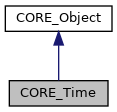
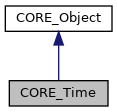
Public Member Functions | |
| CORE_Time () | |
| create a general time object More... | |
| virtual | ~CORE_Time () |
| remove More... | |
| tULLInt | getCPUTime () const |
| return the CPU time in 1/60 seconds More... | |
| tUInteger | getWeekYear (tUInteger &year) const |
| get the week of the year More... | |
| const tUInteger & | getYear () const |
| return the year More... | |
| tUInteger | getMonth () const |
| return the month More... | |
| tUInteger | getDaysNumberInMonth () const |
| return the number of days in month More... | |
| tUInteger | getDay () const |
| return the day More... | |
| tString | getWeekIntervalString () |
| get the week interval monday –> Sunday of the current time More... | |
| void | setToFirstWeekDay (const tUInteger &year, const tUInteger &week) |
| set the date to the first week day More... | |
| void | setToWeekDay (const tUInteger &year, const tUInteger &week, const tUInteger &day) |
| set the date to the week day More... | |
| const tUInteger & | getWeekDay () const |
| return the day of the week More... | |
| const tUInteger & | getMinutes () const |
| return the minutes of the time More... | |
| const tUInteger & | getSeconds () const |
| return the seconds of the time More... | |
| const tUInteger & | getHours () const |
| return the hours of the time More... | |
| const tULLInt & | getMilliSeconds () const |
| return the milliseconds seconds of the time More... | |
| const tTime & | getSecondsSince1900 () const |
| return the number of seconds since 1900 More... | |
| void | setDate (const tTime &seconds) |
| set the date from 1900 in seconds More... | |
| void | setDate (const tUInteger &year, const tUInteger &month, const tUInteger &day, const tUInteger &hour, const tUInteger &minutes, const tUInteger &seconds, const tUInteger &ms) |
| set the date More... | |
| void | setDate (const tUInteger &year, const tUInteger &month, const tUInteger &day, const tUInteger &hour, const tUInteger &minutes, const tUInteger &seconds) |
| set the date More... | |
| void | setDate (tUInteger year, tUInteger month, tUInteger day) |
| set the date More... | |
| void | setDate (const tString &date) |
| set the date from a string year-month-day More... | |
| void | setDate (const CORE_Time &time) |
| set the date from a string year-month-day More... | |
| void | setDate (SP::CORE_Time time) |
| set the date from a string year-month-day More... | |
| void | setDate (const CORE_Time *time) |
| set the date from a string year-month-day More... | |
| void | setDate (const tString &date, const tString &format) |
| set the date from a string date and with format More... | |
| void | setHour (const tString &h) |
| set hour of the format HHhMM More... | |
| void | setTime (const tUInteger &hour, const tUInteger &minutes, const tUInteger &seconds) |
| set the time More... | |
| void | setTime (const tString &date) |
| set the time from a string hour:min:sec More... | |
| tLLInt | sub (const CORE_Time &time) const |
| get the difference with time this -time in secunds More... | |
| tLLInt | sub (const SP::CORE_Time &time) const |
| get the difference with this and time: this -time in secunds More... | |
| tLLInt | sub (const CORE_Time *time) const |
| get the difference with this and time : this -time in secunds More... | |
| tLLInt | subInMilliSeconds (const CORE_Time &time) const |
| get the difference between this and time in milli-secunds More... | |
| tLLInt | subInMilliSeconds (const SP::CORE_Time &time) const |
| get the difference between this and time in milli-secunds More... | |
| tLLInt | subInMilliSeconds (const CORE_Time *time) const |
| get the difference with this and time: this -time in milli-secunds More... | |
| void | setToNextDay () |
| set to next day More... | |
| void | setToPreviousDay () |
| set to previous day More... | |
| void | setToPreviousDays (const tUInteger &nDays) |
| sun nDays from current day More... | |
| void | setToNextMonth () |
| set to next month More... | |
| void | setToPreviousMonth () |
| set to previous month More... | |
| void | setToNextWeek () |
| set to next week More... | |
| void | setToPreviousWeek () |
| set to previoust week More... | |
| void | setToLastDay (const tUInteger &year, const tUInteger &month) |
| set to last day of month More... | |
| void | setTimeType (const tFlag &f) |
| set the chrono time type More... | |
| void | startChronoTime () |
| void | startChronoTime (const tFlag &f) |
| tULLInt | stopChronoTime () |
| end the chrono and return the time in seconds since start time More... | |
| tULLInt | stopChronoTime (const tFlag &f) |
| tULInt | continueChronoTime () |
| contune the chrono and return the time in ms since start time or last continue step the start time becomes the current time. More... | |
| tULLInt | continueChronoTime (const tFlag &f) |
| tBoolean | isEqual (const CORE_Time *t) const |
| return true if the 2 dates are equals between this and t More... | |
| tBoolean | isEqual (const CORE_Time &t) const |
| return true if the 2 dates are equals between this and t More... | |
| tBoolean | isBefore (const CORE_Time &t) const |
| return true if this < t More... | |
| tBoolean | isBefore (const CORE_Time *t) const |
| return true if this < t More... | |
| tBoolean | isAfter (const CORE_Time &t) const |
| return true if this > t More... | |
| tBoolean | isAfter (const CORE_Time *t) const |
| return true if this > t More... | |
| tBoolean | isBeforeOrEqual (const CORE_Time &t) const |
| return true if this <= t More... | |
| tBoolean | isAfterOrEqual (const CORE_Time &t) const |
| return true if this >= t More... | |
| tBoolean | isEqual (const SP::CORE_Time &t) const |
| return true if the 2 dates are equals More... | |
| tBoolean | isBefore (const SP::CORE_Time &t) const |
| return true if this < t More... | |
| tBoolean | isAfter (const SP::CORE_Time &t) const |
| return true if this > t More... | |
| tBoolean | isBeforeOrEqual (const SP::CORE_Time &t) const |
| return true if this <= t More... | |
| tBoolean | isAfterOrEqual (const SP::CORE_Time &t) const |
| return true if this >= t More... | |
| virtual tString | toString () const |
| return the time into a string More... | |
| tString | toString (const tString &format) const |
| return the time into a string with format | |
| void | getSharedPointer (SP::CORE_Object &p) |
| get the shared pointer of this class into p More... | |
| void | getSharedPointer (SPC::CORE_Object &p) const |
| get the shared pointer of this class into p More... | |
| tString | getClassName () const |
| return the class name of the object More... | |
| tString | getIdentityString () const |
| return the identity string of the object of the form className_at_address More... | |
| tString | getPointerAddress () const |
| return the identity string of the object More... | |
| template<class T > | |
| tBoolean | isInstanceOf () const |
| test if the clas T is an instance of this class More... | |
| tBoolean | isInstanceOf (const tString &name) const |
| test if the object is an instance of className More... | |
Static Public Member Functions | |
| static SP::CORE_Time | New () |
| creates a time object More... | |
| static SP::CORE_Time | New (const CORE_Time &time) |
| creates a time object More... | |
| static SP::CORE_Time | New (const CORE_Time *time) |
| creates a time object More... | |
| static SP::CORE_Time | New (const tTime &time) |
| creates a time object More... | |
| static SP::CORE_Time | New (const SP::CORE_Time &time) |
| creates a time object More... | |
| static SP::CORE_Time | New (const tUInteger &year, const tUInteger &month, const tUInteger &day) |
| creates a time object year > 1900 month [1,12] day [1,31] More... | |
| static tTime | getDateInSeconds () |
| return the time in 1/60 seconds More... | |
| static tTime | getDateInMilliSeconds () |
| return the time in 1/60 seconds More... | |
| static tULLInt | getTime () |
| return the time in 1/60 seconds More... | |
| static tString | getWeekIntervalString (const tUInteger &year, const tUInteger &week) |
| get the week interval monday –> sunday More... | |
| static tLLInt | subTimes (const CORE_Time &time1, const CORE_Time &time2) |
| get the difference between two dates in secund time1-time2 More... | |
| static tLLInt | subTimes (const SP::CORE_Time &time1, const SP::CORE_Time &time2) |
| get the difference between two dates in secund time1-time2 More... | |
| static tLLInt | subTimesInMilliSeconds (const CORE_Time &time1, const CORE_Time &time2) |
| get the difference betwen two dates in milli-secund : time1-time2 More... | |
| static tLLInt | subTimesInMilliSeconds (const SP::CORE_Time &time1, const SP::CORE_Time &time2) |
| get the difference betwen two dates in milli-secund : time1-time2 More... | |
| static tULLInt | getClockTime () |
| static tULLInt | getClockDuration (const tULLInt &startTime) |
| static tString | getDuration (const tULLInt &duration, tUInteger &days, tUInteger &hours, tUInteger &minutes, tUInteger &seconds, tUInteger &ms) |
| get duration More... | |
| static tString | getDuration (const tULLInt &duration) |
| get duration More... | |
| static void | setIsMemoryChecked (const tBoolean &v) |
| set if the memory checking is used More... | |
| static void | setOut (SP::CORE_Out out) |
| set the output stream More... | |
| static void | resetOut () |
| reset the output stream More... | |
| static void | setThread (SP::CORE_Thread thread) |
| set the thread More... | |
| static void | resetThread () |
| reset the output stream More... | |
| static CORE_Out & | out () |
| get the output More... | |
| static SP::CORE_Out | getOut () |
| get the output More... | |
| static CORE_Thread & | getThread () |
| get the profilier More... | |
| static const tBoolean & | isMemoryChecked () |
| get if the memory checking is used More... | |
| static tString | getClassName (const tString &identityString) |
| return the class name of the object More... | |
| template<class T > | |
| static tString | getTypeName () |
| get type name More... | |
| static tBoolean | is64Architecture () |
| return true if the machine is a 64 bits machine More... | |
| static tBoolean | is32Architecture () |
| return true if the machine is a 32 bits machine More... | |
| static tString | pointer2String (const void *obj) |
| return the string representation of a pointer More... | |
| static void | printObjectsInMemory (ostream &f) |
| print object in memory More... | |
| static void | printObjectsInMemory () |
| print object in memory in the standart output More... | |
| static tChar | getMaxChar () |
| get the max value for tChar type More... | |
| static tChar | getMinChar () |
| get the min value for tChar type More... | |
| static tUChar | getMaxUChar () |
| get the max value for tUChar type More... | |
| static tUChar | getMinUChar () |
| get the min value for tUChar type More... | |
| static tSInt | getMaxSInt () |
| get the max value for tSInt type More... | |
| static tSInt | getMinSInt () |
| get the min value for tSInt type More... | |
| static tUSInt | getMaxUSInt () |
| get the max value for tUSInt type More... | |
| static tUSInt | getMinUSInt () |
| get the min value for tUSInt type More... | |
| static tInt | getMaxInt () |
| get the max value for tInt type More... | |
| static tInt | getMinInt () |
| get the min value for tInt type More... | |
| static tUInt | getMaxUInt () |
| get the max value for tUInt type More... | |
| static tUInt | getMinUInt () |
| get the min value for tUInt type More... | |
| static tLInt | getMaxLInt () |
| get the max value for tLInt type More... | |
| static tLInt | getMinLInt () |
| get the min value for tLInt type More... | |
| static tULInt | getMaxULInt () |
| get the max value for tULInt type More... | |
| static tULInt | getMinULInt () |
| get the min value for tULInt type More... | |
| static tLLInt | getMaxLLInt () |
| get the max value for tULInt type More... | |
| static tLLInt | getMinLLInt () |
| get the min value for tLLInt type More... | |
| static tULLInt | getMaxULLInt () |
| get the max value for tULLInt type More... | |
| static tULLInt | getMinULLInt () |
| get the min value for tULLInt type More... | |
| static tFloat | getMaxFloat () |
| get the max value for tFloat type More... | |
| static tFloat | getMinFloat () |
| get the min value for tFloat type More... | |
| template<class T > | |
| static T | getEpsilon () |
| get the epsilon value for T type More... | |
| template<class T > | |
| static T | getInfinity () |
| get the infinity for T type More... | |
| static tFloat | getFloatEpsilon () |
| get the epsilon value for tFloat type More... | |
| static tFloat | getFloatInfinity () |
| get the infinity value for tFloat type More... | |
| static tDouble | getMaxDouble () |
| get the max value for tDouble type More... | |
| static tDouble | getMinDouble () |
| get the min value for tDouble type More... | |
| static tDouble | getDoubleInfinity () |
| get the infinity value for tFloat type More... | |
| static tDouble | getDoubleEpsilon () |
| get the epsilon value for tDouble type More... | |
| static tLDouble | getMinLDouble () |
| get the min value for tLDouble type More... | |
| static tLDouble | getMaxLDouble () |
| get the max value for tLDouble type More... | |
| static tLDouble | getLDoubleEpsilon () |
| get the epsilon value for tLDouble type More... | |
| static tDouble | getLDoubleInfinity () |
| get the infinity value for tDouble type More... | |
| static tIndex | getMaxIndex () |
| get the max value for the array/vector indexing type More... | |
| static tIndex | getMinIndex () |
| get the min value for the array/vector indexing type More... | |
| static tUIndex | getMaxUIndex () |
| get the max value for difference the array/vector indexing type More... | |
| static tUIndex | getMinUIndex () |
| get the min value for difference the array/vector indexing type More... | |
| static tFlag | getMaxFlag () |
| get the max value for the tFlag type More... | |
| static tFlag | getMinFlag () |
| get the min value for the tFlag type More... | |
| static tUInteger | getMaxUInteger () |
| get the max value for the unsigned integer type More... | |
| static tUInteger | getMinUInteger () |
| get the min value for the unsigned integer type More... | |
| static tInteger | getMaxInteger () |
| get the max value for the integer type More... | |
| static tInteger | getMinInteger () |
| get the min value for the integer type More... | |
| static tReal | getMaxReal () |
| get the max value for the real type More... | |
| static tReal | getMinReal () |
| get the min value for the real type More... | |
| static tReal | getRealEpsilon () |
| get the eps which is the difference between 1 and the least value greater than 1 that is representable. More... | |
| static tReal | getRealInfinity () |
| get the infinity value More... | |
| template<class T > | |
| static T | computeEpsilon () |
| compute epsilon More... | |
Static Public Attributes | |
| static const tULLInt | MAX_YEAR =1900+getMaxULInt()/(3600*24*365) |
| MAX number of years. More... | |
| static const tFlag | SYSTEM_CLOCK_TIME =0 |
| static const tFlag | HR_CLOCK_TIME =1 |
| static const tFlag | CLOCK_TIME =2 |
| static const tString | DAYS [] |
| days names in english More... | |
| static const tString | JOURS [] |
| days names in french More... | |
| static const tString | MONTHS [] |
| month names in english More... | |
| static const tString | MOIS [] |
| month names in french More... | |
Protected Member Functions | |
| void | setThis (SP::CORE_Object p) |
| set this weak shared pointer called toDoAfterThis setting method More... | |
| virtual void | toDoAfterThisSetting () |
| method called after setThis() method this method can oly be called once. More... | |
Private Member Functions | |
| SP_OBJECT (CORE_Time) | |
Static Private Member Functions | |
| static char * | _fmt (const struct tm *t, char *pt, const char *ptlim) |
| static char * | _conv (const int n, const char *format, char *pt, const char *ptlim) |
| static char * | _add (const char *str, char *pt, const char *ptlim) |
| static int | getWeek (const struct tm *t) |
| static tUInteger | modZ (const tInteger &a, const tInteger &b) |
Private Attributes | |
| tUInteger | mYear |
| tUInteger | mMonth |
| tUInteger | mWeek |
| tUInteger | mWeekDay |
| tUInteger | mDay |
| tUInteger | mHours |
| tUInteger | mMinutes |
| tUInteger | mSeconds |
| tULLInt | mMilliSeconds |
| tULLInt | mCPUTime |
| tTime | mSecondsSince1900 |
| std::chrono::high_resolution_clock::time_point | mStartHRClock |
| std::chrono::system_clock::time_point | mStartSystemClock |
| tULLInt | mStartClock |
| tBoolean | mIsHRClockChronoStarting |
| tBoolean | mIsSystemClockChronoStarting |
| tBoolean | mIsClockChronoStarting |
Static Private Attributes | |
| static tFlag | TIME_TYPE =CLOCK_TIME |
| static const tFlag | YEAR =0 |
| static const tFlag | MONTH =1 |
| static const tFlag | WEEK =3 |
| static const tFlag | DAY =2 |
| static const tFlag | WEEK_DAY =4 |
| static const tFlag | HOUR =5 |
| static const tFlag | MINUTE =6 |
| static const tFlag | SECUND =7 |
| static const tFlag | MILLI_SECUNDS =8 |
Detailed Description
this class describes a time class
Attributes:
- mYear is the year of the date
- card:1
- type:int
- mMonth is the month of the date
- card:1
- type:int
- mWeek is the week of the date
- card:1
- type:int
- mWeekDay the week day of the date
- card:1
- type:int
- mDay is the year day of the date
- card:1
- type:int
- mHours the hours of the date
- card:1
- type:int
- mSeconds the seconds of the date
- card:1
- type:int
- mMilliSeconds the milliseconds of the date
- card:1
- type:int
- mCPUTime is the CPU date of the creation of the class
- card:1
- type:int
- mSecondsSince1900 is the date in seconds from 1900
- card:1
- type:long int
- DAYS is a list of string name of day in english
- card:*
- type:string
- MONTHS is a list of string name of month in english
- card:*
- type:string
- Version
- 1.0
Constructor & Destructor Documentation
◆ CORE_Time()
| CORE_Time::CORE_Time | ( | ) |
create a general time object
References getWeek(), mCPUTime, mDay, mHours, mIsClockChronoStarting, mIsHRClockChronoStarting, mIsSystemClockChronoStarting, mMilliSeconds, mMinutes, mMonth, mSeconds, mSecondsSince1900, mStartClock, mWeek, mWeekDay, and mYear.
Referenced by New().

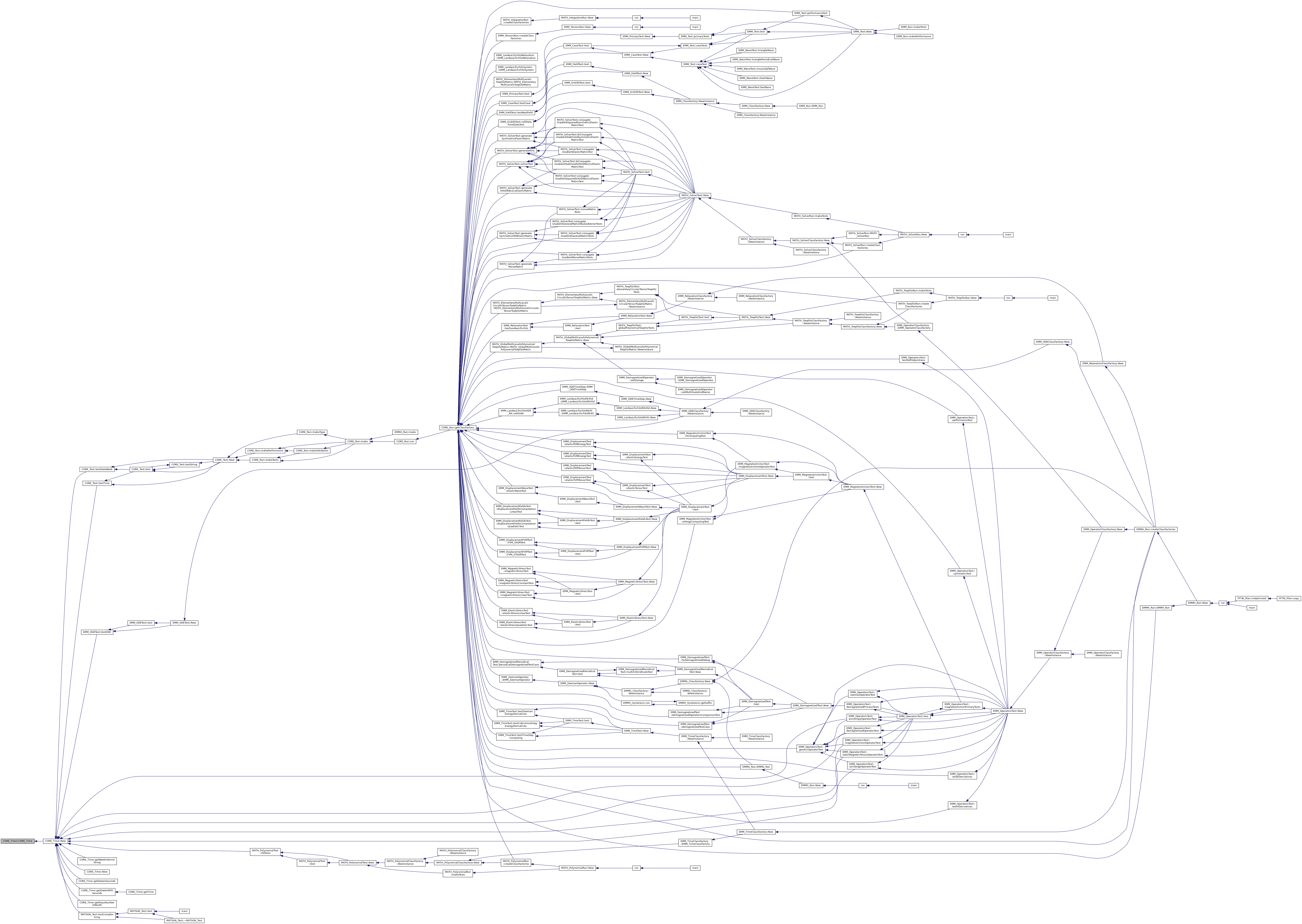
◆ ~CORE_Time()
|
virtual |
remove
Member Function Documentation
◆ _add()
|
staticprivate |
◆ _conv()
|
staticprivate |
References _add().
Referenced by _fmt(), and getDuration().

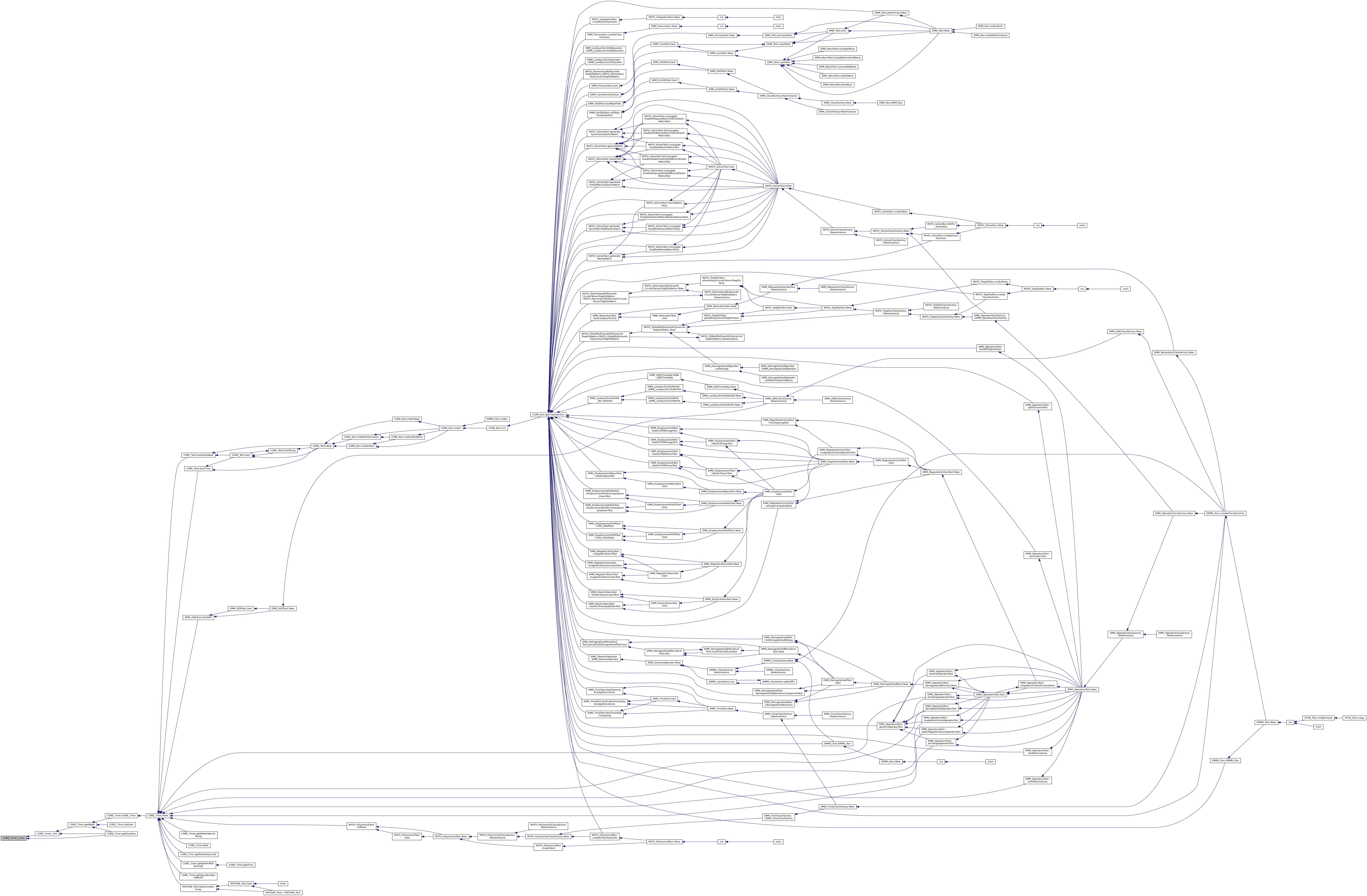
◆ _fmt()
|
staticprivate |
References _conv(), DAYSPERLYEAR, DAYSPERNYEAR, DAYSPERWEEK, LEAPYEAR, and TM_YEAR_BASE.
Referenced by getDuration(), and getWeek().

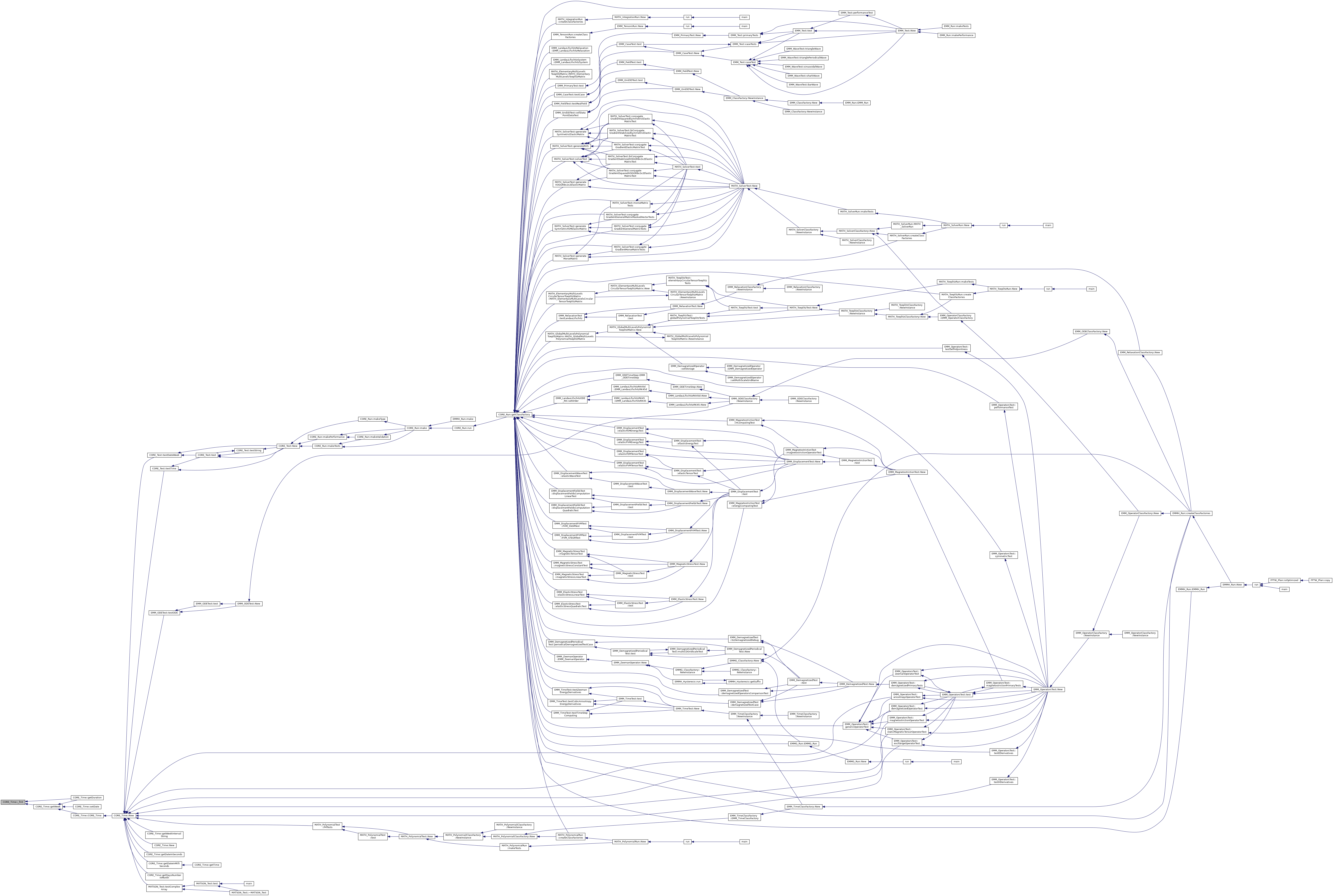
◆ computeEpsilon()
|
inlinestaticinherited |
compute epsilon
- Returns
- the epsilon value eps=10^{-p/3} where p is defined by getEpsilon()=10^{-p}
◆ continueChronoTime() [1/2]
|
inline |
contune the chrono and return the time in ms since start time or last continue step the start time becomes the current time.
- Returns
- the duration in secunds
◆ continueChronoTime() [2/2]
References startChronoTime(), stopChronoTime(), and tULLInt.

◆ getClassName() [1/2]
|
inherited |
return the class name of the object
- Returns
- the class name of the object
References tString.
Referenced by CORE_Object::getIdentityString(), EMM_Operator::getName(), and CORE_Object::isMemoryChecked().

◆ getClassName() [2/2]
return the class name of the object
- Parameters
-
identityString the identity string of the object
- Returns
- the class name
◆ getClockDuration()
Referenced by CORE_Thread::getDuration(), and stopChronoTime().

◆ getClockTime()
|
inlinestatic |
◆ getCPUTime()
|
inline |
◆ getDateInMilliSeconds()
|
inlinestatic |
◆ getDateInSeconds()
|
inlinestatic |
◆ getDay()
|
inline |
return the day
- Returns
- the current day in [1..31]
References getWeekIntervalString(), mDay, tString, and tUInteger.
Referenced by setDate().


◆ getDaysNumberInMonth()
|
inline |
return the number of days in month
- Returns
- the current number of days in the current month
References New().

◆ getDoubleEpsilon()
|
inlinestaticinherited |
get the epsilon value for tDouble type
- Returns
- the epsilon value for tDouble type
Referenced by CORE_Test::testType().
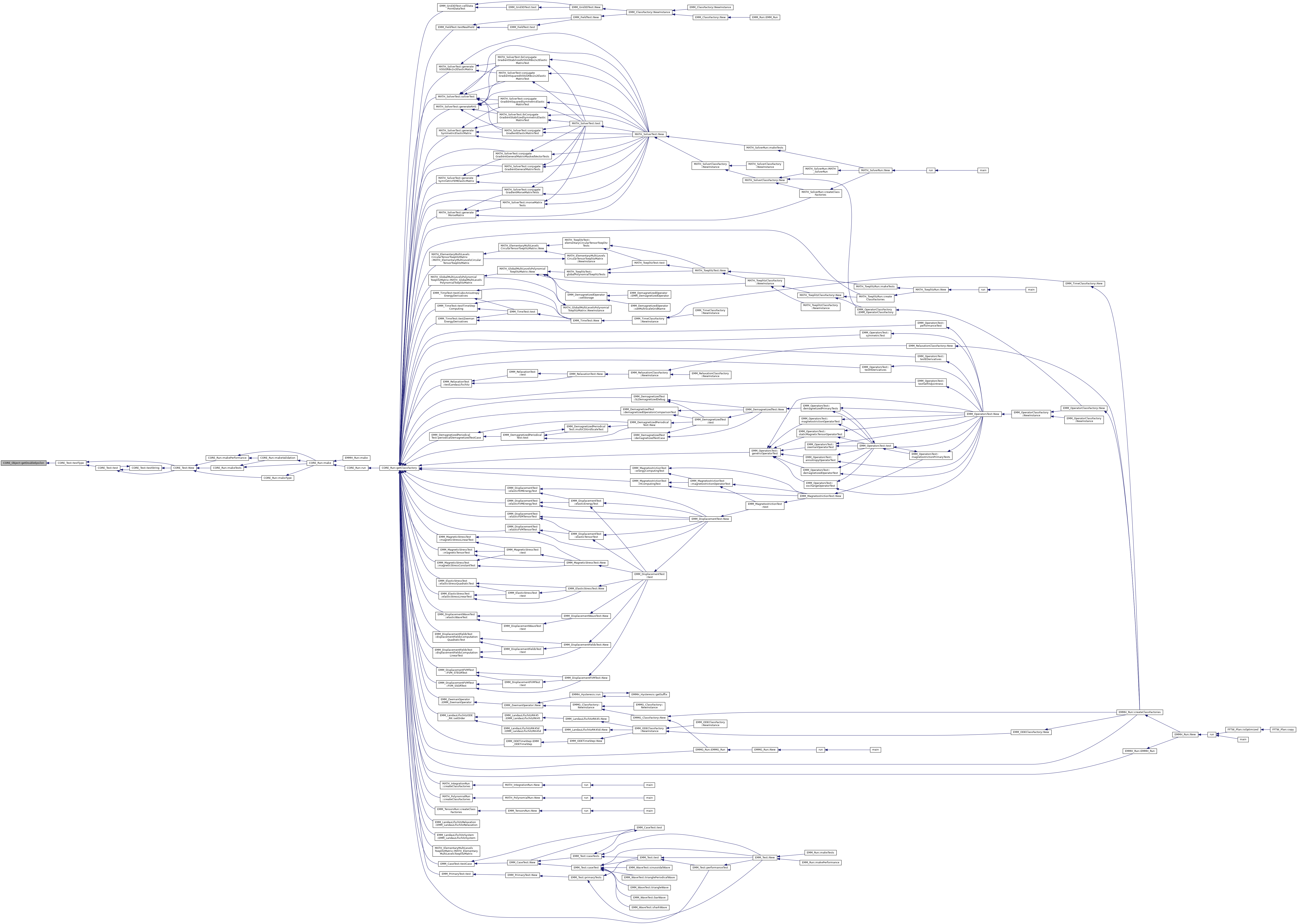
◆ getDoubleInfinity()
|
inlinestaticinherited |
get the infinity value for tFloat type
- Returns
- the intinity value for tFloat type
◆ getDuration() [1/2]
|
static |
get duration
- Parameters
-
duration : the duration in milliseconds days :the number of days in duration hours :the number of hours in duration minutes :the number of minutes in duration seconds :the number of seconds in duration ms :the number of milli-seconds in duration
- Returns
- the string duration
References CORE_String::toString(), tString, and tUInteger.
Referenced by getDuration(), and isAfterOrEqual().


◆ getDuration() [2/2]
get duration
- Returns
- the string duration
References _add(), _conv(), _fmt(), getDuration(), getWeek(), toString(), tString, and tUInteger.

◆ getEpsilon()
|
inlinestaticinherited |
get the epsilon value for T type
- Returns
- the epsilon value for T type
◆ getFloatEpsilon()
|
inlinestaticinherited |
get the epsilon value for tFloat type
- Returns
- the epsilon value for tFloat type
Referenced by CORE_Test::testType().
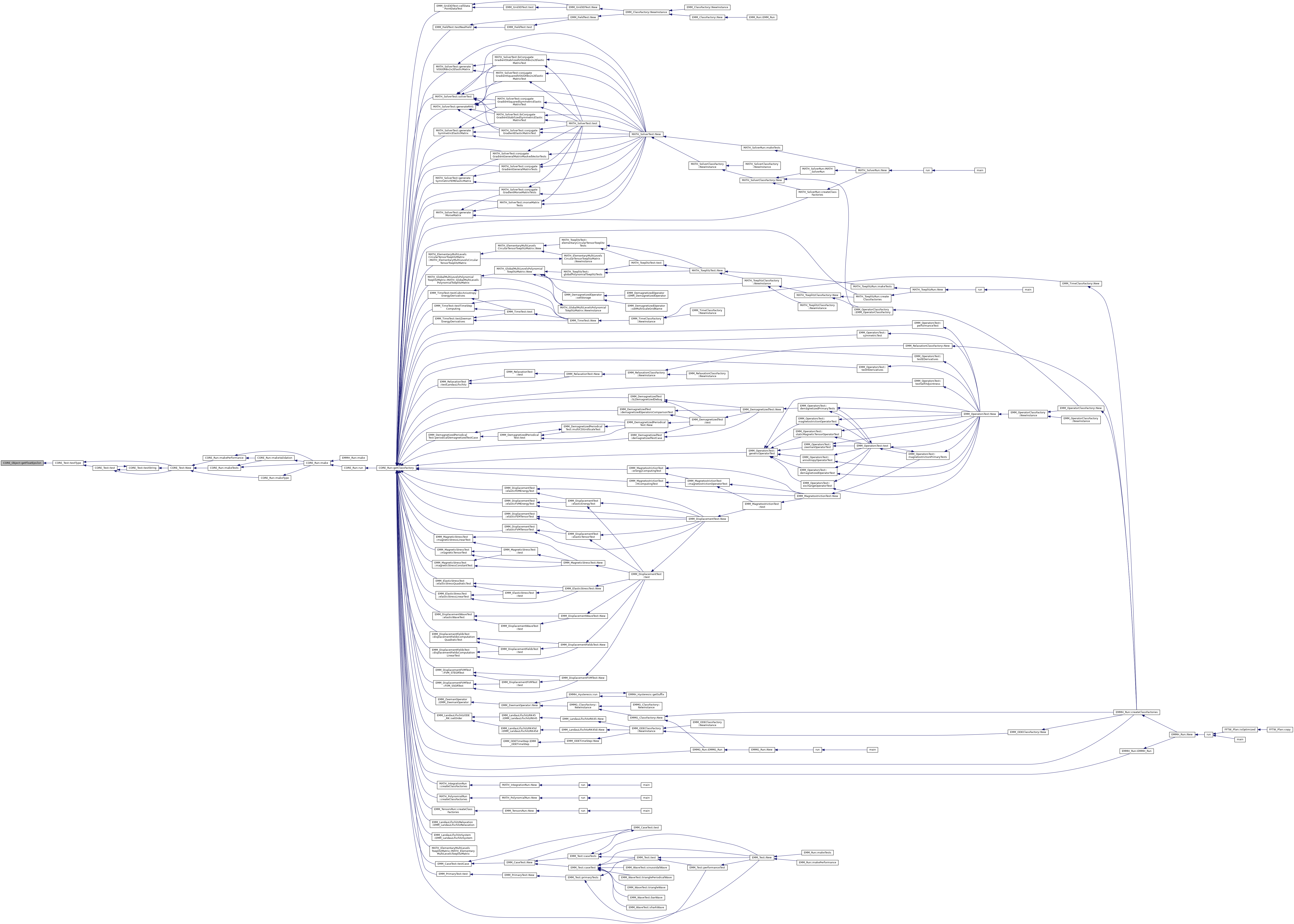
◆ getFloatInfinity()
|
inlinestaticinherited |
get the infinity value for tFloat type
- Returns
- the intinity value for tFloat type
◆ getHours()
|
inline |
◆ getIdentityString()
|
inlineinherited |
return the identity string of the object of the form className_at_address
- Returns
- the identity string of the object
References CORE_Object::getClassName(), CORE_Object::pointer2String(), and tString.
Referenced by MATH_GaussLegendreIntegration::copy(), EMM_MultiScaleGrid::initialize(), CORE_Object::isInstanceOf(), CORE_Object::printObjectsInMemory(), MATH_Matrix::toString(), EMMG_SLPeriodicMultiScale::toString(), EMM_Stepper::toString(), EMM_AnisotropyDirectionsField::toString(), EMM_BlockMassMatrix::toString(), CORE_Object::toString(), EMM_Tensors::toString(), EMM_MultiScaleGrid::toString(), EMM_MatterField::toString(), EMM_Grid3D::toString(), and EMM_LandauLifschitzSystem::toString().

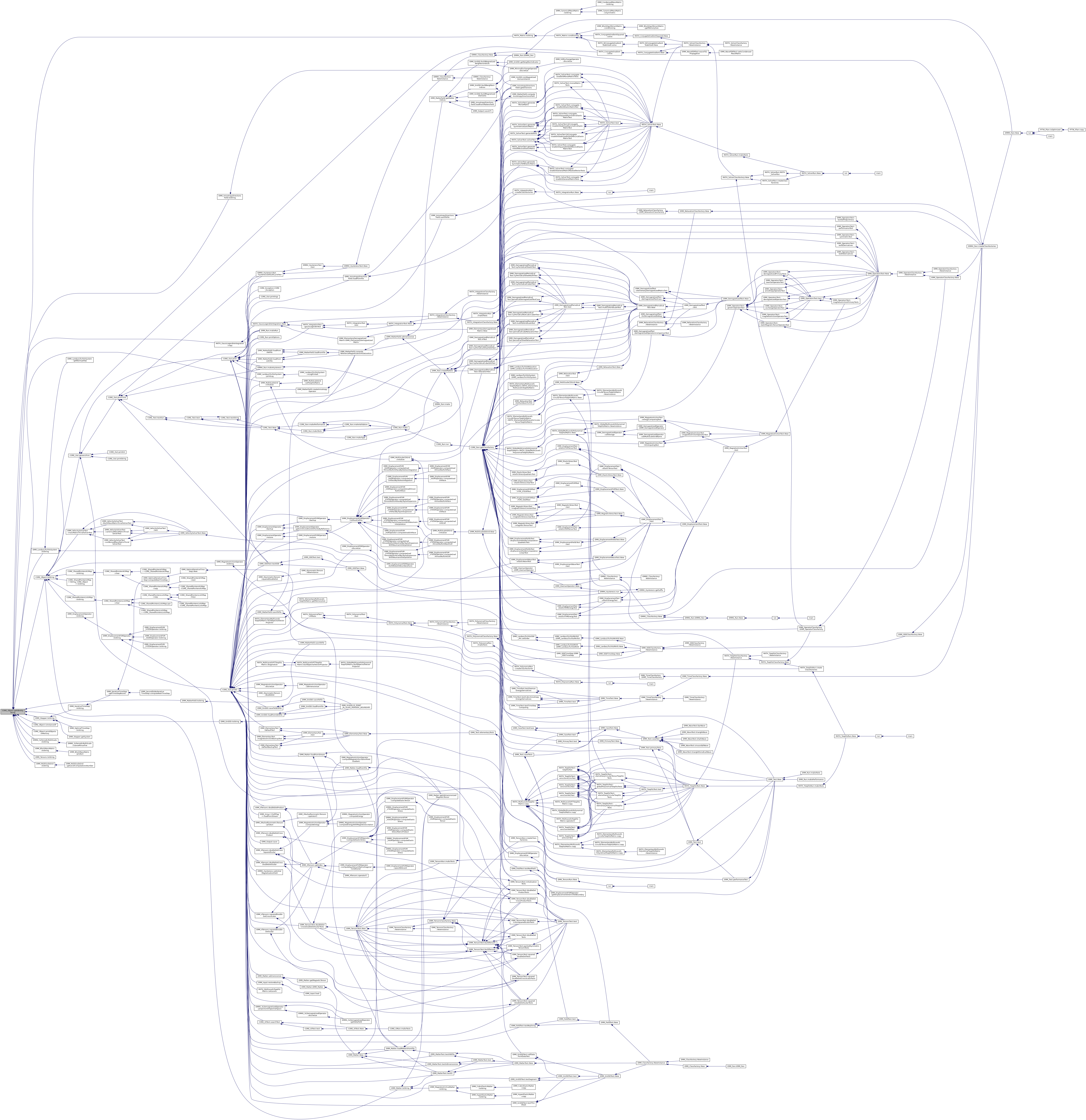
◆ getInfinity()
|
inlinestaticinherited |
get the infinity for T type
- Returns
- the infinity value for T type
◆ getLDoubleEpsilon()
|
inlinestaticinherited |
get the epsilon value for tLDouble type
- Returns
- the epsilon value for tLDouble type
Referenced by CORE_Test::testType().

◆ getLDoubleInfinity()
|
inlinestaticinherited |
get the infinity value for tDouble type
- Returns
- the infinity value for tDouble type
◆ getMaxChar()
|
inlinestaticinherited |
get the max value for tChar type
- Returns
- the max value for tChar type
Referenced by CORE_Test::testType().

◆ getMaxDouble()
|
inlinestaticinherited |
get the max value for tDouble type
- Returns
- the max value for tDouble type
Referenced by CORE_Test::testType().
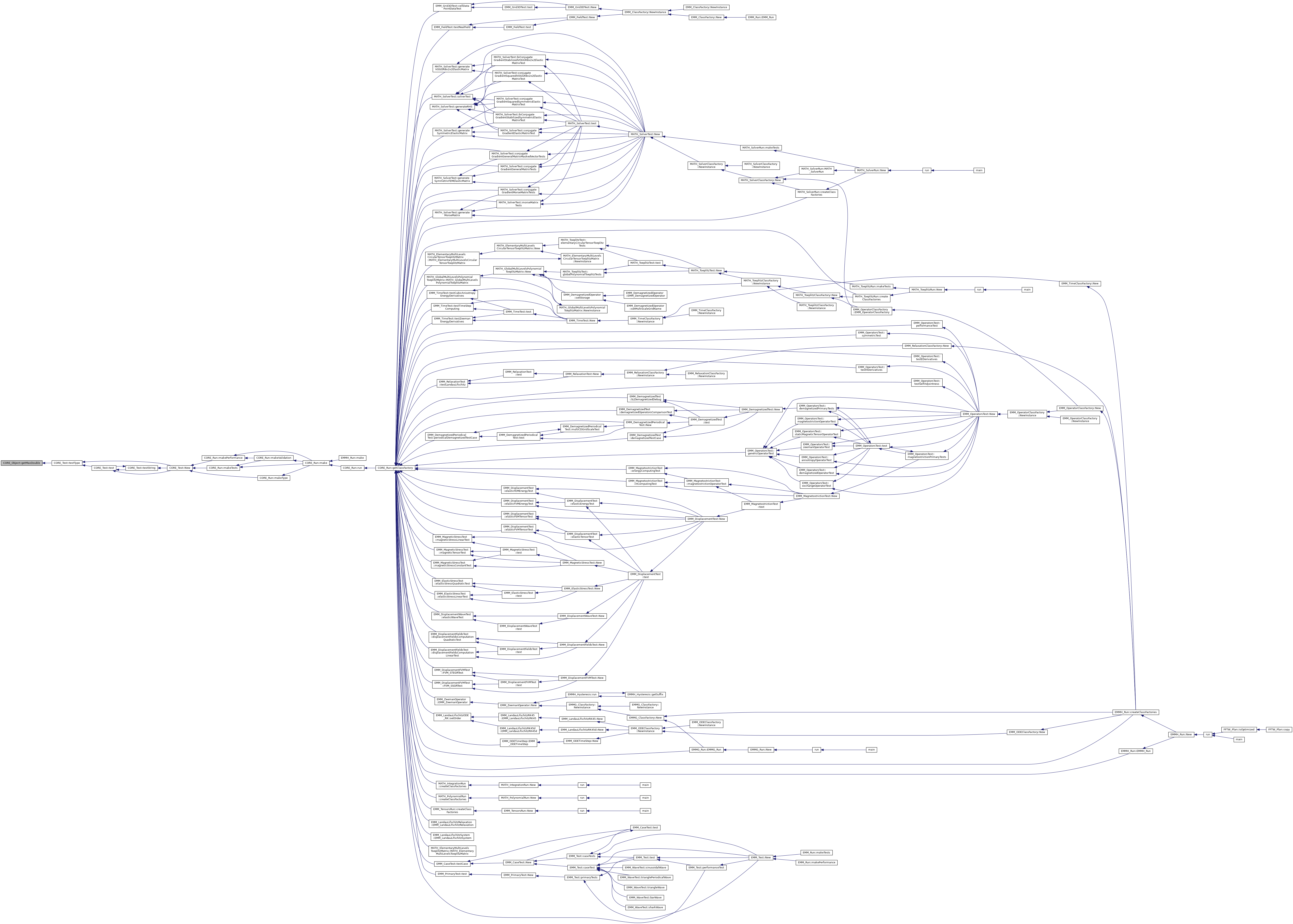
◆ getMaxFlag()
|
inlinestaticinherited |
get the max value for the tFlag type
- Returns
- the max value for the tFlag type
Referenced by CORE_Test::testType().

◆ getMaxFloat()
|
inlinestaticinherited |
get the max value for tFloat type
- Returns
- the max value for tFloat type
Referenced by CORE_Test::testType().
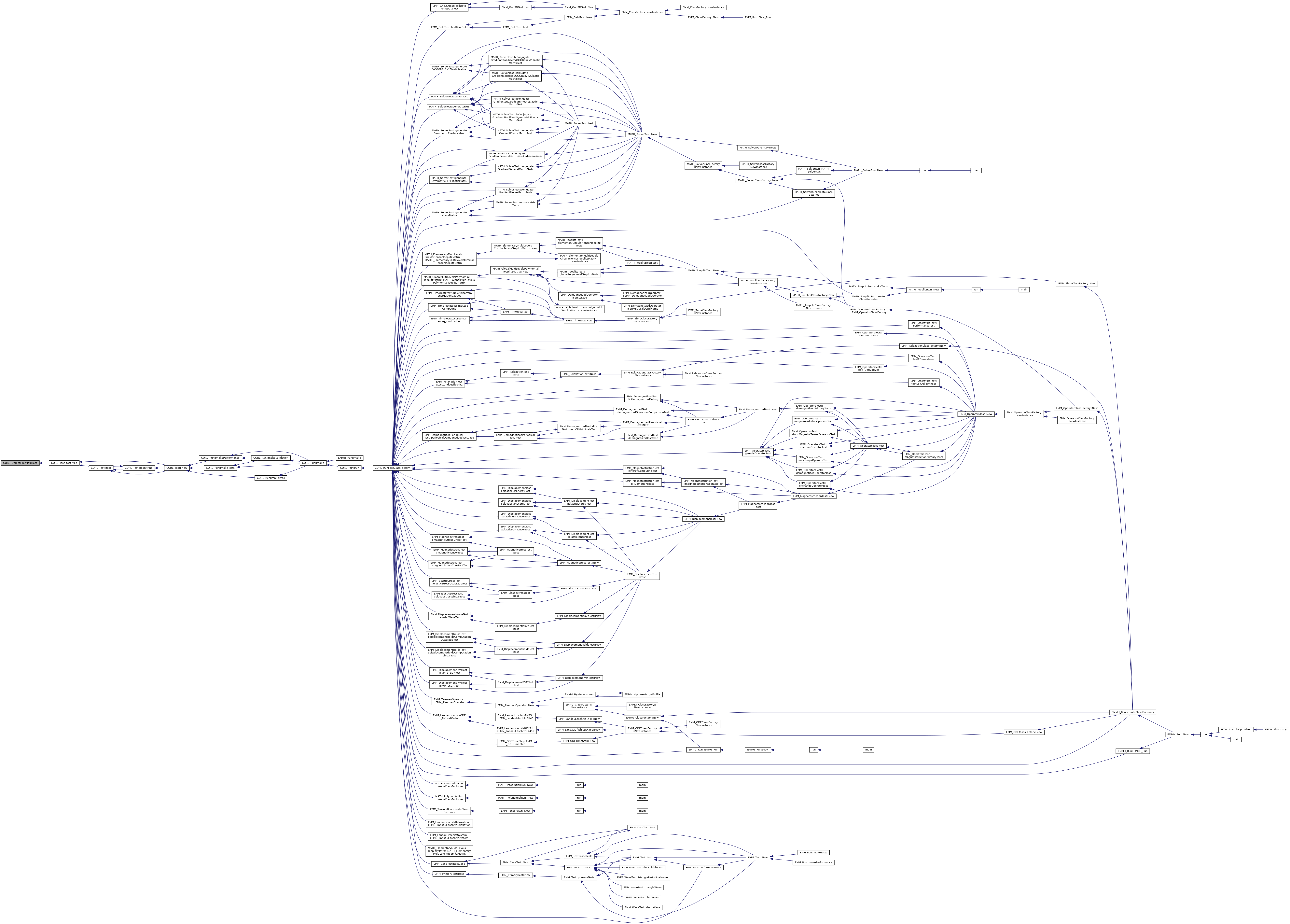
◆ getMaxIndex()
|
inlinestaticinherited |
get the max value for the array/vector indexing type
- Returns
- the max value for the array/vector indexing type
Referenced by CORE_Test::testType().
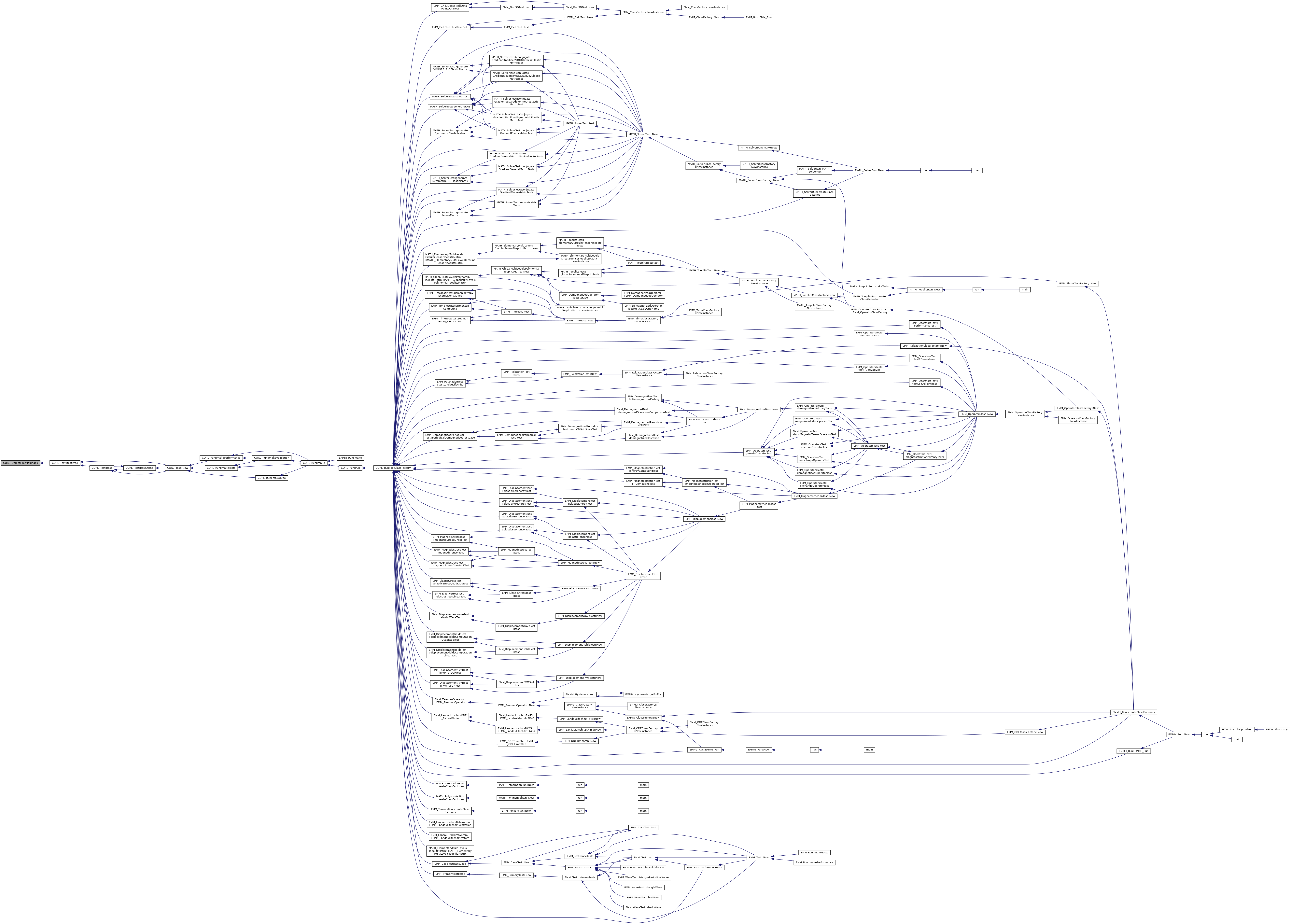
◆ getMaxInt()
|
inlinestaticinherited |
get the max value for tInt type
- Returns
- the max value for tInt type
Referenced by MATSGN_FFT::fastFourierTransform3D_FFTW(), and CORE_Test::testType().

◆ getMaxInteger()
|
inlinestaticinherited |
get the max value for the integer type
- Returns
- the max value for the integer type
Referenced by CORE_Test::testType().
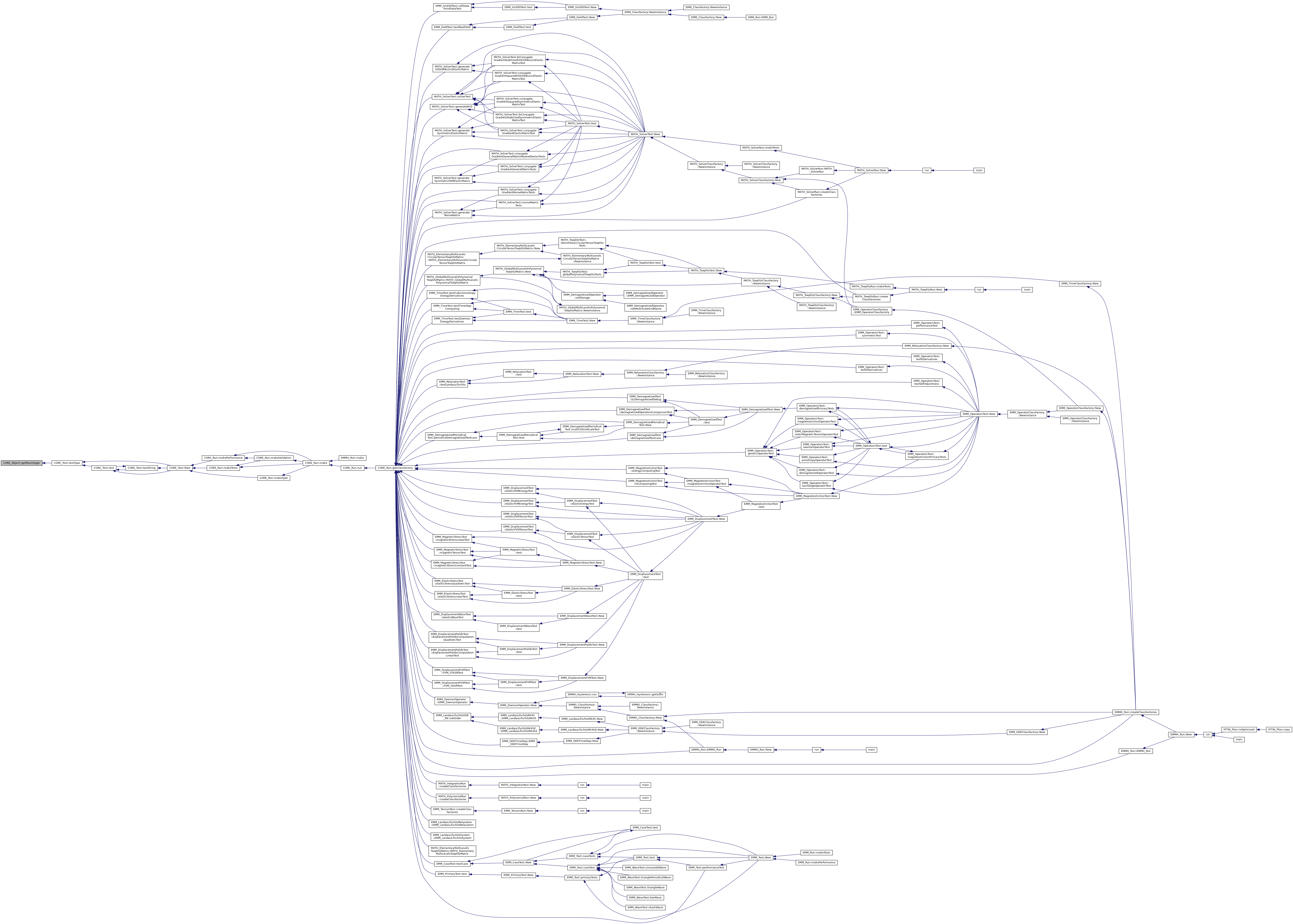
◆ getMaxLDouble()
|
inlinestaticinherited |
get the max value for tLDouble type
- Returns
- the max value for tLDouble type
Referenced by CORE_Test::testType().
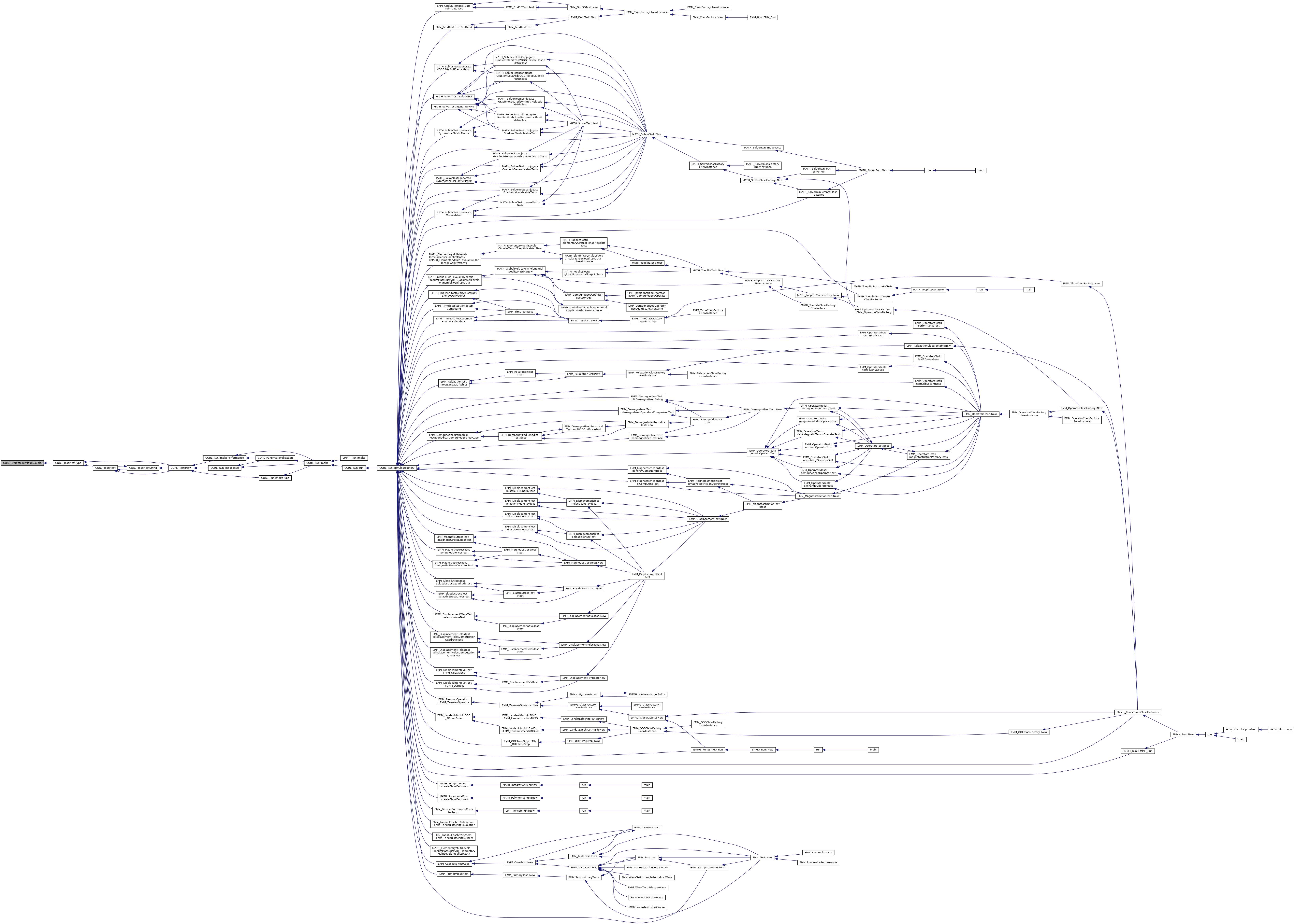
◆ getMaxLInt()
|
inlinestaticinherited |
get the max value for tLInt type
- Returns
- the max value for tLInt type
Referenced by CORE_Test::testType().

◆ getMaxLLInt()
|
inlinestaticinherited |
get the max value for tULInt type
- Returns
- the max value for tULInt type
Referenced by CORE_Test::testType().
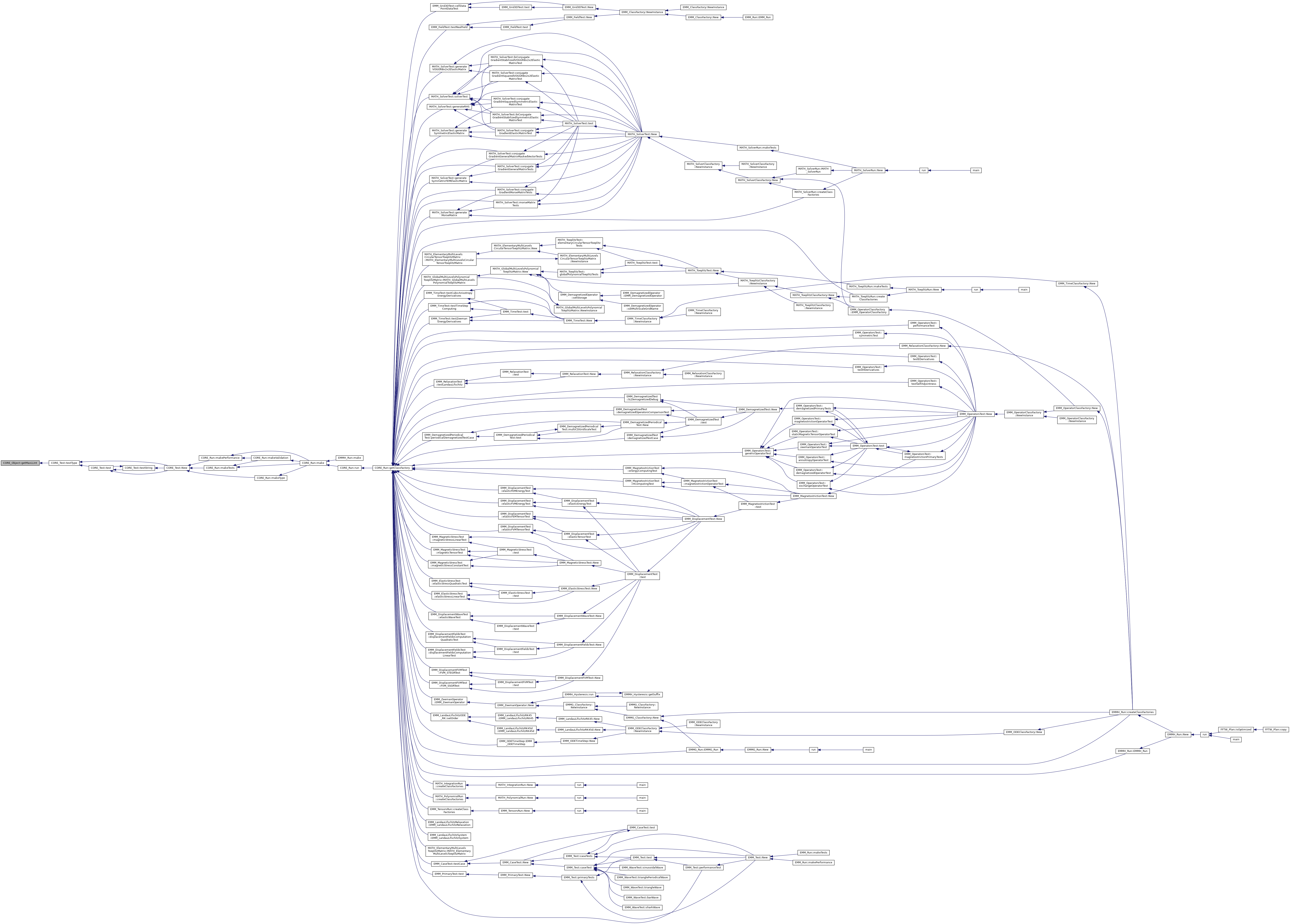
◆ getMaxReal()
|
inlinestaticinherited |
get the max value for the real type
- Returns
- he max value for the real type
Referenced by EMM_MatterField::adimensionize(), and CORE_Test::testType().

◆ getMaxSInt()
|
inlinestaticinherited |
get the max value for tSInt type
- Returns
- the max value for tSInt type
Referenced by CORE_Test::testType().
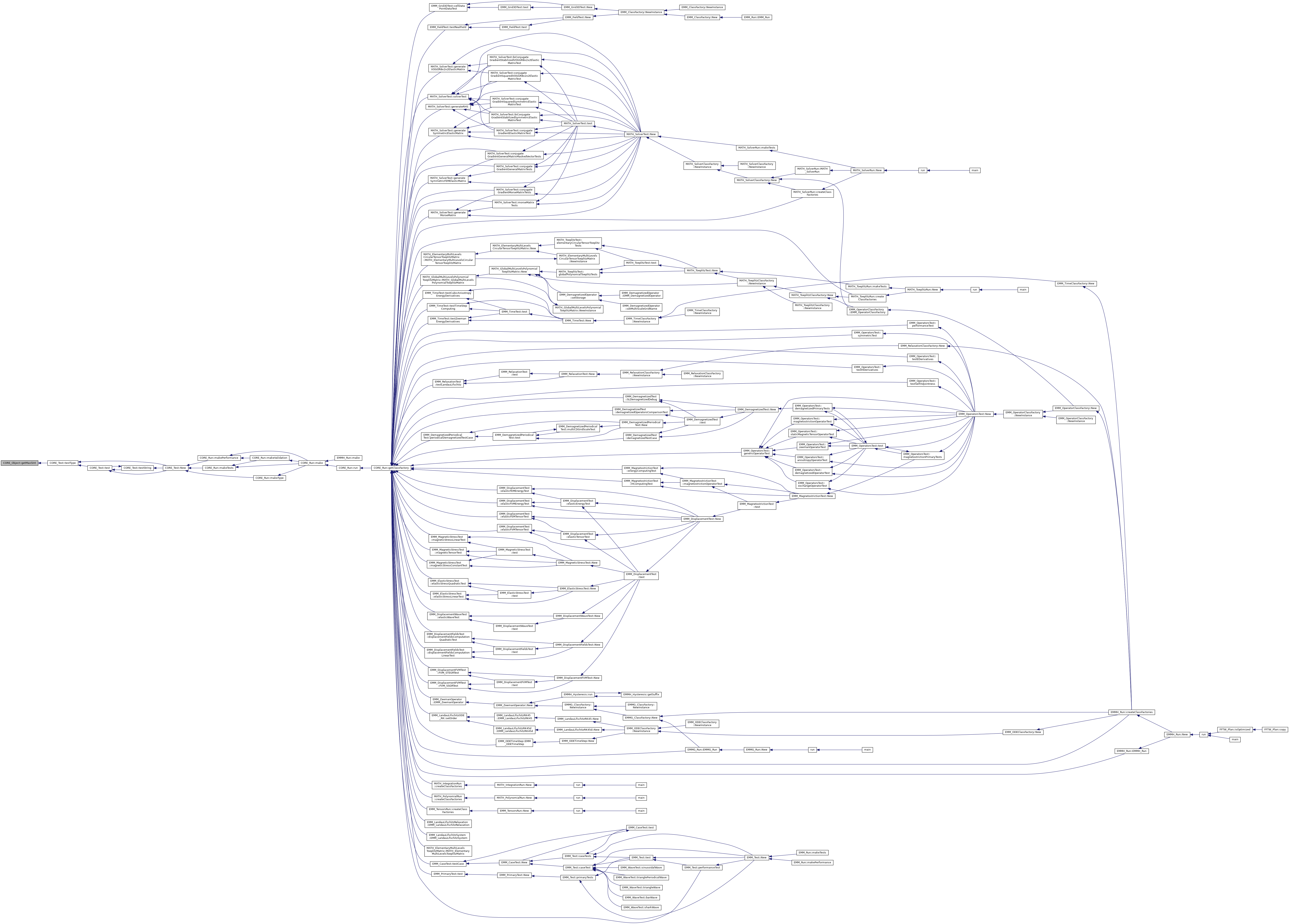
◆ getMaxUChar()
|
inlinestaticinherited |
get the max value for tUChar type
- Returns
- the max value for tUChar type
Referenced by CORE_Test::testType().
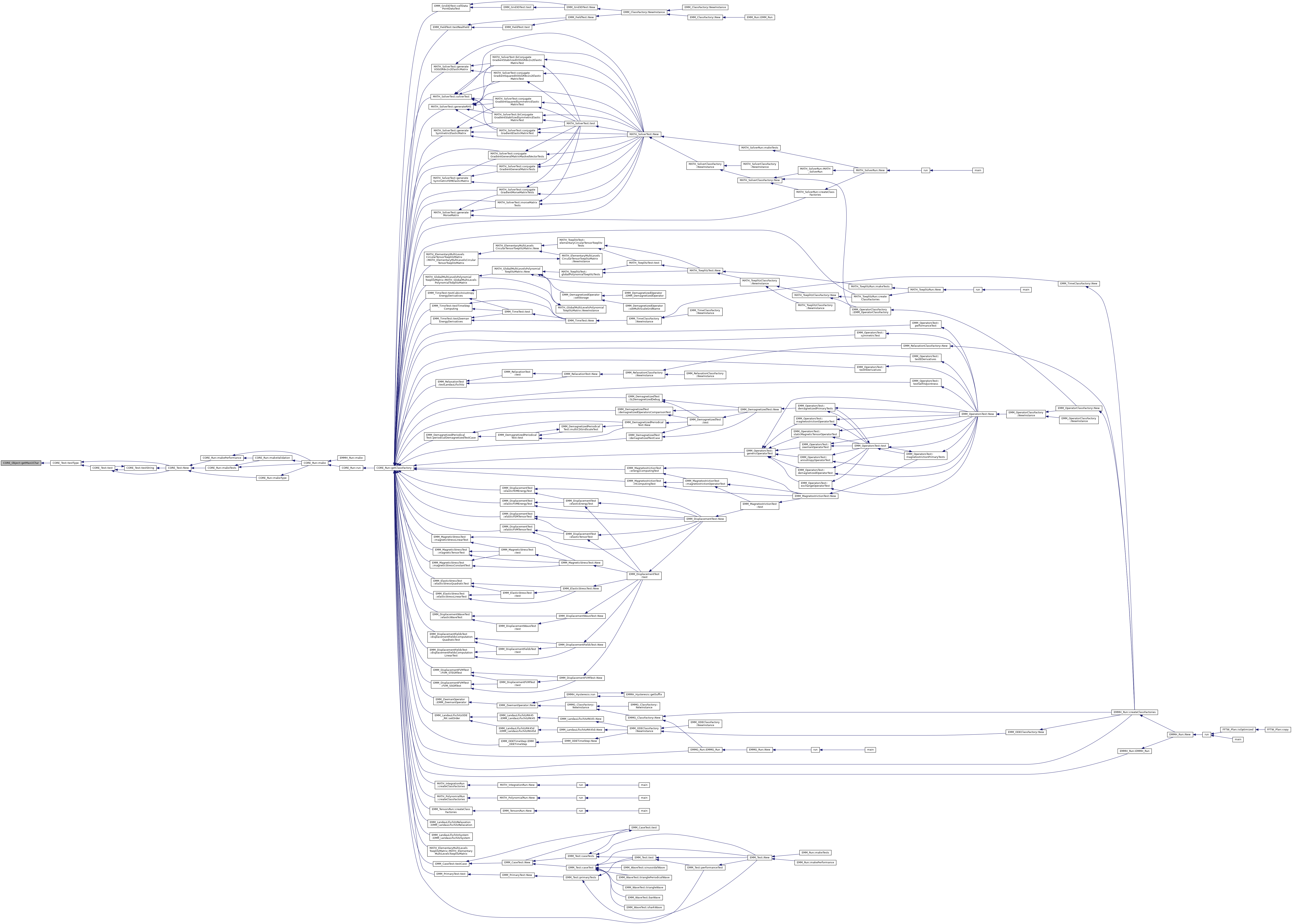
◆ getMaxUIndex()
|
inlinestaticinherited |
get the max value for difference the array/vector indexing type
- Returns
- the max value for difference the array/vector indexing type
Referenced by CORE_Vector< T >::addAfterIndices(), CORE_Vector< T >::search(), CORE_Test::testType(), CORE_Integer::toHexString(), and CORE_Integer::toString().
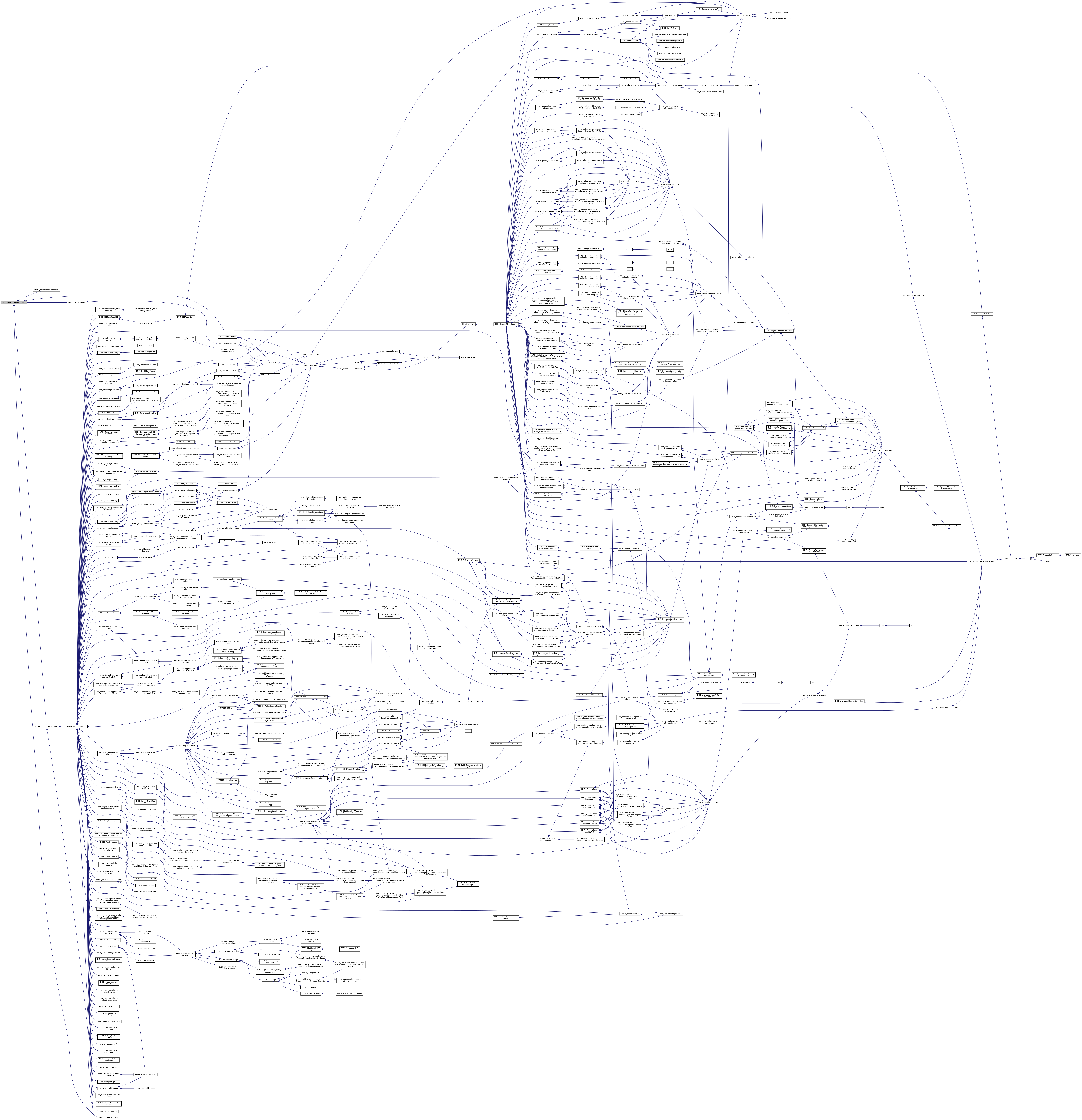
◆ getMaxUInt()
|
inlinestaticinherited |
get the max value for tUInt type
- Returns
- the max value for tUInt type
Referenced by EMM_Array< tCellFlag >::loadFromFile(), EMM_RealField::loadFromFile(), and CORE_Test::testType().

◆ getMaxUInteger()
|
inlinestaticinherited |
get the max value for the unsigned integer type
- Returns
- the max value for the unsigned integer type
Referenced by MATH_Pn::computeExtrenums(), EMM_MultiScaleGrid::computeLevelsNumber(), EMM_Input::restoreBackup(), MATH_P0::solve(), and CORE_Test::testType().

◆ getMaxULInt()
|
inlinestaticinherited |
get the max value for tULInt type
- Returns
- the max value for tULInt type
Referenced by CORE_Test::testType().
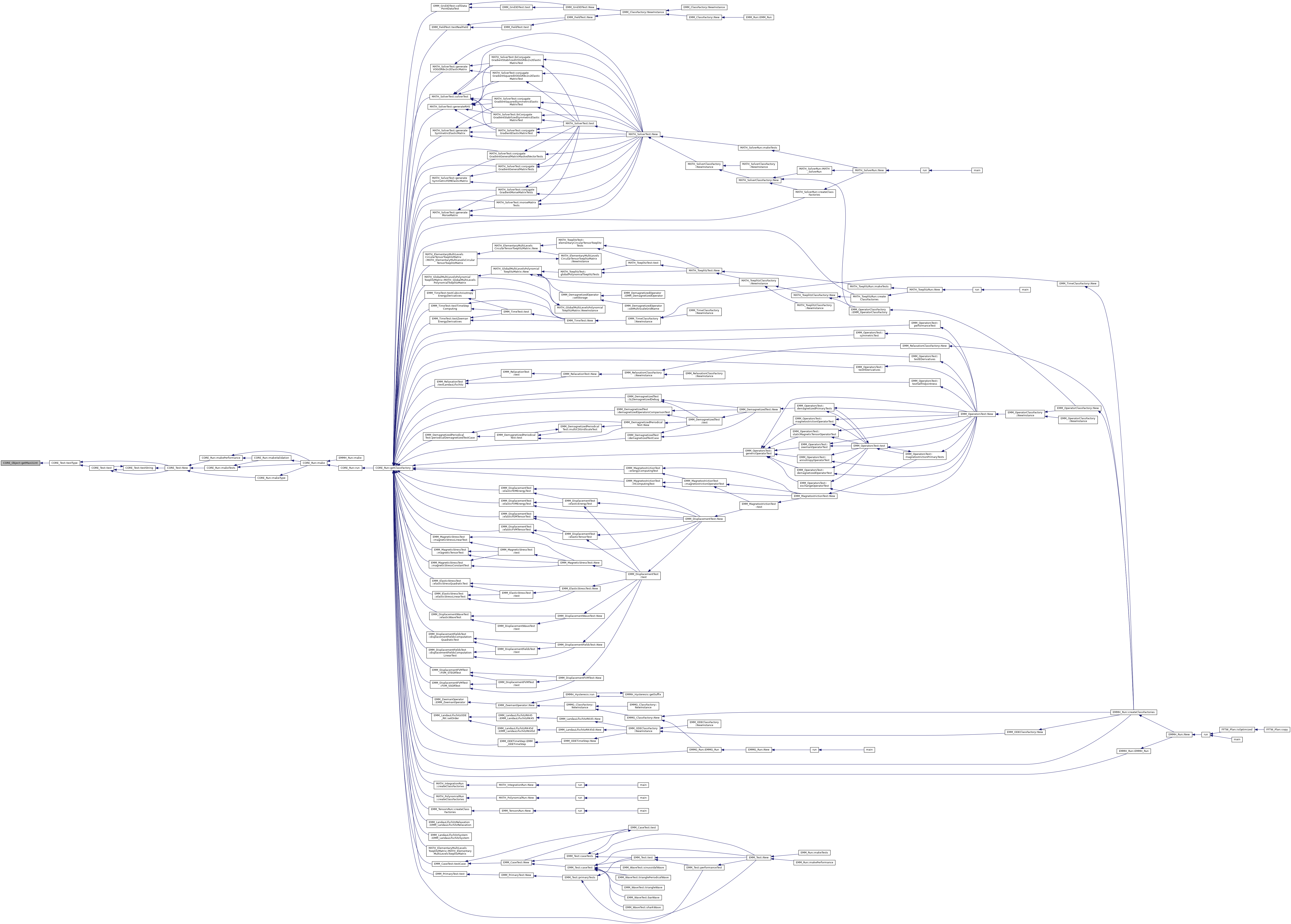
◆ getMaxULLInt()
|
inlinestaticinherited |
get the max value for tULLInt type
- Returns
- the max value for tULLInt type
Referenced by CORE_Test::testType().
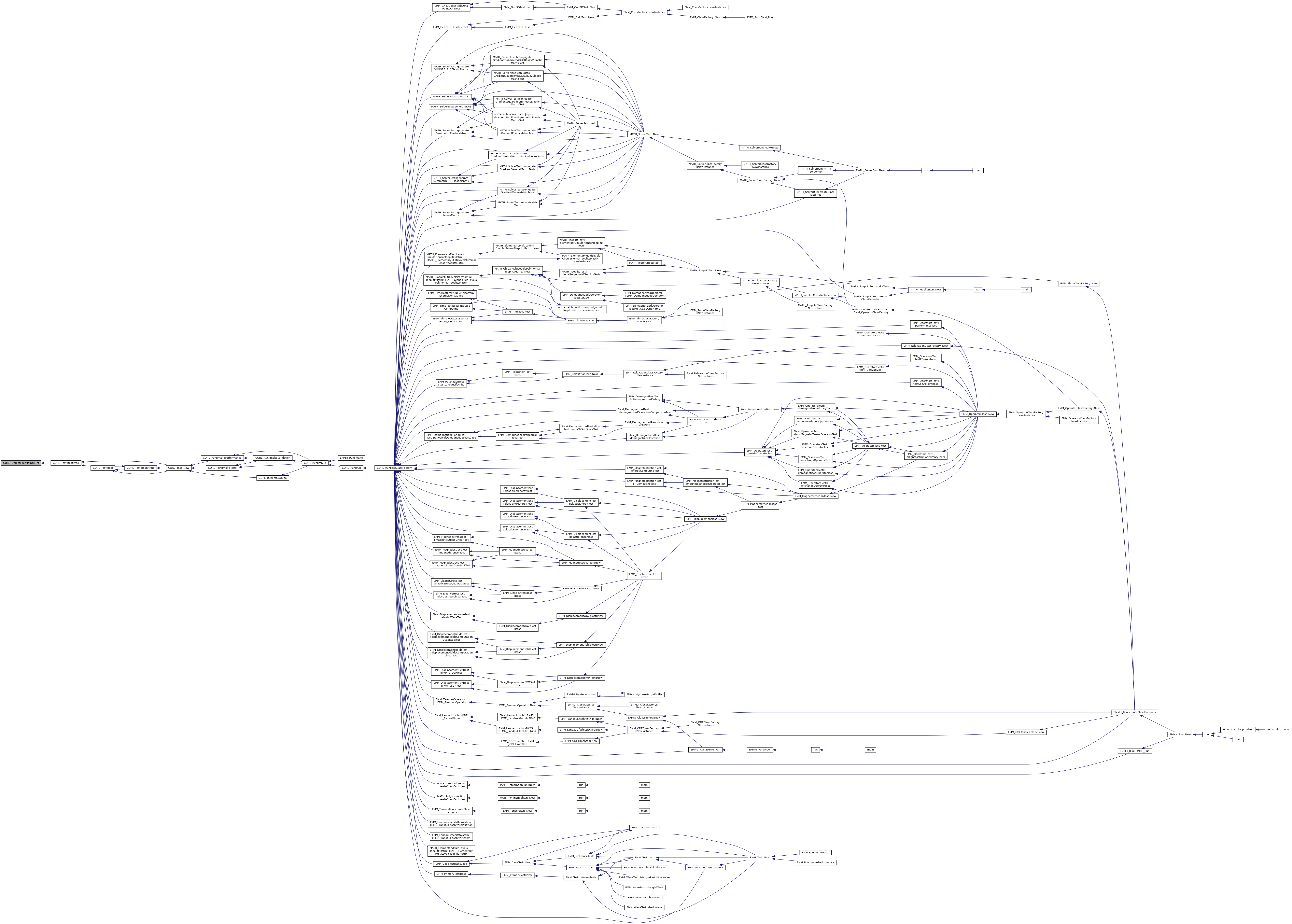
◆ getMaxUSInt()
|
inlinestaticinherited |
get the max value for tUSInt type
- Returns
- the max value for tUSInt type
Referenced by CORE_Test::testType().

◆ getMilliSeconds()
|
inline |
return the milliseconds seconds of the time
- Returns
- the current milli seconds in [0,1000[
References mMilliSeconds.
Referenced by subInMilliSeconds(), and subTimesInMilliSeconds().

◆ getMinChar()
|
inlinestaticinherited |
get the min value for tChar type
- Returns
- the min value for tChar type
Referenced by CORE_Test::testType().
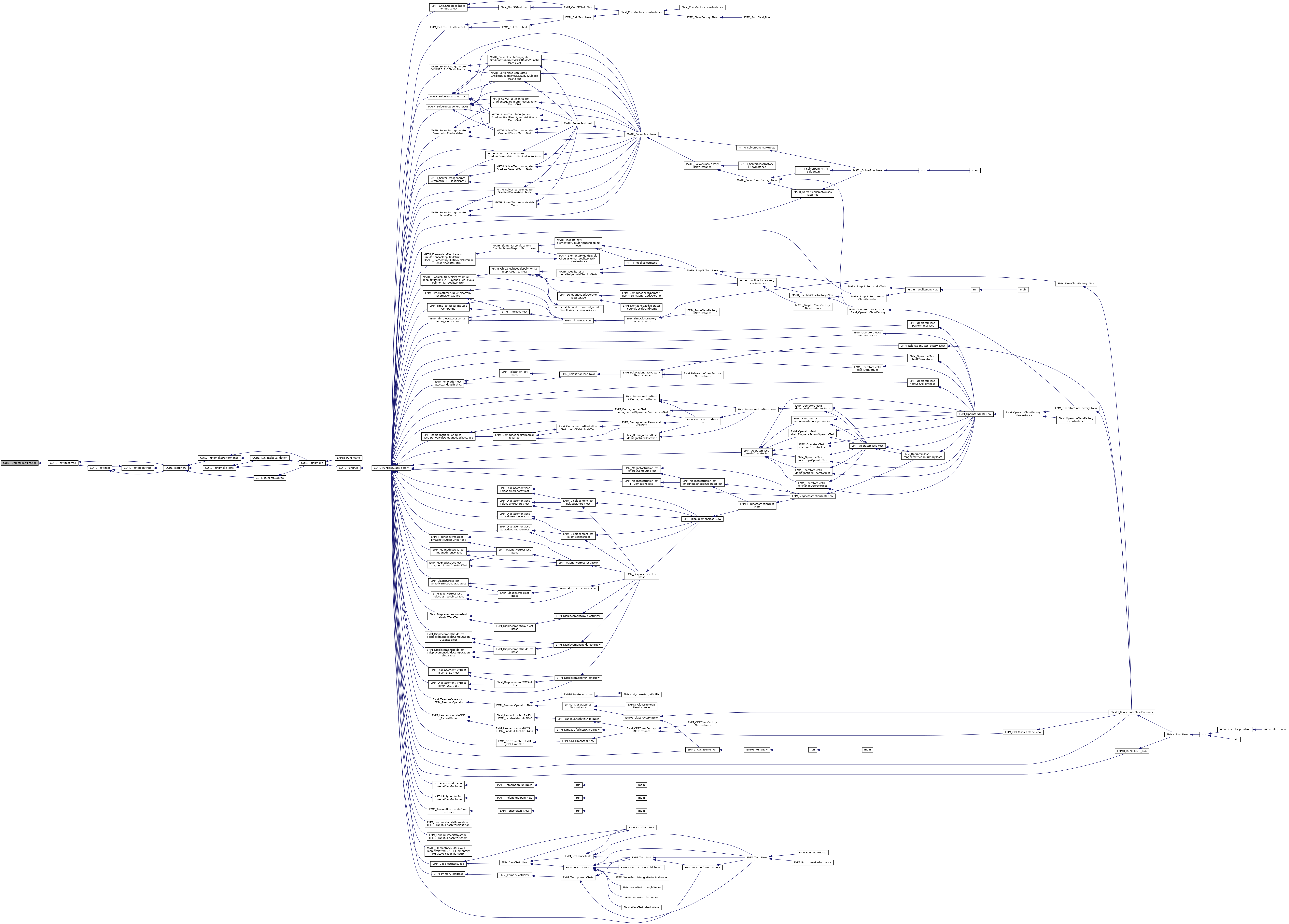
◆ getMinDouble()
|
inlinestaticinherited |
get the min value for tDouble type
- Returns
- the min value for tDouble type
Referenced by CORE_Test::testType().

◆ getMinFlag()
|
inlinestaticinherited |
get the min value for the tFlag type
- Returns
- the min value for the tFlag type
Referenced by CORE_Test::testType().
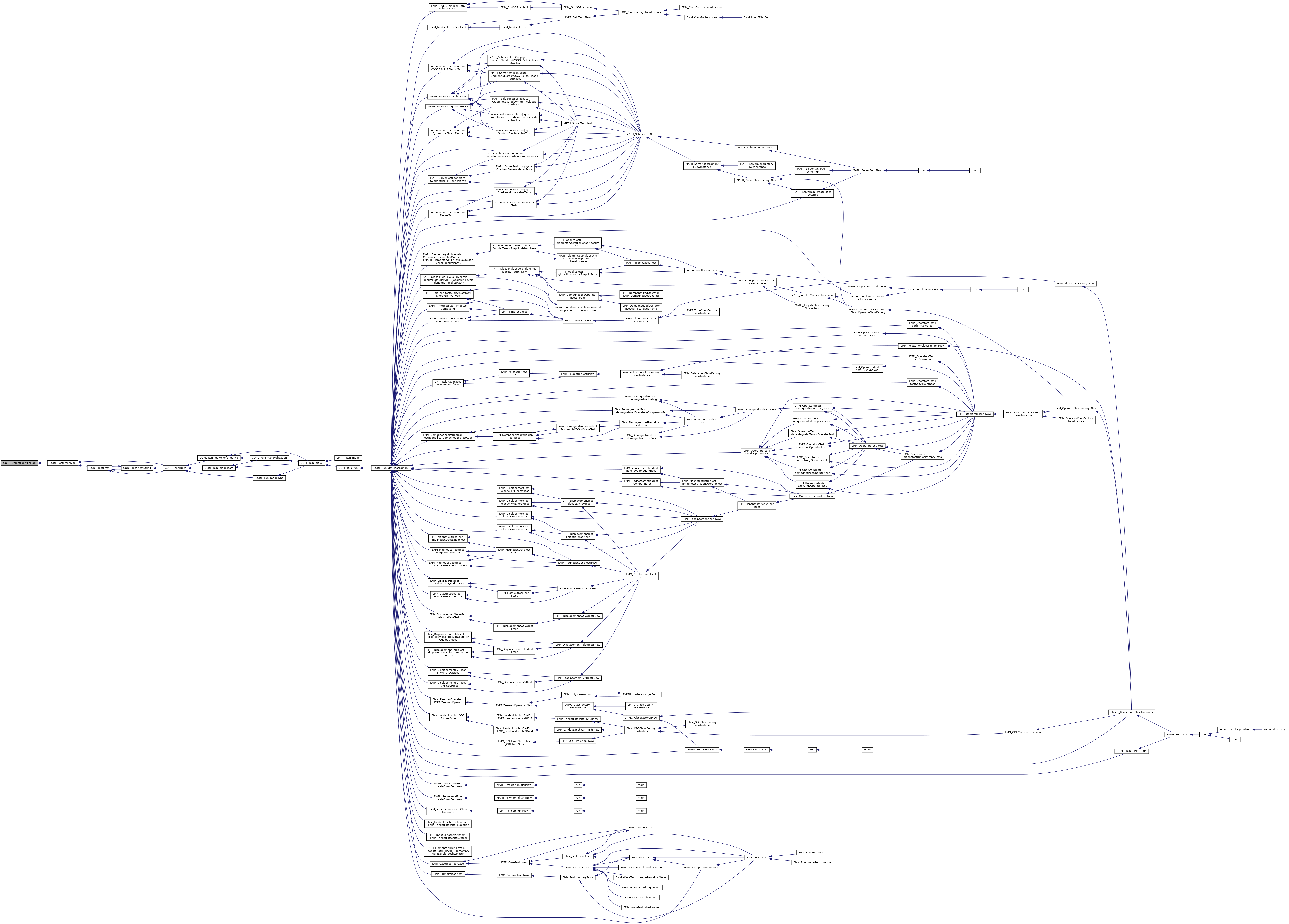
◆ getMinFloat()
|
inlinestaticinherited |
get the min value for tFloat type
- Returns
- the min value for tFloat type
Referenced by CORE_Test::testType().
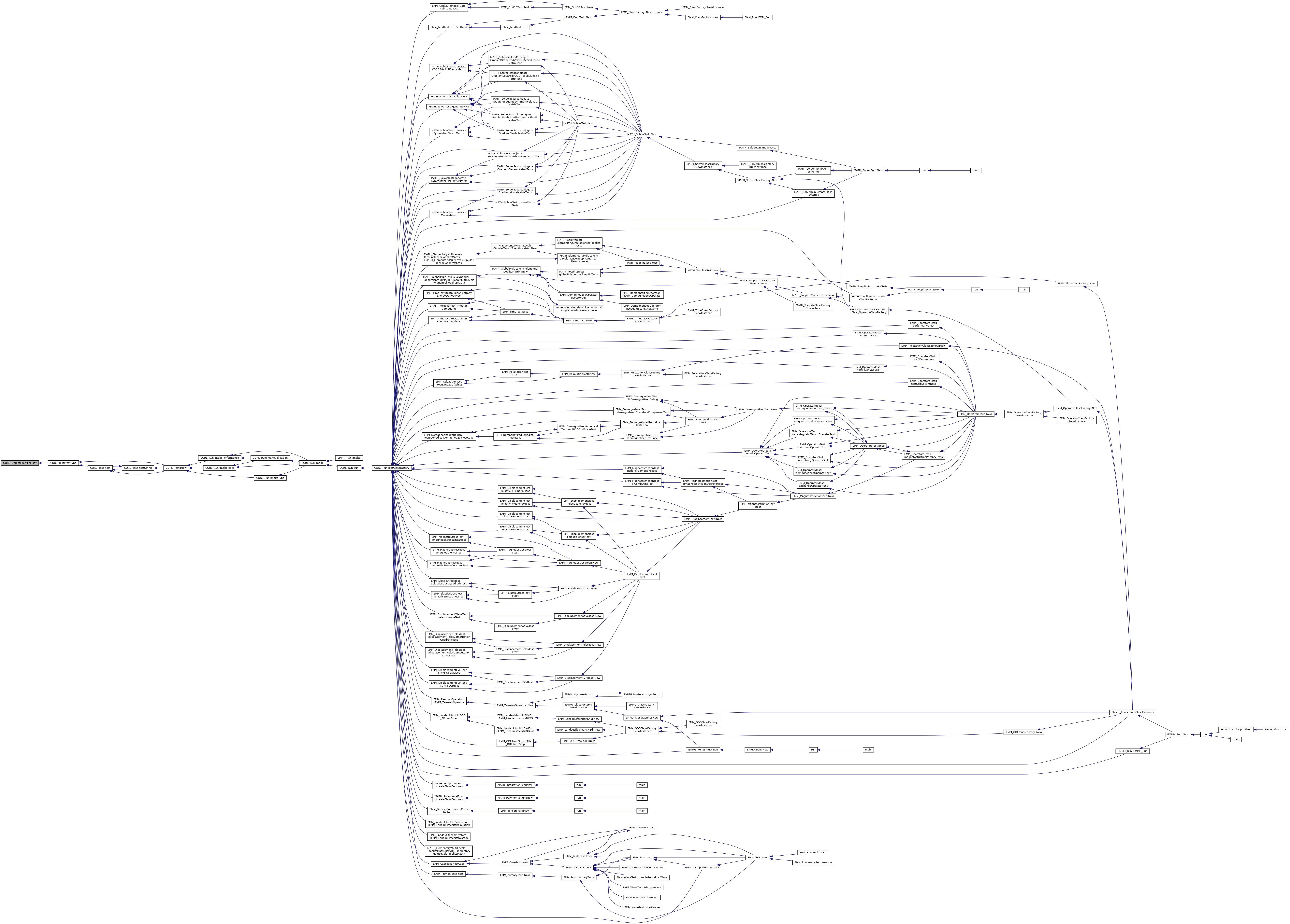
◆ getMinIndex()
|
inlinestaticinherited |
get the min value for the array/vector indexing type
- Returns
- the min value for the array/vector indexing type
Referenced by CORE_Test::testType().
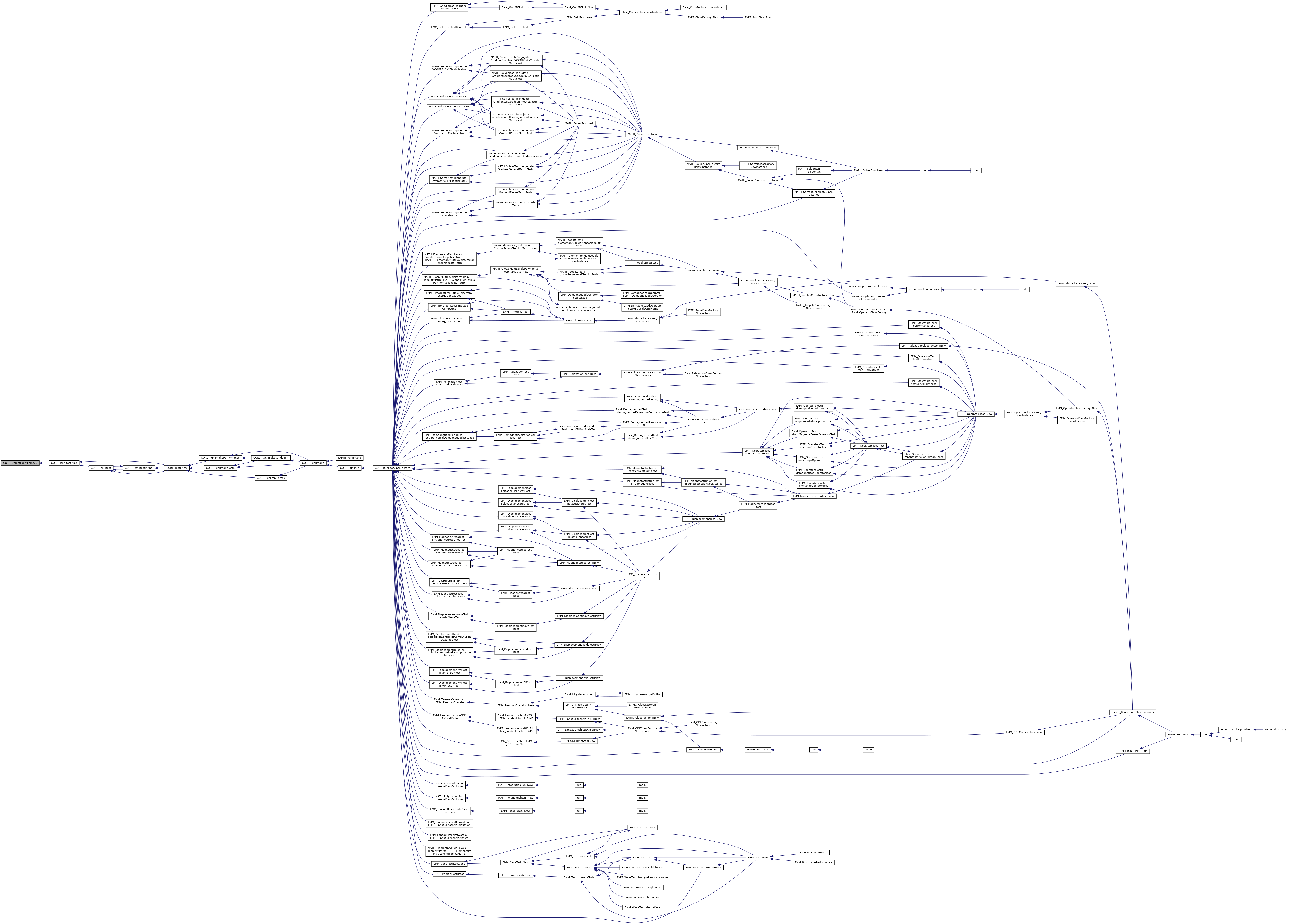
◆ getMinInt()
|
inlinestaticinherited |
get the min value for tInt type
- Returns
- the min value for tInt type
Referenced by CORE_Test::testType().
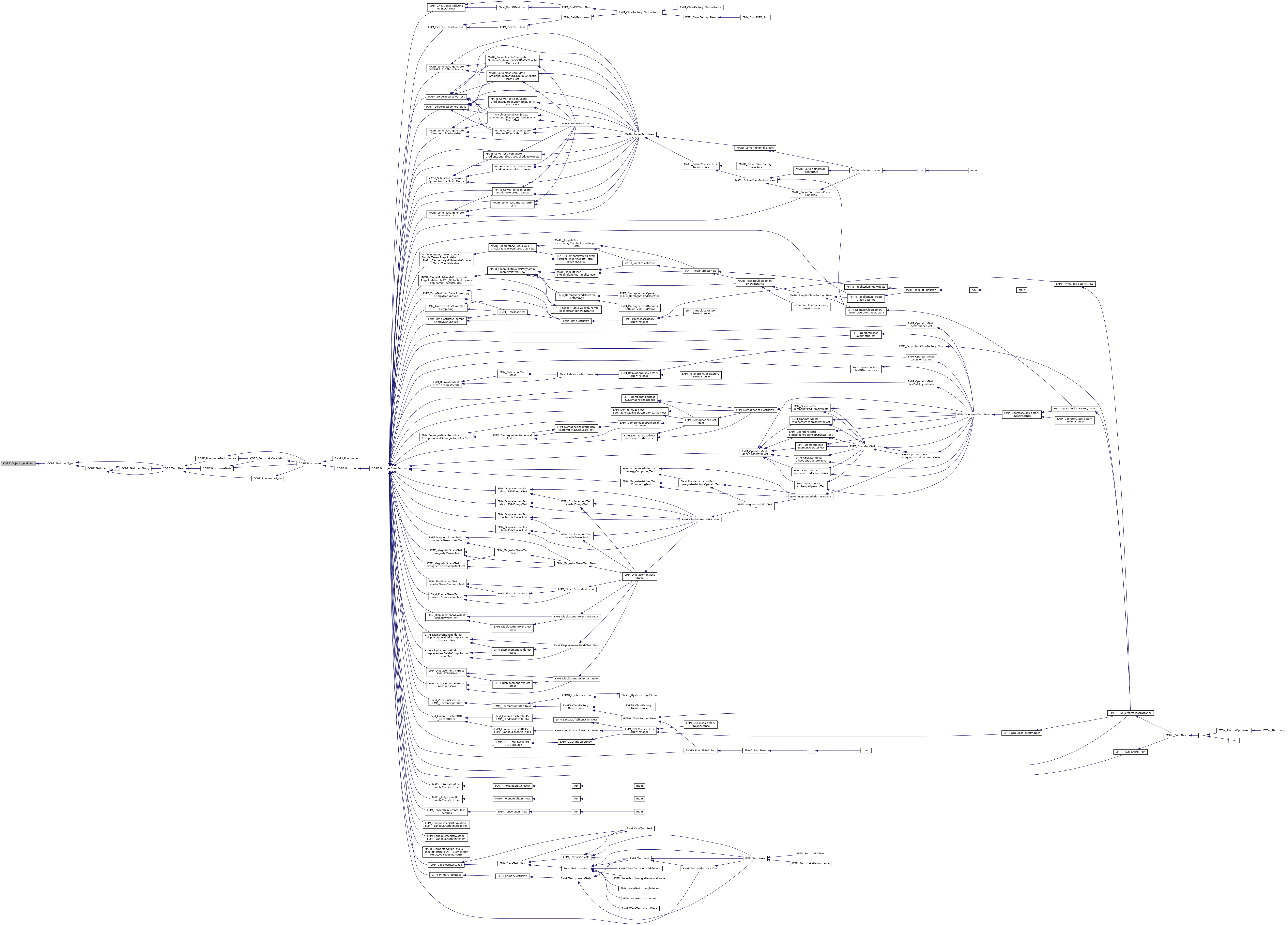
◆ getMinInteger()
|
inlinestaticinherited |
get the min value for the integer type
- Returns
- the minin value for the integer type
Referenced by CORE_Test::testType().

◆ getMinLDouble()
|
inlinestaticinherited |
get the min value for tLDouble type
- Returns
- the min value for tLDouble type
Referenced by CORE_Test::testType().

◆ getMinLInt()
|
inlinestaticinherited |
get the min value for tLInt type
- Returns
- the min value for tLInt type
Referenced by CORE_Test::testType().
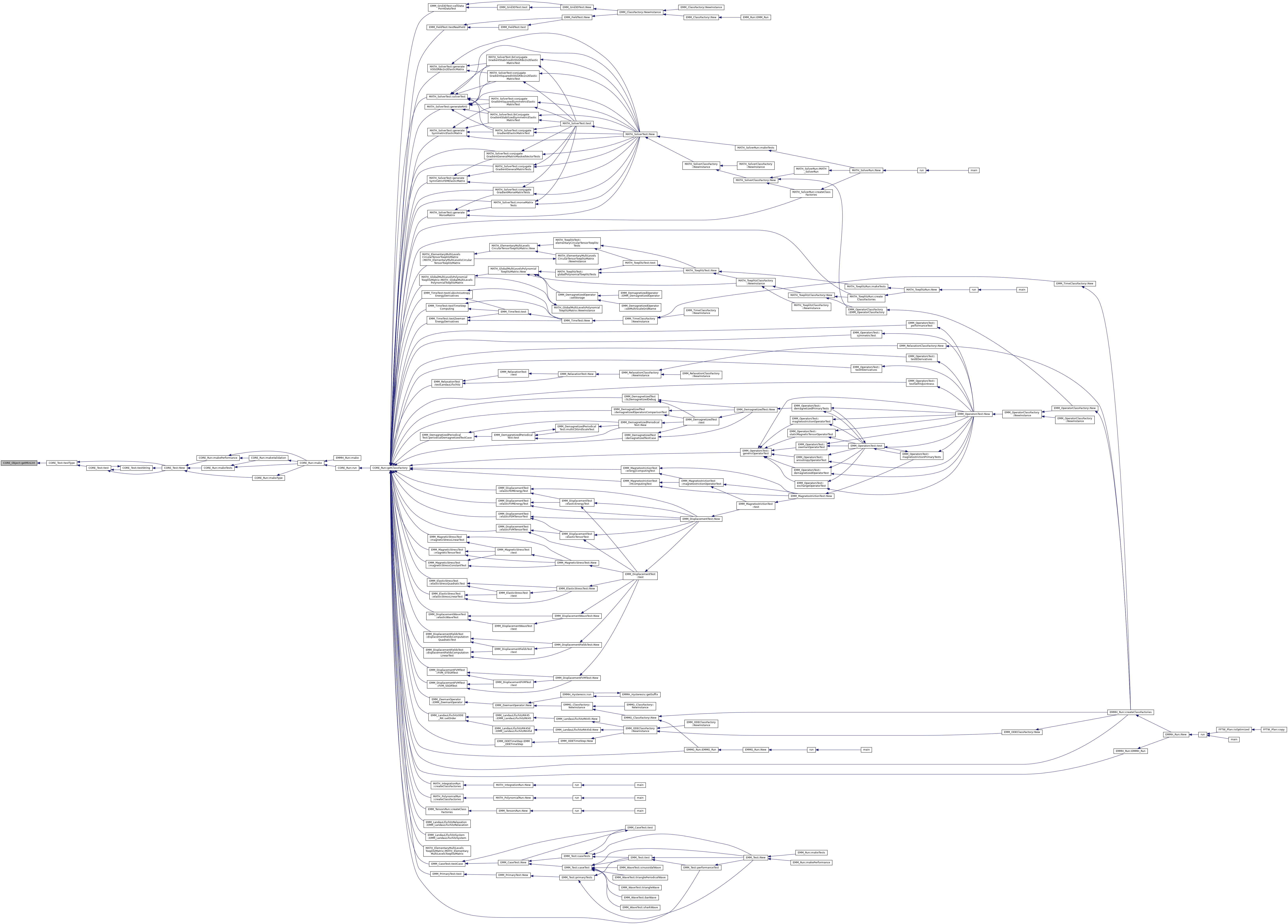
◆ getMinLLInt()
|
inlinestaticinherited |
get the min value for tLLInt type
- Returns
- the min value for tLLInt type
Referenced by CORE_Test::testType().

◆ getMinReal()
|
inlinestaticinherited |
get the min value for the real type
- Returns
- the min value for the real type
Referenced by CORE_Test::testType().
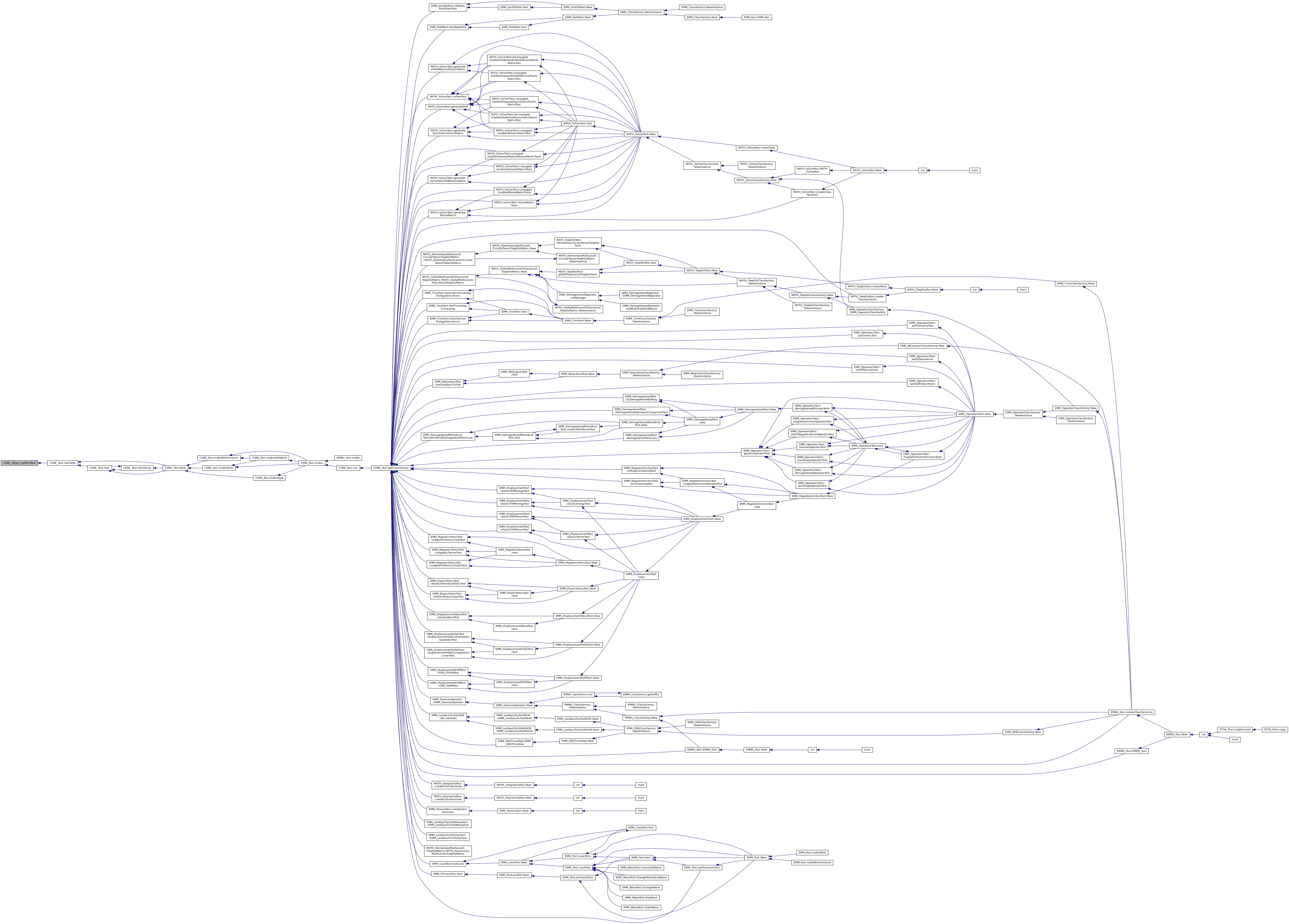
◆ getMinSInt()
|
inlinestaticinherited |
get the min value for tSInt type
- Returns
- the min value for tSInt type
Referenced by CORE_Test::testType().
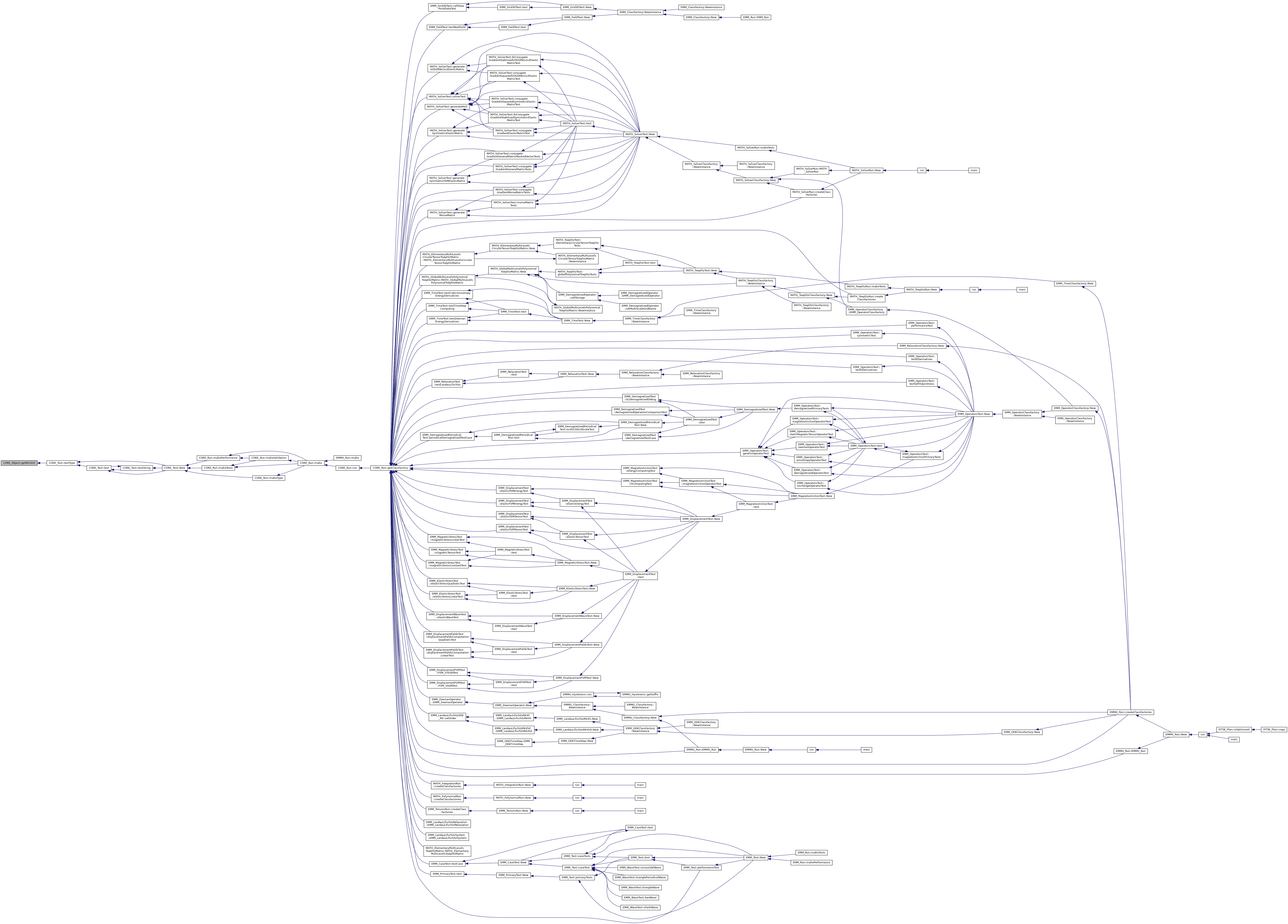
◆ getMinUChar()
|
inlinestaticinherited |
get the min value for tUChar type
- Returns
- the min value for tUChar type
Referenced by CORE_Test::testType().
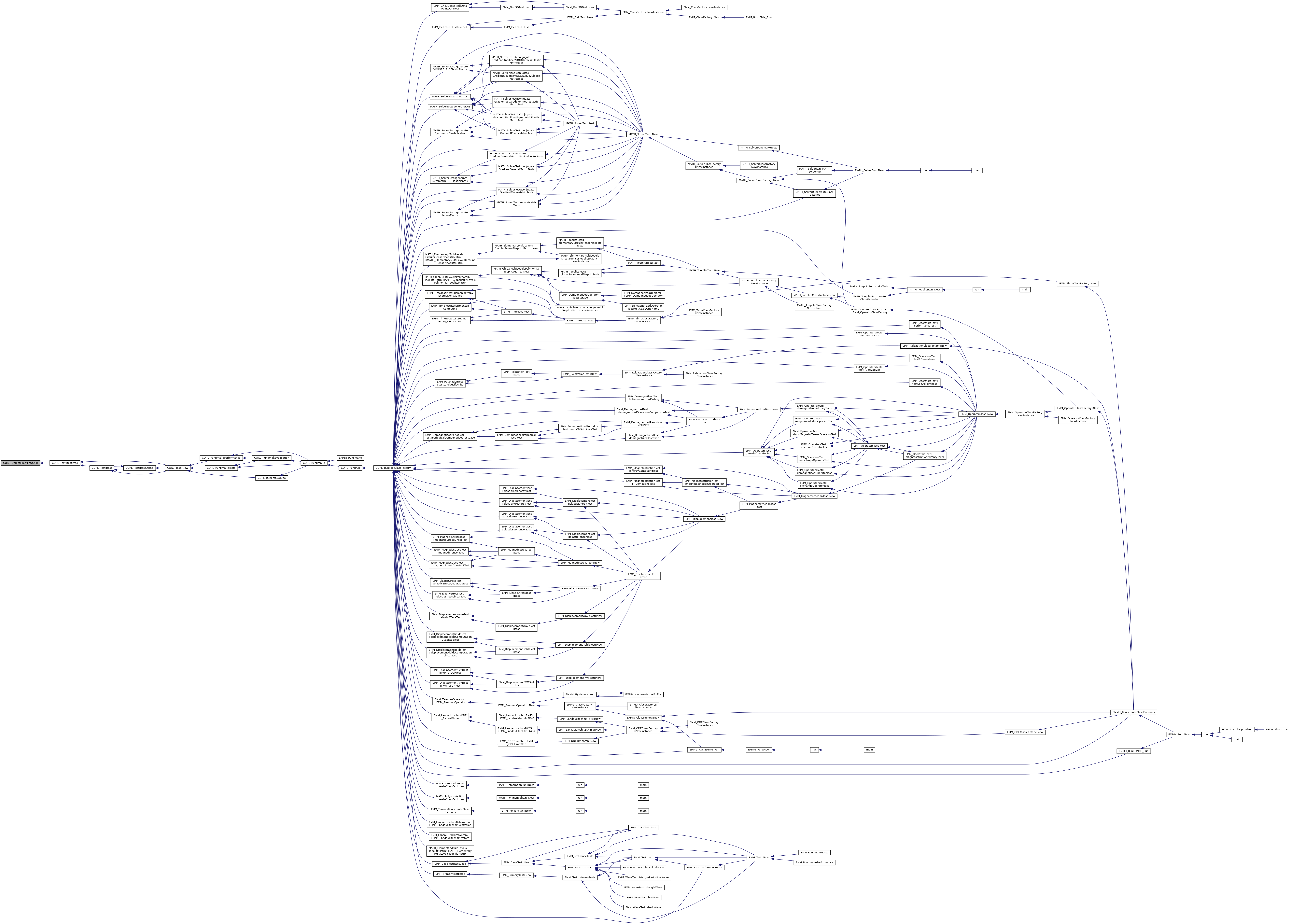
◆ getMinUIndex()
|
inlinestaticinherited |
get the min value for difference the array/vector indexing type
- Returns
- the min value for difference the array/vector indexing type
Referenced by CORE_Test::testType().
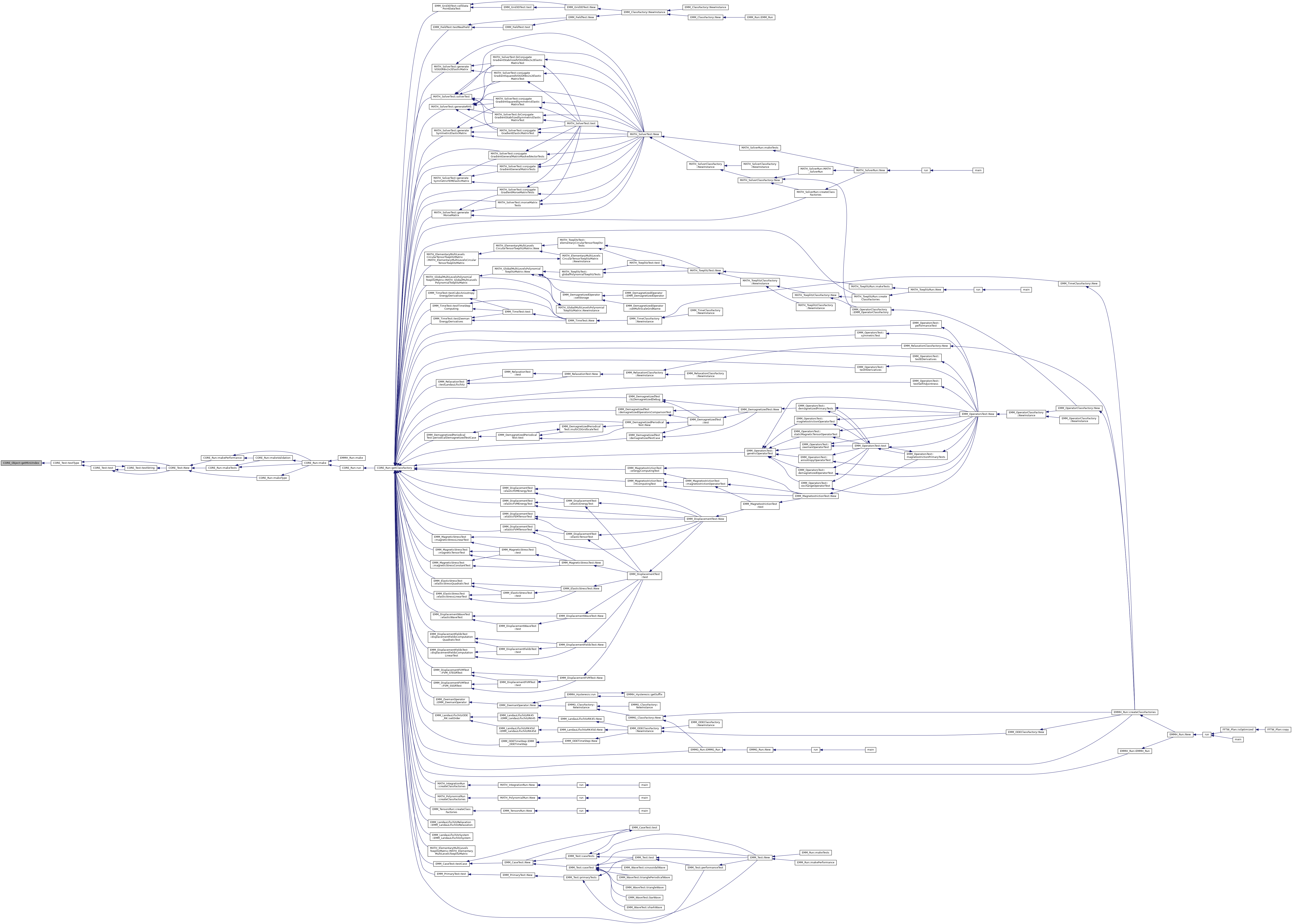
◆ getMinUInt()
|
inlinestaticinherited |
get the min value for tUInt type
- Returns
- the min value for tUInt type
Referenced by CORE_Test::testType().
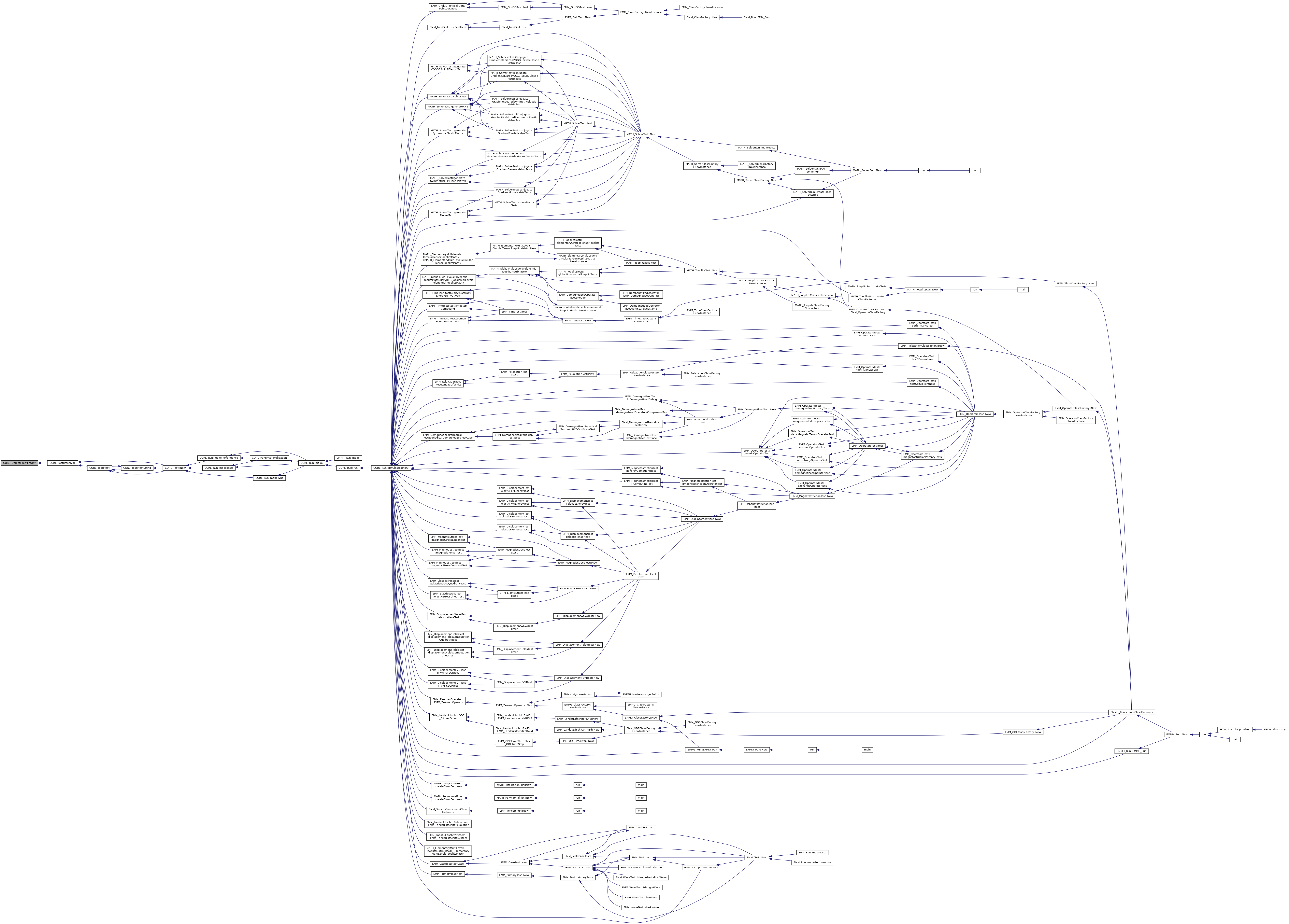
◆ getMinUInteger()
|
inlinestaticinherited |
get the min value for the unsigned integer type
- Returns
- the min value for the unsigned integer type
Referenced by CORE_Test::testType().

◆ getMinULInt()
|
inlinestaticinherited |
get the min value for tULInt type
- Returns
- the min value for tULInt type
Referenced by CORE_Test::testType().

◆ getMinULLInt()
|
inlinestaticinherited |
get the min value for tULLInt type
- Returns
- the min value for tULLInt type
Referenced by CORE_Test::testType().
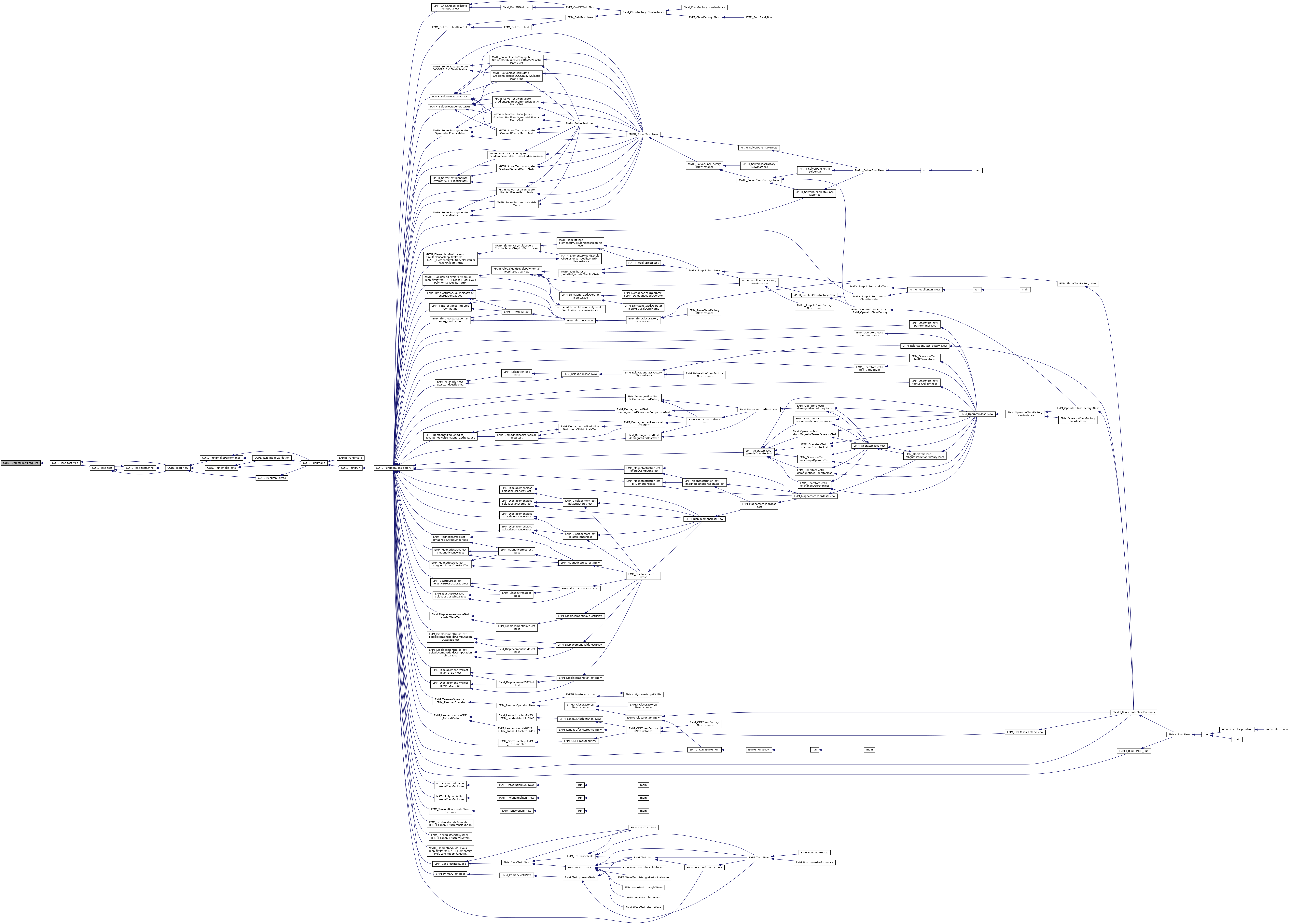
◆ getMinUSInt()
|
inlinestaticinherited |
get the min value for tUSInt type
- Returns
- the min value for tUSInt type
Referenced by CORE_Test::testType().
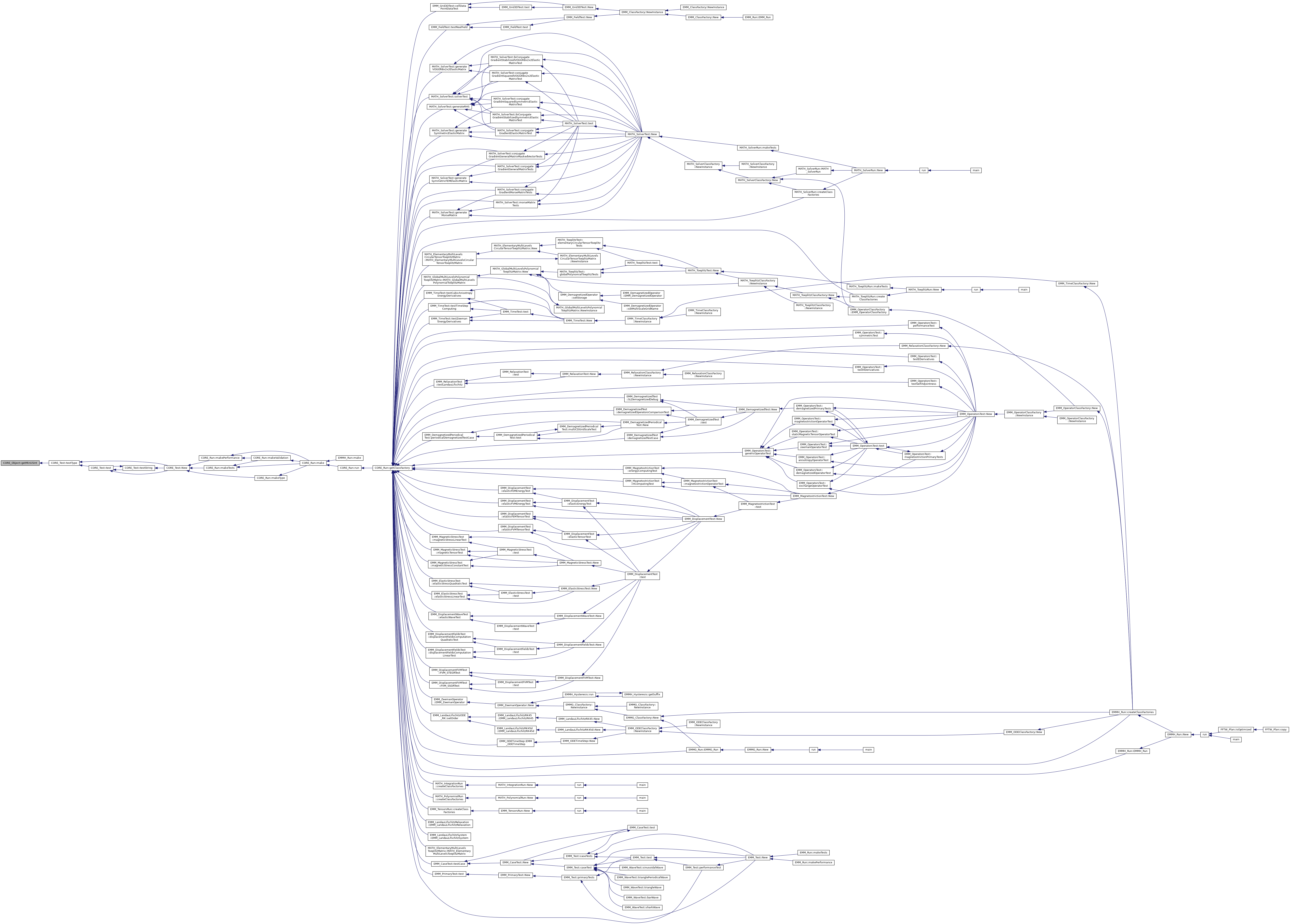
◆ getMinutes()
|
inline |
◆ getMonth()
|
inline |
return the month
- Returns
- the current month [1..12]
Referenced by setDate().

◆ getOut()
|
inlinestaticinherited |
◆ getPointerAddress()
|
inlineinherited |
return the identity string of the object
- Returns
- the identity string of the object
References CORE_Object::pointer2String().

◆ getRealEpsilon()
|
inlinestaticinherited |
get the eps which is the difference between 1 and the least value greater than 1 that is representable.
- Returns
- the eps which is the difference between 1 and the least value greater than 1 that is representable.
Referenced by MATH_P4::solveP4De(), and CORE_Test::testType().
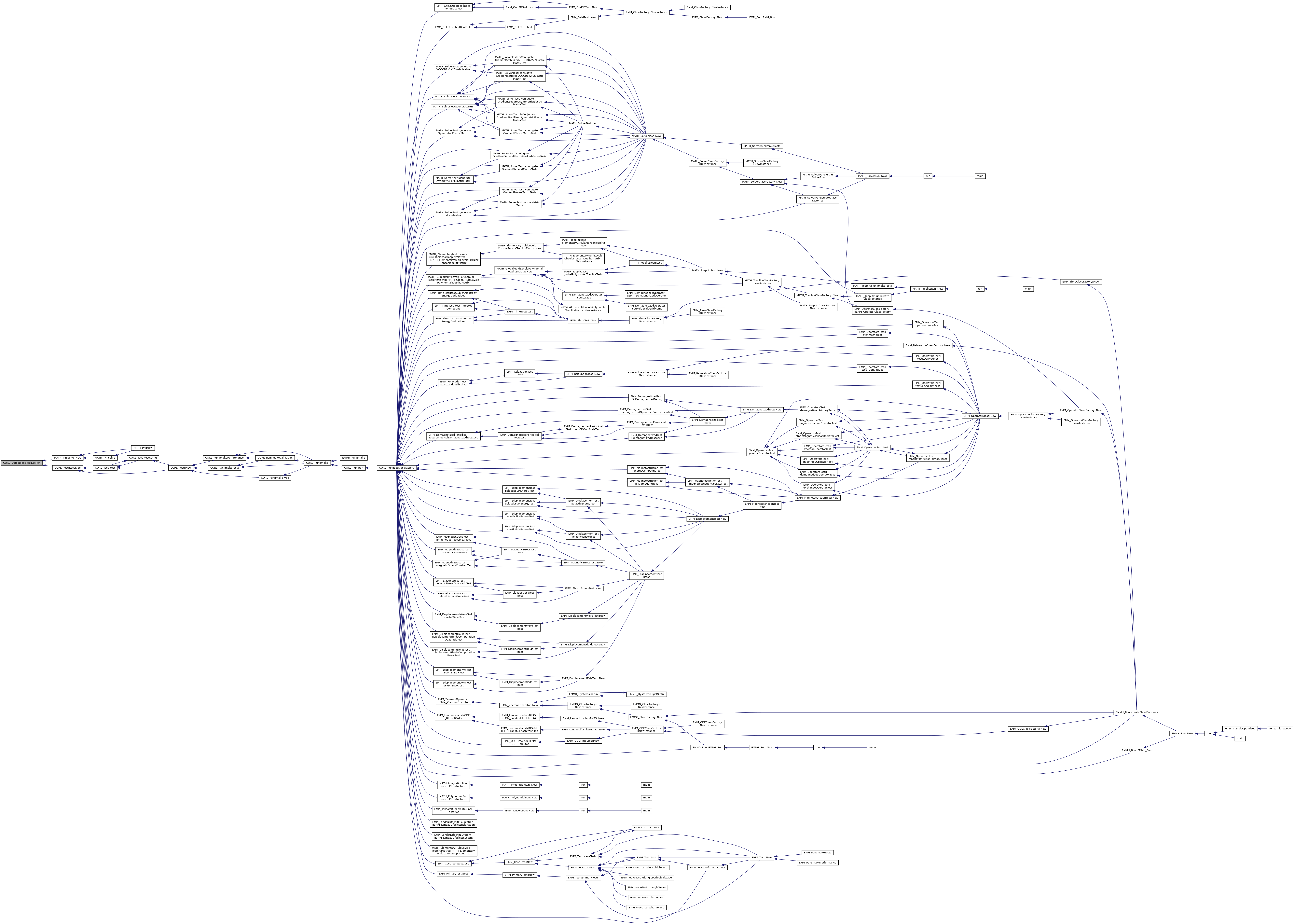
◆ getRealInfinity()
|
inlinestaticinherited |
get the infinity value
- Returns
- the inifinity value for the real type
Referenced by BrentFunction::BrentFunction(), EMM_OperatorsTest::compareDiscretizedData(), EMM_IterativeTimeStep::EMM_IterativeTimeStep(), EMM_SLElementaryDemagnetizedMatrix::Kxy(), NRFunction::NRFunction(), EMM_PolynomialInterpolationTimeStep::optimizeTimeFunction(), and CORE_Test::testType().
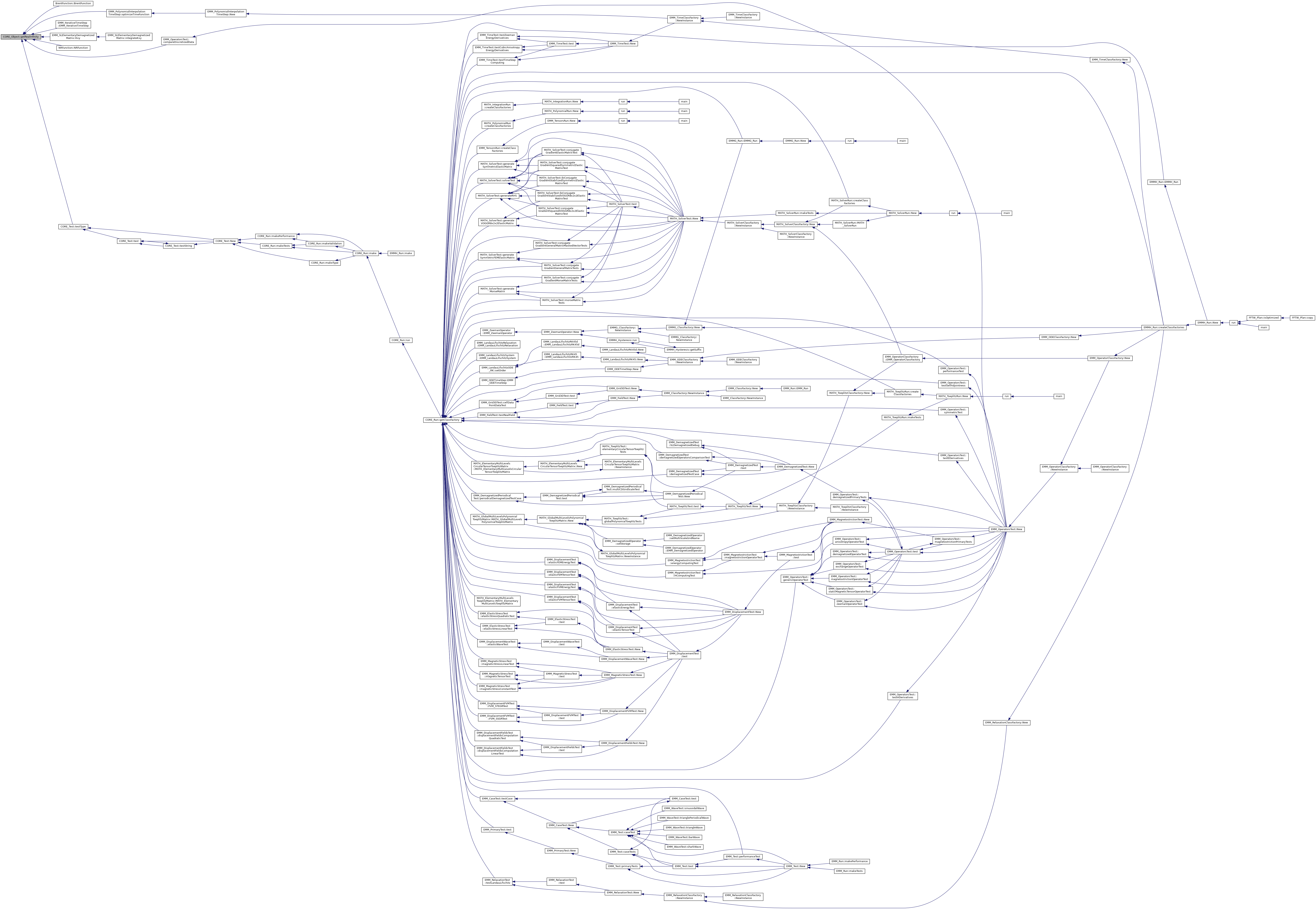
◆ getSeconds()
|
inline |
◆ getSecondsSince1900()
|
inline |
return the number of seconds since 1900
- Returns
- the current time expressed in seconds
References mSecondsSince1900, setDate(), tTime, and tUInteger.
Referenced by isAfter(), isAfterOrEqual(), isBefore(), isBeforeOrEqual(), isEqual(), setToFirstWeekDay(), setToWeekDay(), sub(), subInMilliSeconds(), subTimes(), and subTimesInMilliSeconds().

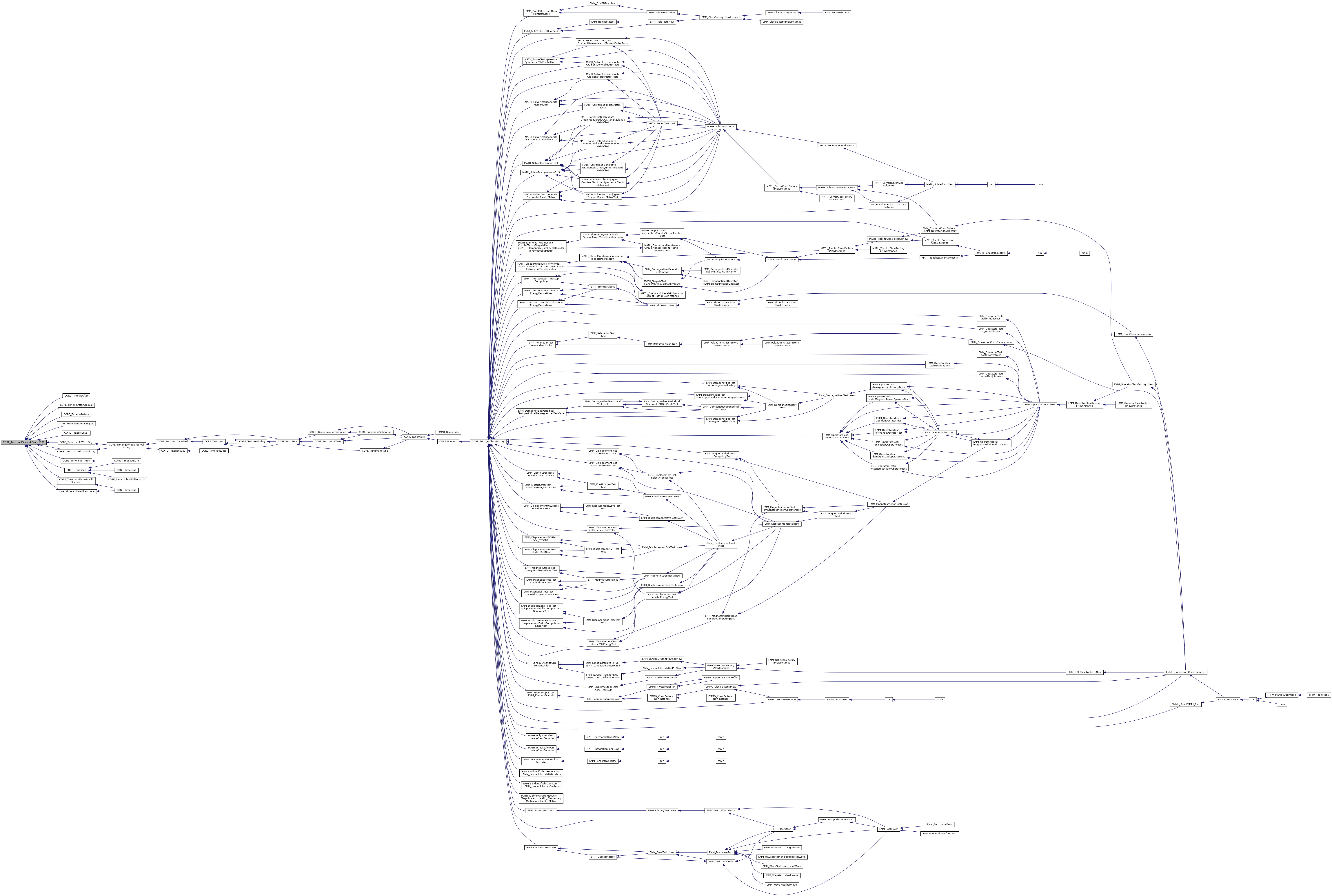
◆ getSharedPointer() [1/2]
|
inlineinherited |
get the shared pointer of this class into p
- Parameters
-
p : shared pointer of the class This
Referenced by CORE_Map< Key, Value >::getSharedPointer(), CORE_ArrayList< tString >::getSharedPointer(), EMM_Array< tCellFlag >::getSharedPointer(), CORE_Array< tCellFlag >::getSharedPointer(), CORE_MorseArray< tUChar >::getSharedPointer(), CORE_Vector< T >::getSharedPointer(), and CORE_Object::printObjectsInMemory().
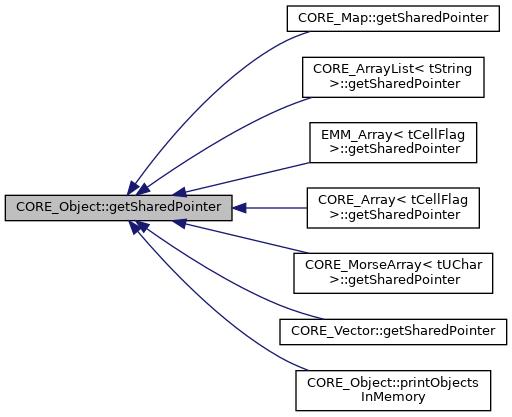
◆ getSharedPointer() [2/2]
|
inlineinherited |
get the shared pointer of this class into p
- Parameters
-
p : shared pointer of the class This
◆ getThread()
|
inlinestaticinherited |
get the profilier
- Returns
- the profiler
Referenced by MATH_MaskVector::add(), MATH_Vector::add(), EMM_DisplacementFEMOperator::addBoundaryElasticStress(), EMM_DisplacementFEMOperator::buildDataOnNeumannBoundaryFaces(), EMM_DisplacementFVMOperator::computeCineticEnergy(), EMM_DisplacementFVMOperator::computeElasticStress(), EMM_DisplacementFEMOperator::computeElasticStress(), EMM_DisplacementFVMOperator::computeElasticTensor(), EMM_DisplacementFEMOperator::computeElasticTensor(), EMM_StaticMagneticTensorOperator::computeEnergy(), EMM_CubicAnisotropyOperator::computeEnergy(), EMM_MagnetostrictionOperator::computeEnergy(), EMM_DisplacementOperator::computeEnergy(), EMM_AnisotropyOperator::computeEnergyWithMagneticExcitation(), EMM_DisplacementFVMOperator::computeEquilibriumMatrixDiagonalConditioner(), EMM_DisplacementFEMOperator::computeEquilibriumMatrixDiagonalConditioner(), EMM_FullExchangeOperator::computeMagneticExcitationField(), EMM_StaticMagnetostrictionOperator::computeMagneticExcitationField(), EMM_LinearAnisotropyOperator::computeMagneticExcitationField(), EMM_StaticMagneticTensorOperator::computeMagneticExcitationField(), EMM_CubicAnisotropyOperator::computeMagneticExcitationField(), EMM_MinimalExchangeOperator::computeMagneticExcitationField(), EMM_AnisotropyOperator::computeMagneticExcitationField(), EMM_MagnetostrictionOperator::computeMagneticExcitationField(), EMM_CubicAnisotropyOperator::computeMagneticExcitationFieldGradient(), EMM_AnisotropyOperator::computeMagneticExcitationFieldGradient(), EMM_DisplacementFVMOperator::computeMagneticStress(), EMM_DisplacementFEMOperator::computeMagneticStress(), EMM_OptimalTimeStep::computeOptimalTimeStep(), EMM_DisplacementFEMOperator::computeStressConstraintEnergy(), EMM_FullExchangeOperator::discretize(), EMM_MinimalExchangeOperator::discretize(), EMM_CondensedMassMatrix::discretize(), EMM_LinearAnisotropyOperator::discretize(), EMM_AnisotropyOperator::discretize(), EMM_DemagnetizedOperator::discretize(), EMMG_SLDemagnetizedOperator::discretize(), EMM_LandauLifschitzSystem::discretize(), MATH_Vector::divide(), MATH_MaskVector::dot(), MATH_Vector::dot(), EMM_4SymmetricTensors::doubleDot(), EMM_4Tensors::doubleDotCrossDoubleDotScalar(), EMM_4Tensors::doubleDotCrossProduct(), EMM_4Tensors::doubleDotCrossSquaredScalar(), EMM_4Tensors::doubleDotProduct(), MATH_Vector::init(), MATH_MaskVector::init(), EMM_LandauLifschitzODE_RK::integrateMagnetizationFieldAtTime(), EMM_DisplacementFVM_Interpolator::interpolateUAtVertices(), EMMG_SLDemagnetizedOperator::localAssembly(), EMM_DisplacementOperator::nullProjectionOnDirichletBoundary(), EMM_DisplacementOperator::periodicProjection(), EMM_2PackedSymmetricTensors::product(), EMM_CanonicalMassMatrix::product(), MATH_FullMatrix::product(), EMM_CondensedMassMatrix::product(), EMM_BlockMassMatrix::product(), MATH_MorseMatrix::product(), EMMG_SLDemagnetizedOperator::product(), EMM_DisplacementOperator::projectionOnDirichletBoundary(), EMM_LandauLifschitzSystem::resetOperatorsToInitialState(), EMM_DisplacementFVMOperator::setBoundaryFaceTypes(), FFTW_MultiDFTs::setFFT(), FFTW_MultiLevelsDFT::setFFT(), FFTW_MultiLevelsDFT::setLevels(), FFTW_MultiDFTs::setPlan(), FFTW_MultiLevelsDFT::setPlan(), EMM_CondensedMassMatrix::solve(), EMM_LandauLifschitzODE::solveODE(), EMM_4SymmetricTensors::squaredDoubleDot(), EMM_4Tensors::squaredDoubleDotCrossScalar(), EMM_4Tensors::squaredDoubleDotScalar(), EMM_CanonicalMassMatrix::symmetricDot(), EMM_CondensedMassMatrix::symmetricDot(), EMM_BlockMassMatrix::symmetricDot(), FFTW_Test::test(), MATH_SolverTest::test(), EMM_ODETest::testODE(), and EMM_Grid3D::updateLimitConditionOnPoints().

◆ getTime()
|
inlinestatic |
return the time in 1/60 seconds
- Returns
- the time in 1/60 seconds
References getDateInMilliSeconds().

◆ getTypeName()
|
inlinestaticinherited |
◆ getWeek()
|
staticprivate |
References _fmt().
Referenced by CORE_Time(), getDuration(), and setDate().

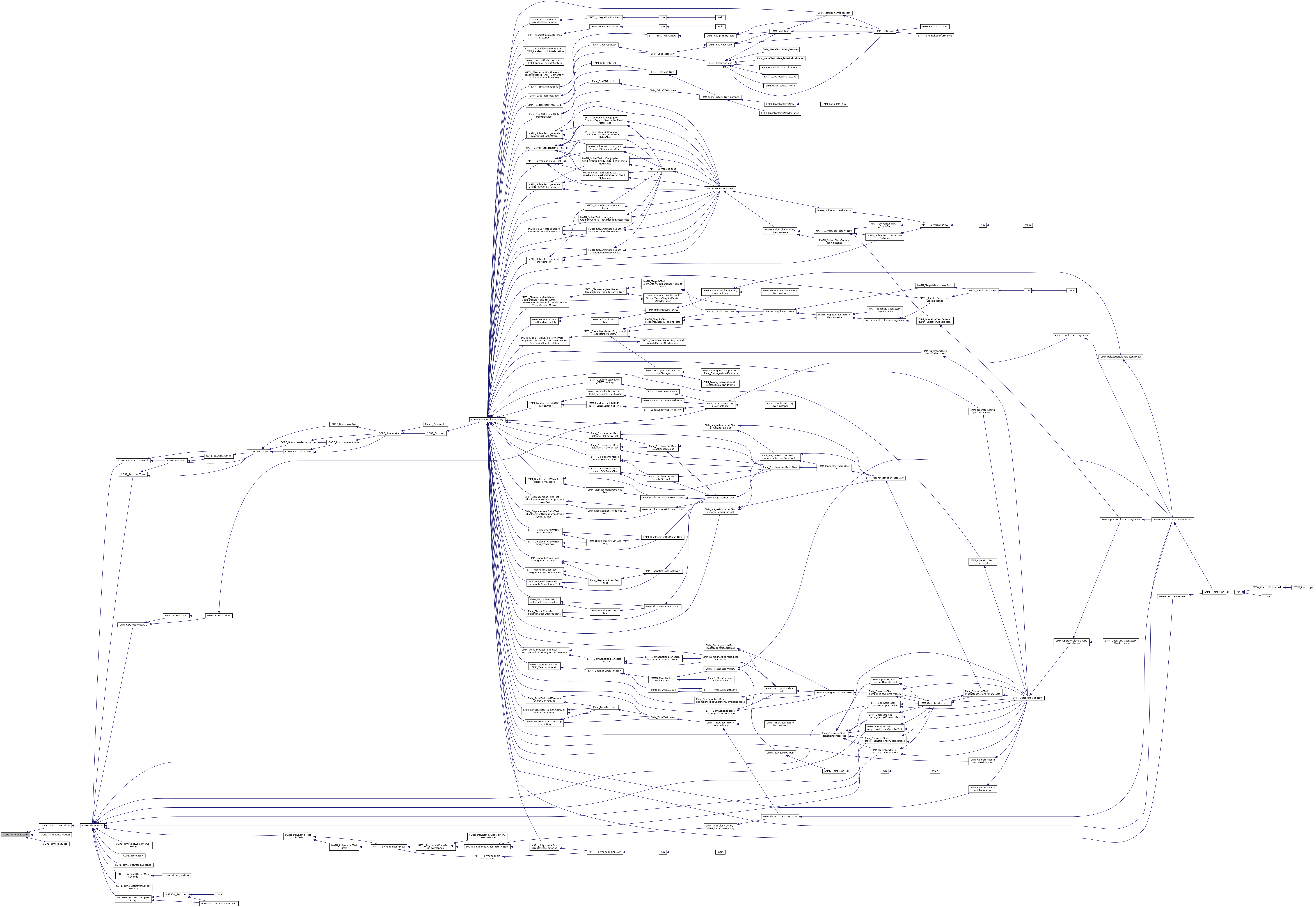
◆ getWeekDay()
|
inline |
return the day of the week
- Returns
- the first day of the current week in [0..6] 0 is Sunday
References mWeekDay.
◆ getWeekIntervalString() [1/2]
◆ getWeekIntervalString() [2/2]
|
inline |
get the week interval monday –> Sunday of the current time
- Returns
- the current week interval in string form
References setToFirstWeekDay(), setToWeekDay(), and tUInteger.
Referenced by getDay(), and CORE_Test::testDateWeek().

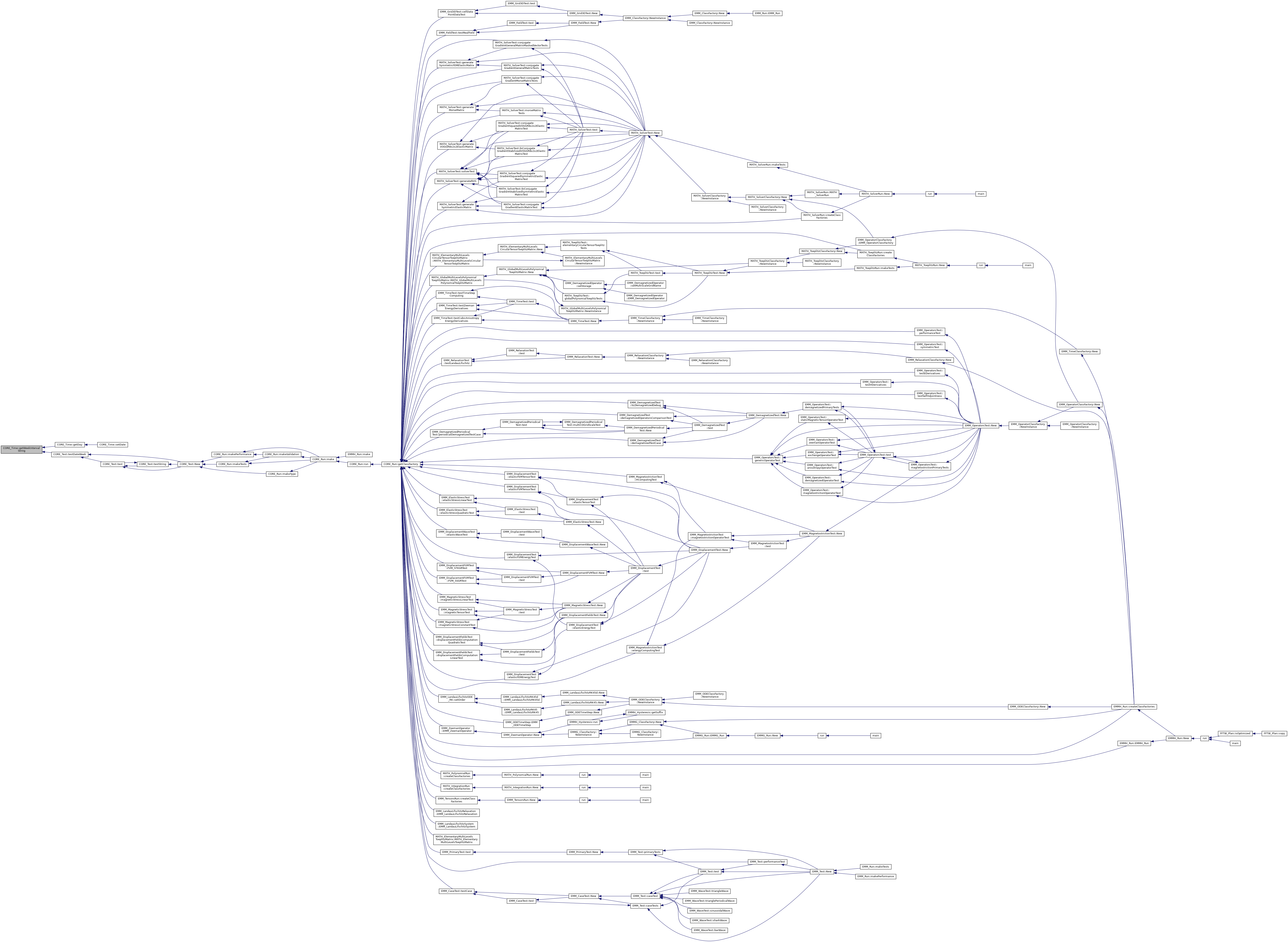
◆ getWeekYear()
◆ getYear()
|
inline |
◆ is32Architecture()
|
inlinestaticinherited |
return true if the machine is a 32 bits machine
- Returns
- true is the computing is done in a 32 bits machine
References CORE_Object::pointer2String(), CORE_Object::printObjectsInMemory(), and tString.
Referenced by CORE_Test::testType().


◆ is64Architecture()
|
inlinestaticinherited |
return true if the machine is a 64 bits machine
- Returns
- true is the computing is done in a 64 bits machine
Referenced by EMM_VTK::getVTKType(), and CORE_Test::testType().
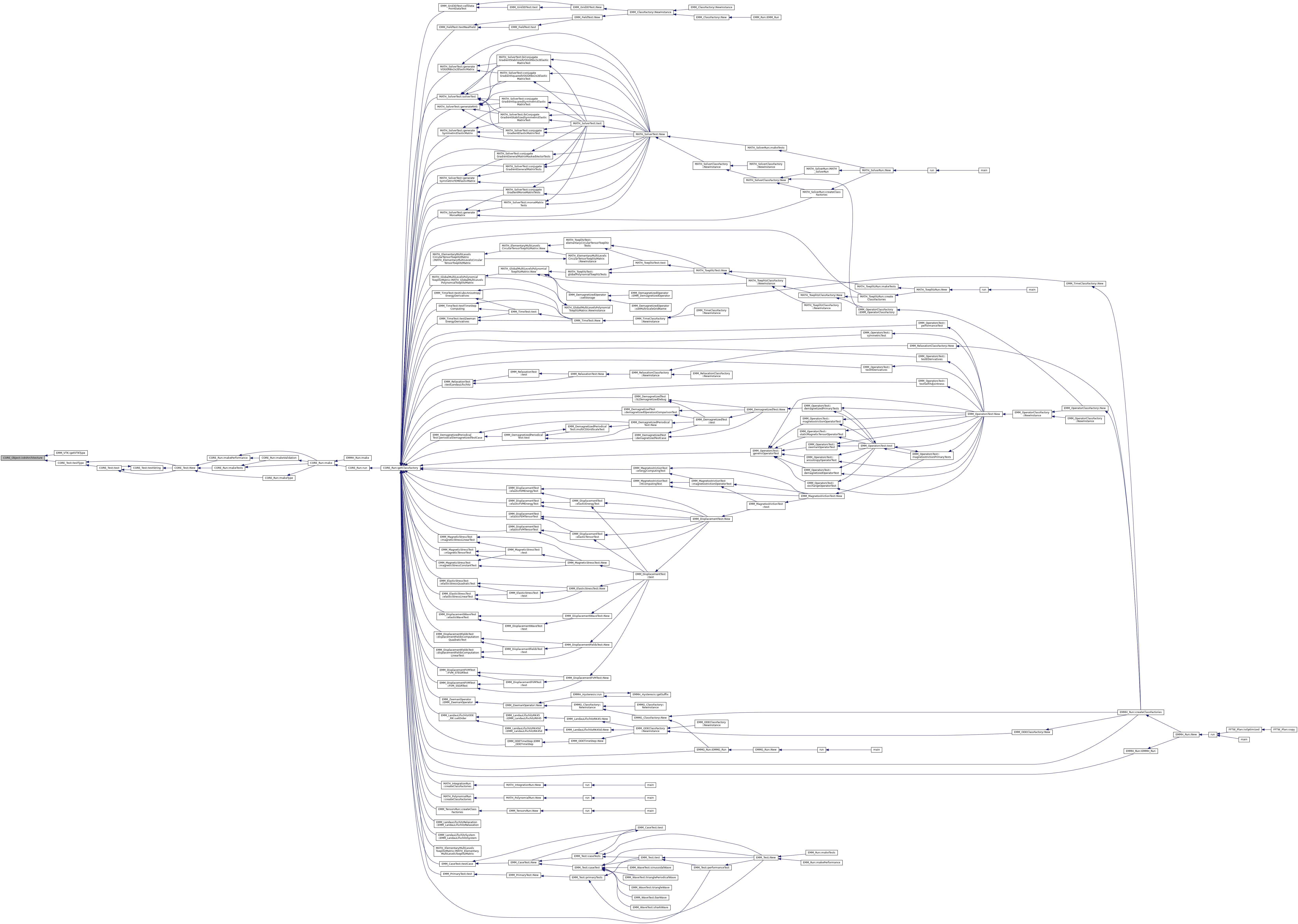
◆ isAfter() [1/3]
return true if this > t
- Parameters
-
t the reference time to compare
- Returns
- (this>t)
References getSecondsSince1900().

◆ isAfter() [2/3]
return true if this > t
- Parameters
-
t the reference time to compare
- Returns
- (this>t)
References getSecondsSince1900(), and null.

◆ isAfter() [3/3]
|
inline |
return true if this > t
- Parameters
-
t the reference time to compare
- Returns
- (this>t)
◆ isAfterOrEqual() [1/2]
return true if this >= t
- Parameters
-
t the reference time to compare
- Returns
- (this>=t)
References getSecondsSince1900().

◆ isAfterOrEqual() [2/2]
|
inline |
return true if this >= t
- Parameters
-
t the reference time to compare
- Returns
- (this>=t)
References getDuration(), tString, tUInteger, and tULLInt.

◆ isBefore() [1/3]
return true if this < t
- Parameters
-
t the reference time to compare
- Returns
- (this<t)
References getSecondsSince1900().

◆ isBefore() [2/3]
return true if this < t
- Parameters
-
t the reference time to compare
- Returns
- (this<t)
References getSecondsSince1900(), and null.

◆ isBefore() [3/3]
|
inline |
return true if this < t
- Parameters
-
t the reference time to compare
- Returns
- (this<t)
References getSecondsSince1900().

◆ isBeforeOrEqual() [1/2]
return true if this <= t
- Parameters
-
t the reference time to compare
- Returns
- (this<=t)
References getSecondsSince1900().

◆ isBeforeOrEqual() [2/2]
|
inline |
return true if this <= t
- Parameters
-
t the reference time to compare
- Returns
- (this<=t)
References getSecondsSince1900().

◆ isEqual() [1/3]
return true if the 2 dates are equals between this and t
- Parameters
-
t the time to compare
References getSecondsSince1900(), and null.

◆ isEqual() [2/3]
return true if the 2 dates are equals between this and t
- Parameters
-
t the time to compare
- Returns
- (this==t)
References getSecondsSince1900().

◆ isEqual() [3/3]
|
inline |
return true if the 2 dates are equals
- Parameters
-
t the reference time to compare
- Returns
- (this==t)
◆ isInstanceOf() [1/2]
|
inlineinherited |
test if the clas T is an instance of this class
- Returns
- true if the object is an instance of T
References null.
Referenced by MATH_ToeplitzTest::toeplitzTest().

◆ isInstanceOf() [2/2]
test if the object is an instance of className
- Parameters
-
name name of the class
- Returns
- true if the object is an instance of class Name
References CORE_Object::getIdentityString().

◆ isMemoryChecked()
|
inlinestaticinherited |
get if the memory checking is used
- Returns
- true: if the memory checking is used.
References CORE_Object::getClassName(), CORE_Object::mIsMemoryTesting, and tString.
Referenced by main().


◆ modZ()
◆ New() [1/6]
|
inlinestatic |
creates a time object
- Returns
- a shared pointer to this
References CORE_Time().
Referenced by EMM_OperatorsTest::anisotropyOperatorTest(), EMM_OperatorsTest::demagnetizedOperatorTest(), EMM_OperatorsTest::exchangeOperatorTest(), getDateInMilliSeconds(), getDateInSeconds(), getDaysNumberInMonth(), getWeekIntervalString(), EMM_OperatorsTest::magnetostrictionOperatorTest(), New(), MATH_PolynomialTest::P4Tests(), EMM_OperatorsTest::staticMagneticTensorOperatorTest(), MATSGN_Test::testComplexArray(), CORE_Test::testDateWeek(), EMM_ODETest::testODE(), and CORE_Test::testTime().

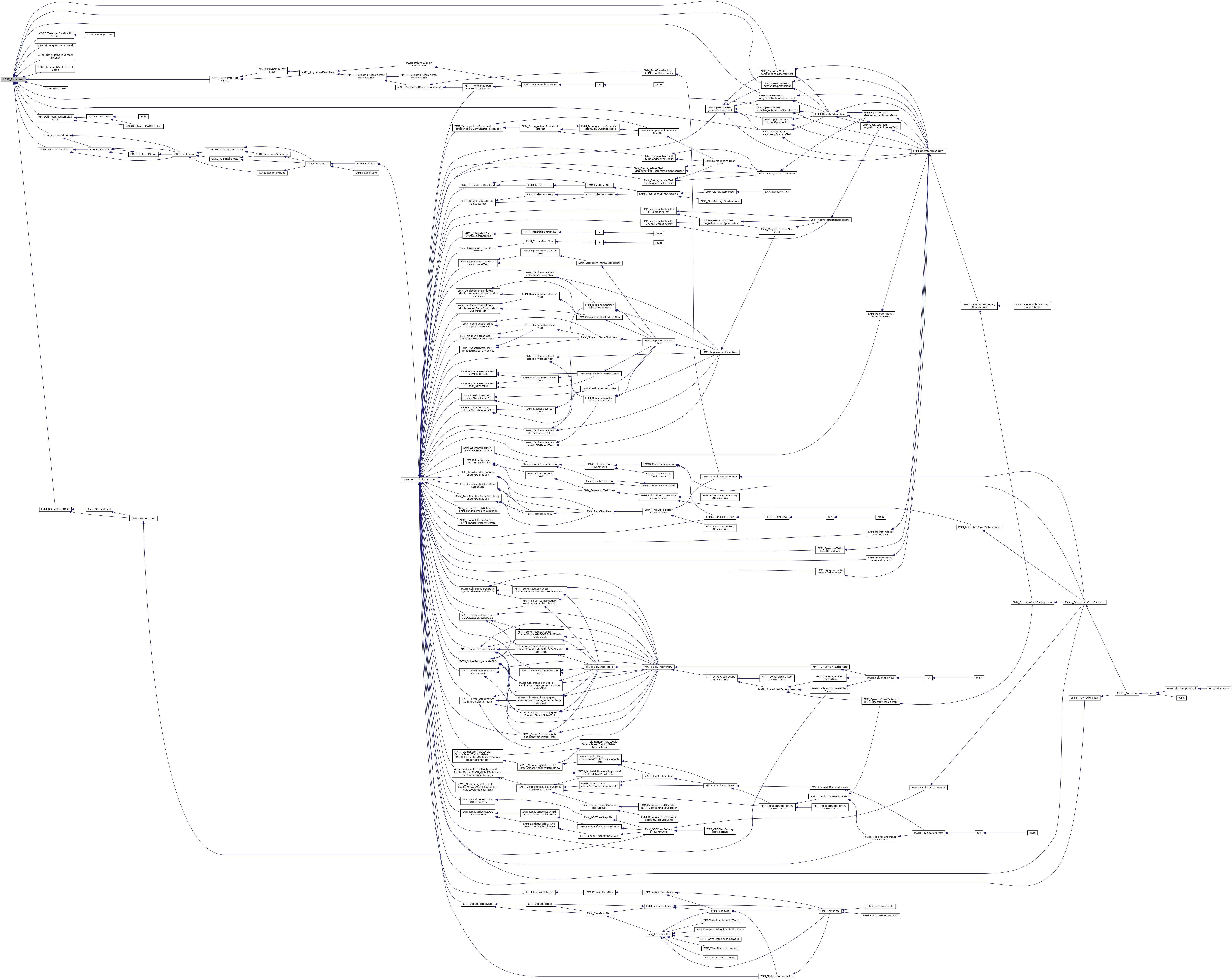
◆ New() [2/6]
|
inlinestatic |
creates a time object
- Parameters
-
time the time to copy
- Returns
- a shared pointer to this
References New().

◆ New() [3/6]
|
inlinestatic |
◆ New() [4/6]
|
inlinestatic |
creates a time object
- Parameters
-
time the time to copy
References New().

◆ New() [5/6]
|
inlinestatic |
creates a time object
- Parameters
-
time the time to copy
References New().

◆ New() [6/6]
|
inlinestatic |
creates a time object year > 1900 month [1,12] day [1,31]
- Parameters
-
year : the year in [1900,...] month : the month in [1,12] day : the day in [1,31]
- Returns
- a share pointer to the time
References CORE_Time().

◆ out()
|
inlinestaticinherited |
get the output
- Returns
- the output stream
Referenced by EMM_Matter::adimensionize(), EMM_DisplacementFVMOperator::backup(), EMM_DisplacementOperator::backup(), MATH_ElementaryMultiLevelsToeplitzMatrix::buildSpectralVectorProjector(), EMM_Test::caseTest(), EMM_Test::caseTests(), EMM_MatterField::computeAnisotropyDirectionsField(), EMM_OptimalTimeStep::computeOptimalTimeStep(), MATH_MultiLevelsToeplitzMatrix::copy(), CORE_Exception::CORE_Exception(), EMM_MatterField::createAnisotropyOperator(), CORE_Run::createIO(), EMM_ElementaryTest::defaultBackupTest(), EMM_ElementaryTest::defaultTest(), MATH_MultiLevelsFFTToeplitzMatrix::diagonalize(), EMM_DisplacementFVMOperator::discretize(), EMM_MagnetostrictionOperator::discretize(), EMM_DisplacementFEMOperator::discretize(), EMM_4SymmetricTensors::doubleDot(), EMM_4Tensors::doubleDotCrossDoubleDotScalar(), EMM_TensorsTest::doubleDotCrossDoubleDotScalarTests(), EMM_4Tensors::doubleDotCrossProduct(), EMM_TensorsTest::doubleDotCrossProductTests(), EMM_4Tensors::doubleDotCrossSquaredScalar(), EMM_TensorsTest::doubleDotCrossSquaredScalarTests(), EMM_4Tensors::doubleDotProduct(), EMM_TensorsTest::doubleDotProductTests(), EMM_DisplacementWaveTest::elasticWaveTest(), EMM_Test::elementaryTests(), FFTW_Test::fftwTutorial(), MATH_IntegrationTest::gaussLegendreTest(), EMM_MagnetostrictionTest::HComputingTest(), EMM_DemagnetizedPeriodicalTest::HTest(), EMMH_HysteresisTest::hysteresisDefaultCycleTest(), EMM_TensorsTest::initializationTests(), EMM_MultiScaleGrid::initialize(), EMM_MultiScaleSDGrid::initialize(), EMM_MatterField::loadFromANIFile(), EMM_AnisotropyDirectionsField::loadFromFile(), EMM_Matter::loadFromFile(), EMM_Grid3D::loadFromGEOFile(), EMM_MatterField::loadFromLOCFile(), EMM_Array< tCellFlag >::loadFromStream(), EMM_Matter::loadFromStream(), EMM_Matter::loadMattersFromFile(), EMM_Run::loadSystemFromOptions(), EMM_ElementaryTest::magnetostrictionBackupTest(), CORE_Run::make(), EMMH_Run::makeHysteresis(), EMM_Run::makeRun(), CORE_Run::makeType(), EMM_ElementaryTest::optionsTest(), MATH_PolynomialTest::P4Tests(), EMM_Test::primaryTests(), EMM_LandauLifschitzSystem::printLog(), CORE_Run::printOptions(), EMM_2PackedSymmetricTensors::product(), EMMG_SLDemagnetizedOperator::projectionOnSpectralSpace(), CORE_Run::readOptionsFromCommandLine(), CORE_Test::readVectorTest(), EMM_DemagnetizedPeriodicalTest::relaxationTest(), EMM_DisplacementFVMOperator::restore(), EMM_DisplacementOperator::restore(), EMM_Input::restoreBackup(), EMMH_Hysteresis::run(), EMM_Output::save(), EMM_AnisotropyDirectionsField::saveToFile(), EMM_MatterField::saveToFile(), EMM_Grid3D::saveToGEOFile(), CORE_IOTest::searchTest(), EMMH_Hysteresis::setInitialMagnetizationField(), MATH_MultiLevelsToeplitzMatrix::setLevels(), EMM_4SymmetricTensors::squaredDoubleDot(), EMM_4Tensors::squaredDoubleDotCrossScalar(), EMM_TensorsTest::squaredDoubleDotCrossScalarTests(), EMM_4Tensors::squaredDoubleDotScalar(), EMM_TensorsTest::squaredDoubleDotScalarTests(), EMM_TensorsTest::squaredDoubleDotTests(), EMM_MatterTest::testAdimensionize(), EMM_MatterTest::testANIFile(), CORE_Test::testComplex(), CORE_Test::testDateWeek(), FFTW_Test::testDFT(), EMM_MatterTest::testIO(), EMM_ODETest::testODE(), CORE_Test::testOut(), CORE_Test::testReal(), EMM_FieldTest::testRealArray(), EMM_Grid3DTest::testSegment(), EMM_Grid3DTest::testThinSheet(), CORE_Test::testTime(), CORE_Test::testType(), MATH_FullMatrix::toString(), EMM_DemagnetizedPeriodicalTest::xyPeriodicalCubeSDGTest(), and EMM_DemagnetizedPeriodicalTest::xyPeriodicalSheetSDGTest().

◆ pointer2String()
|
staticinherited |
return the string representation of a pointer
- Parameters
-
obj : oject to get the string pointer
- Returns
- the string pointer of the object
References tString.
Referenced by CORE_Object::CORE_Object(), CORE_Object::getIdentityString(), CORE_Object::getPointerAddress(), CORE_Object::is32Architecture(), and CORE_Object::~CORE_Object().

◆ printObjectsInMemory() [1/2]
|
staticinherited |
print object in memory
- Parameters
-
f : output to print the objects in memory
References CORE_Object::getIdentityString(), CORE_Object::getSharedPointer(), CORE_Object::mIsMemoryTesting, CORE_Object::mObjects, and tInteger.

◆ printObjectsInMemory() [2/2]
|
inlinestaticinherited |
print object in memory in the standart output
Referenced by CORE_Object::is32Architecture(), and main().
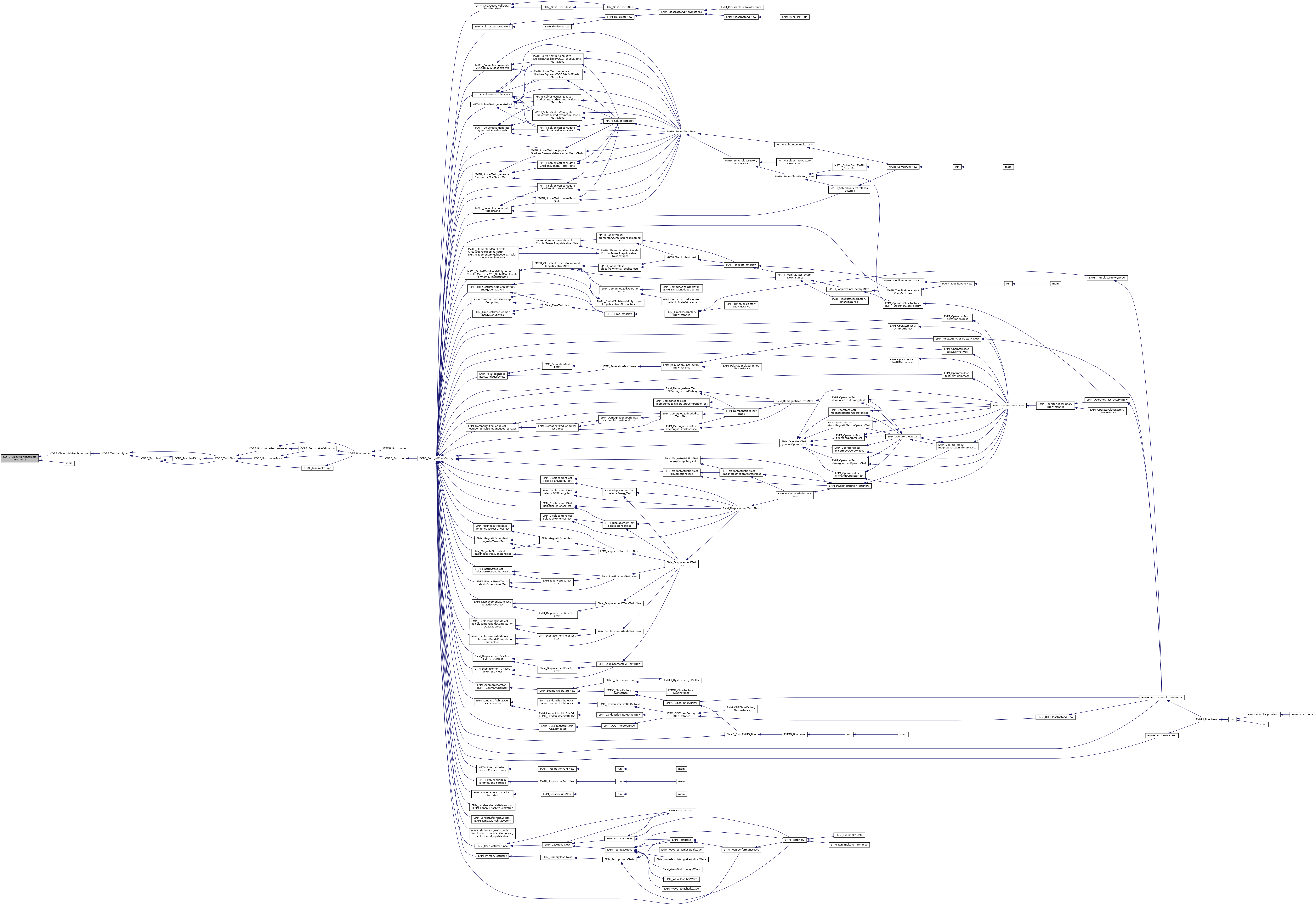
◆ resetOut()
|
inlinestaticinherited |
◆ resetThread()
|
inlinestaticinherited |
◆ setDate() [1/9]
| void CORE_Time::setDate | ( | const tTime & | seconds | ) |
set the date from 1900 in seconds
- Parameters
-
seconds the date expressed in seconds
References getWeek(), mDay, mHours, mMilliSeconds, mMinutes, mMonth, mSeconds, mSecondsSince1900, mWeek, mWeekDay, and mYear.
Referenced by getSecondsSince1900(), setDate(), setToFirstWeekDay(), setToLastDay(), setToNextDay(), setToNextMonth(), setToNextWeek(), setToPreviousDay(), setToPreviousDays(), setToPreviousMonth(), setToPreviousWeek(), and setToWeekDay().

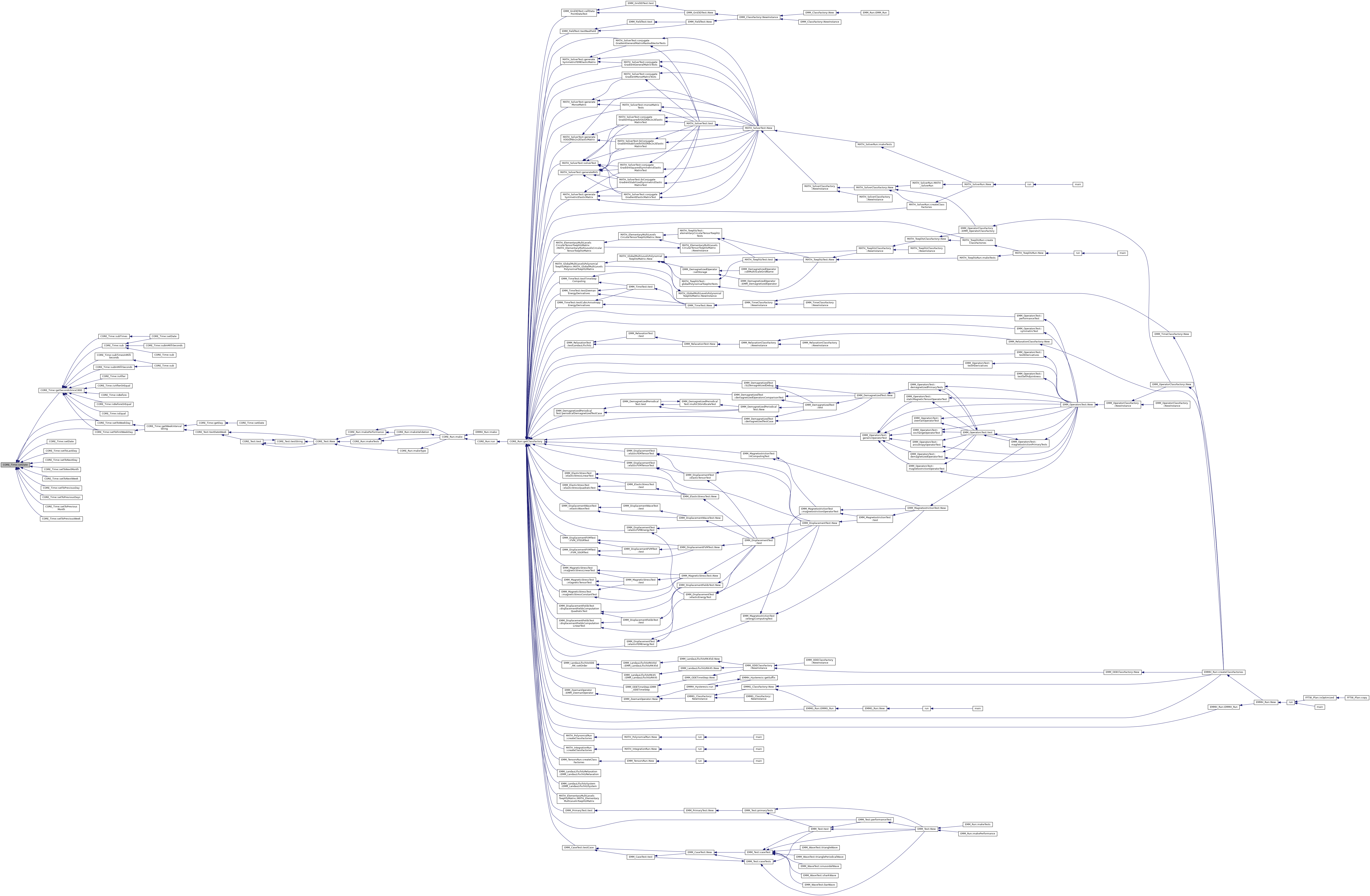
◆ setDate() [2/9]
| void CORE_Time::setDate | ( | const tUInteger & | year, |
| const tUInteger & | month, | ||
| const tUInteger & | day, | ||
| const tUInteger & | hour, | ||
| const tUInteger & | minutes, | ||
| const tUInteger & | seconds, | ||
| const tUInteger & | ms | ||
| ) |
set the date
- Parameters
-
year the year of the date to set >=0 month the month of the date to set in [1,12] day the day of the date to set in [1,31] hour the hour of the date to set in [0,59] minutes the minutes of the date to set in [0,59] seconds the seconds of the date to set in [0,59] ms : the milli-seconds of the date to set in [0,1000[
References ASSERT_IN, getWeek(), MAX_YEAR, mDay, mHours, mMilliSeconds, mMinutes, mMonth, mSeconds, mSecondsSince1900, mWeek, mWeekDay, mYear, and tTime.

◆ setDate() [3/9]
|
inline |
set the date
- Parameters
-
year the year of the date to set >=0 month the month of the date to set in [1,12] day the day of the date to set in [1,31] hour the hour of the date to set in [0,59] minutes the minutes of the date to set in [0,59] seconds the seconds of the date to set in [0,59]
References setDate().

◆ setDate() [4/9]
◆ setDate() [5/9]
| void CORE_Time::setDate | ( | const tString & | date | ) |
set the date from a string year-month-day
- Parameters
-
date the date in s string format
References setDate().

◆ setDate() [6/9]
|
inline |
set the date from a string year-month-day
- Parameters
-
time the time to copy
References getDay(), getHours(), getMinutes(), getMonth(), getSeconds(), getYear(), and setDate().

◆ setDate() [7/9]
|
inline |
set the date from a string year-month-day
- Parameters
-
time the time to copy
References setDate().

◆ setDate() [8/9]
|
inline |
set the date from a string year-month-day
- Parameters
-
time the time to copy
References getDay(), getHours(), getMinutes(), getMonth(), getSeconds(), getYear(), null, setDate(), setHour(), setTime(), sub(), subTimes(), tLLInt, tString, and tUInteger.

◆ setDate() [9/9]
set the date from a string date and with format
- Parameters
-
date : the date in string expressed with the format format the format of the form: - DD/MM/YY
- DD/MM/YYY
- YY/MM/DD
- YYYY/MM/D
- DD/MM/YY-HHhMM
- YYMMDD-HHMMSSsss
- YYYYMMDD-HHMMSSsss
References MAX_YEAR, CORE_Integer::parseInt(), setDate(), tUIndex, and tUInteger.

◆ setHour()
| void CORE_Time::setHour | ( | const tString & | h | ) |
set hour of the format HHhMM
- Parameters
-
h hour & minite HHhMM
References CORE_Integer::parseInt(), setTime(), and tUInteger.
Referenced by setDate().


◆ setIsMemoryChecked()
|
inlinestaticinherited |
set if the memory checking is used
- Parameters
-
v : true to check memory
Referenced by main().

◆ setOut()
|
inlinestaticinherited |
◆ setThis()
|
inlineprotectedinherited |
set this weak shared pointer called toDoAfterThis setting method
- Parameters
-
p : shared pointer of the class This
References CORE_Object::toDoAfterThisSetting().

◆ setThread()
|
inlinestaticinherited |
set the thread
- Parameters
-
thread the shared pointer to the thread
References null.
Referenced by EMM_Run::EMM_Run(), EMM_TensorsRun::EMM_TensorsRun(), and MATH_SolverRun::MATH_SolverRun().

◆ setTime() [1/2]
| void CORE_Time::setTime | ( | const tUInteger & | hour, |
| const tUInteger & | minutes, | ||
| const tUInteger & | seconds | ||
| ) |
set the time
- Parameters
-
hour the hour of the date to set in [0,59] minutes the minutes of the date to set in [0,59] seconds the seconds of the date to set in [0,59]
References mDay, mHours, mMilliSeconds, mMinutes, mMonth, mSeconds, mSecondsSince1900, and mYear.
Referenced by setDate(), setHour(), and setTime().

◆ setTime() [2/2]
| void CORE_Time::setTime | ( | const tString & | date | ) |
set the time from a string hour:min:sec
References CORE_String::New(), CORE_Integer::parseInt(), setTime(), and tUInteger.

◆ setTimeType()
|
inline |
set the chrono time type
- Parameters
-
[in] f : type of the time in {CHRONO_TIME, CLOCK_TIME }
◆ setToFirstWeekDay()
set the date to the first week day
- Parameters
-
year the year week the week in [1..53] the first day is a monday
References ASSERT_IN, getSecondsSince1900(), MAX_YEAR, modZ(), mWeekDay, setDate(), and tTime.
Referenced by getWeekIntervalString().

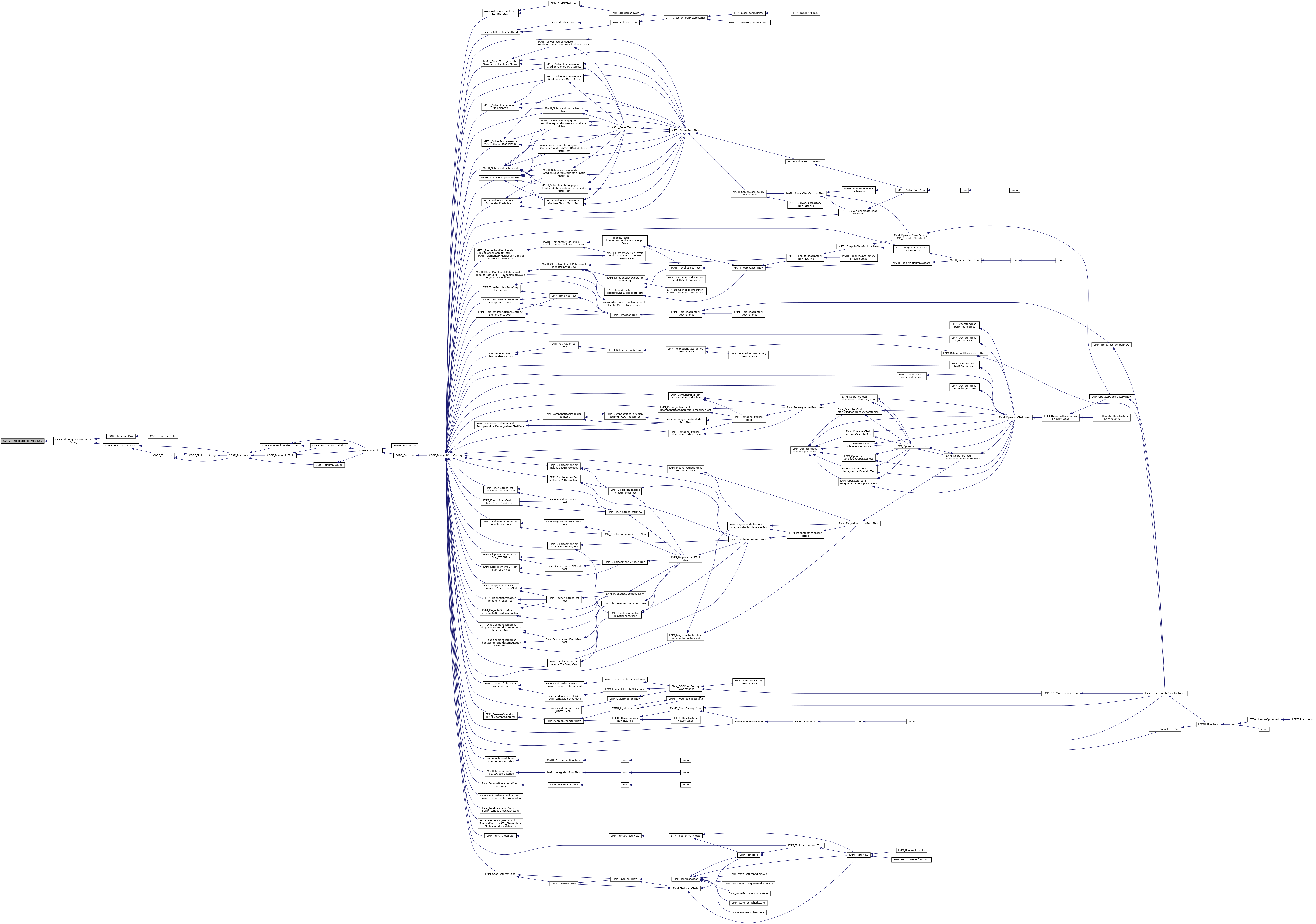
◆ setToLastDay()
◆ setToNextDay()
|
inline |
◆ setToNextMonth()
|
inline |
◆ setToNextWeek()
|
inline |
◆ setToPreviousDay()
|
inline |
◆ setToPreviousDays()
|
inline |
sun nDays from current day
- Parameters
-
nDays the number of days to add
References setDate().

◆ setToPreviousMonth()
|
inline |
◆ setToPreviousWeek()
|
inline |
◆ setToWeekDay()
| void CORE_Time::setToWeekDay | ( | const tUInteger & | year, |
| const tUInteger & | week, | ||
| const tUInteger & | day | ||
| ) |
set the date to the week day
- Parameters
-
year the year week week in [1..53] day the day in [0,6] 0:MONDAY....6:SUNDAY the first day is a monday
References ASSERT_IN, getSecondsSince1900(), MAX_YEAR, modZ(), mWeekDay, setDate(), and tTime.
Referenced by getWeekIntervalString().

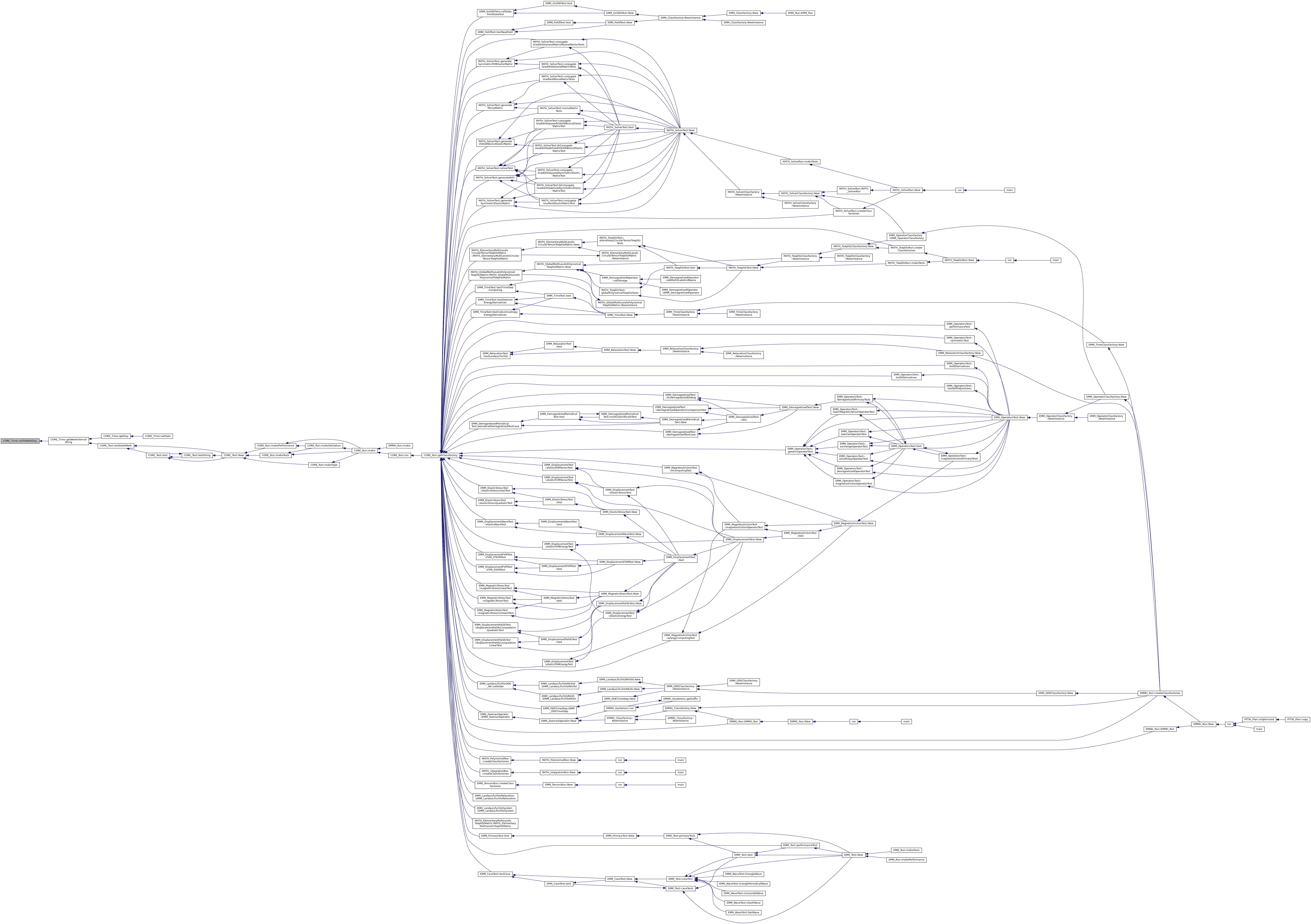
◆ SP_OBJECT()
|
private |
◆ startChronoTime() [1/2]
|
inline |
◆ startChronoTime() [2/2]
|
inline |
References CLOCK_TIME, HR_CLOCK_TIME, and SYSTEM_CLOCK_TIME.
◆ stopChronoTime() [1/2]
|
inline |
end the chrono and return the time in seconds since start time
- Returns
- the duration of the chrono in seconds
Referenced by continueChronoTime().

◆ stopChronoTime() [2/2]
References CLOCK_TIME, getClockDuration(), HR_CLOCK_TIME, mStartHRClock, mStartSystemClock, SYSTEM_CLOCK_TIME, and tULLInt.

◆ sub() [1/3]
get the difference with time this -time in secunds
- Parameters
-
time : the time to substract
- Returns
- the difference in secunds
References getSecondsSince1900().
Referenced by setDate(), sub(), and subInMilliSeconds().

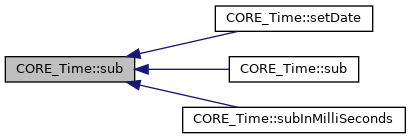
◆ sub() [2/3]
|
inline |
get the difference with this and time: this -time in secunds
- Parameters
-
time the time to substract
- Returns
- the difference in secunds
References sub().

◆ sub() [3/3]
get the difference with this and time : this -time in secunds
- Parameters
-
time the time to substract
- Returns
- the difference in secunds
References getSecondsSince1900(), null, sub(), subInMilliSeconds(), subTimesInMilliSeconds(), and tLLInt.

◆ subInMilliSeconds() [1/3]
get the difference between this and time in milli-secunds
- Parameters
-
time the time to substract
- Returns
- the difference in milli-secunds
References getMilliSeconds(), and getSecondsSince1900().
Referenced by sub().


◆ subInMilliSeconds() [2/3]
|
inline |
get the difference between this and time in milli-secunds
- Parameters
-
time the time to substract
- Returns
- the difference in milli-secunds
References sub().

◆ subInMilliSeconds() [3/3]
get the difference with this and time: this -time in milli-secunds
- Parameters
-
time : the time to substract
- Returns
- the difference in milli-secunds
References getSecondsSince1900(), mMilliSeconds, null, and sub().

◆ subTimes() [1/2]
get the difference between two dates in secund time1-time2
- Parameters
-
time1 : the first time time2 : the time to substract
- Returns
- the difference in secunds
References getSecondsSince1900().
Referenced by setDate().


◆ subTimes() [2/2]
|
static |
get the difference between two dates in secund time1-time2
- Parameters
-
time1 : the first time time2 : the time to substract
- Returns
- the difference in secunds
References null.
◆ subTimesInMilliSeconds() [1/2]
|
static |
get the difference betwen two dates in milli-secund : time1-time2
- Parameters
-
time1 : the first time time2 : the secund time
References getMilliSeconds(), and getSecondsSince1900().
Referenced by sub().


◆ subTimesInMilliSeconds() [2/2]
|
static |
get the difference betwen two dates in milli-secund : time1-time2
- Parameters
-
time1 the first time time2 the secund time
References null.
◆ toDoAfterThisSetting()
|
inlineprotectedvirtualinherited |
method called after setThis() method this method can oly be called once.
Reimplemented in EMM_DisplacementOperator, EMM_DisplacementFVMOperator, EMM_GaussLegendreRelaxation, EMM_GradGaussLegendreRelaxation, and EMM_Object.
Referenced by CORE_Object::setThis().

◆ toString() [1/2]
|
virtual |
return the time into a string
- Returns
- the string representation of the time
Reimplemented from CORE_Object.
References tString.
Referenced by getDuration(), CORE_Out::getTime(), EMM_Output::saveFieldToAIMFile(), CORE_Run::saveOptionsToFile(), EMM_Array< tCellFlag >::saveToFile(), EMM_AnisotropyDirectionsField::saveToFile(), EMM_MatterField::saveToFile(), EMM_RealField::saveToFile(), EMM_Grid3D::saveToGEOFile(), and toString().
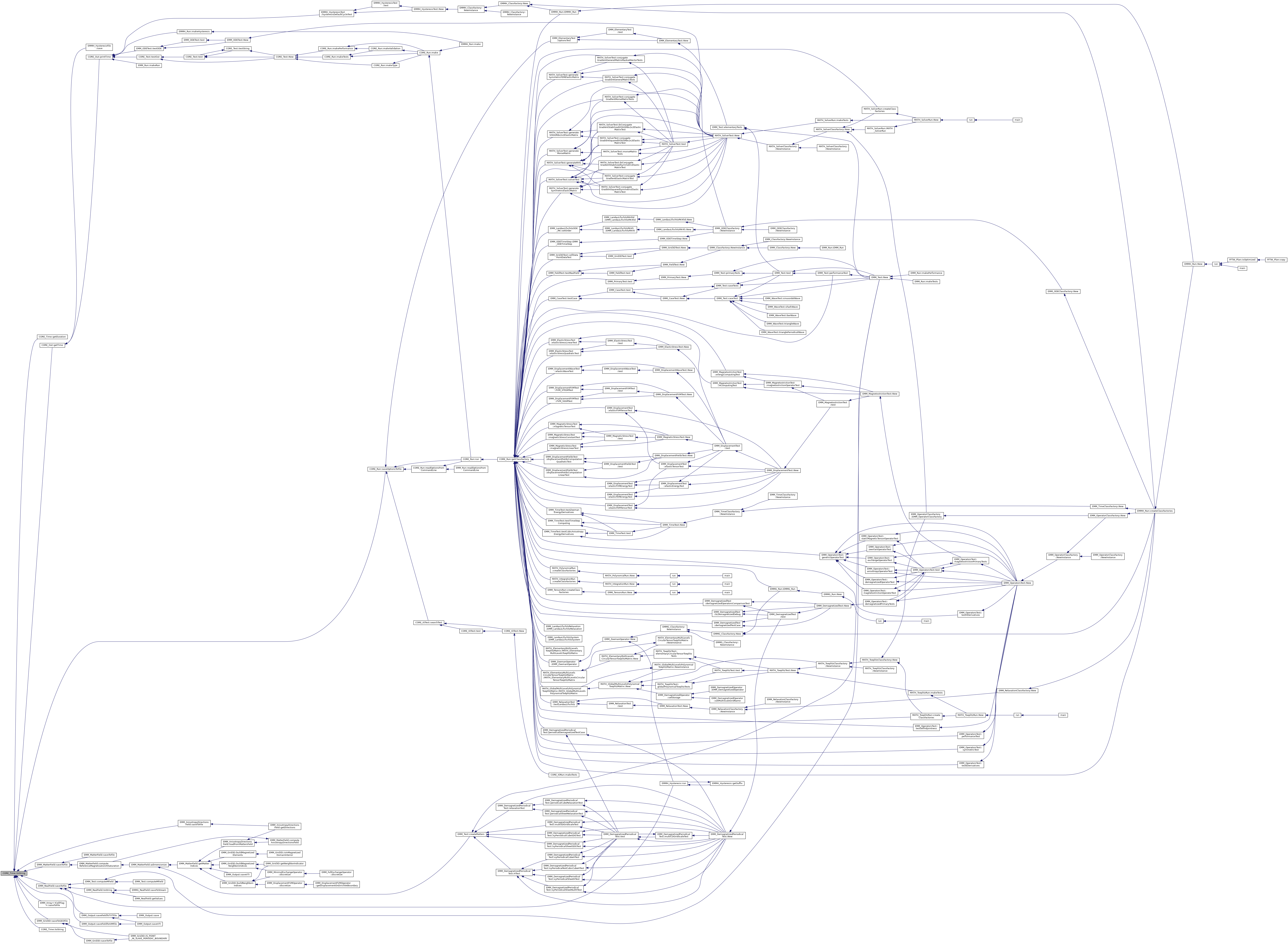
◆ toString() [2/2]
return the time into a string with format
- Parameters
-
format the format: - format=""
- format="DD/MM/YY"
- format="DD/MM/YYYY"
- format="YYYY/MM/DD"
- format="DD/MM/YY-HHhMM"
- format="YYMMDD-HHMMSS"
- format="YYMMDD-HHMMSSsss"
- format="YYYYMMDD-HHMMSSsss"
- Returns
- the string representation of tome
References mDay, mHours, mMilliSeconds, mMinutes, mMonth, mSeconds, mYear, CORE_Integer::toString(), toString(), tString, and tUIndex.

Member Data Documentation
◆ CLOCK_TIME
|
static |
Referenced by startChronoTime(), and stopChronoTime().
◆ DAY
|
staticprivate |
◆ DAYS
|
static |
days names in english
◆ HOUR
|
staticprivate |
◆ HR_CLOCK_TIME
|
static |
Referenced by startChronoTime(), and stopChronoTime().
◆ JOURS
|
static |
days names in french
◆ MAX_YEAR
|
static |
MAX number of years.
Referenced by getWeekIntervalString(), setDate(), setToFirstWeekDay(), setToWeekDay(), and CORE_Test::testTime().
◆ mCPUTime
|
private |
Referenced by CORE_Time(), and getCPUTime().
◆ mDay
|
private |
Referenced by CORE_Time(), getDay(), setDate(), setTime(), and toString().
◆ mHours
|
private |
Referenced by CORE_Time(), getHours(), setDate(), setTime(), and toString().
◆ MILLI_SECUNDS
|
staticprivate |
◆ MINUTE
|
staticprivate |
◆ mIsClockChronoStarting
|
private |
Referenced by CORE_Time().
◆ mIsHRClockChronoStarting
|
private |
Referenced by CORE_Time().
◆ mIsSystemClockChronoStarting
|
private |
Referenced by CORE_Time().
◆ mMilliSeconds
|
private |
Referenced by CORE_Time(), getMilliSeconds(), setDate(), setTime(), subInMilliSeconds(), and toString().
◆ mMinutes
|
private |
Referenced by CORE_Time(), getMinutes(), setDate(), setTime(), and toString().
◆ mMonth
|
private |
Referenced by CORE_Time(), setDate(), setTime(), and toString().
◆ MOIS
|
static |
month names in french
◆ MONTH
|
staticprivate |
◆ MONTHS
|
static |
month names in english
◆ mSeconds
|
private |
Referenced by CORE_Time(), getSeconds(), setDate(), setTime(), and toString().
◆ mSecondsSince1900
|
private |
Referenced by CORE_Time(), getSecondsSince1900(), setDate(), and setTime().
◆ mStartClock
|
private |
Referenced by CORE_Time().
◆ mStartHRClock
|
private |
Referenced by stopChronoTime().
◆ mStartSystemClock
|
private |
Referenced by stopChronoTime().
◆ mWeek
|
private |
Referenced by CORE_Time(), getWeekYear(), and setDate().
◆ mWeekDay
|
private |
Referenced by CORE_Time(), getWeekDay(), setDate(), setToFirstWeekDay(), and setToWeekDay().
◆ mYear
|
private |
Referenced by CORE_Time(), getWeekYear(), getYear(), setDate(), setTime(), setToNextMonth(), setToPreviousMonth(), and toString().
◆ SECUND
|
staticprivate |
◆ SYSTEM_CLOCK_TIME
|
static |
Referenced by startChronoTime(), and stopChronoTime().
◆ TIME_TYPE
|
staticprivate |
◆ WEEK
|
staticprivate |
◆ WEEK_DAY
|
staticprivate |
◆ YEAR
|
staticprivate |
The documentation for this class was generated from the following files:
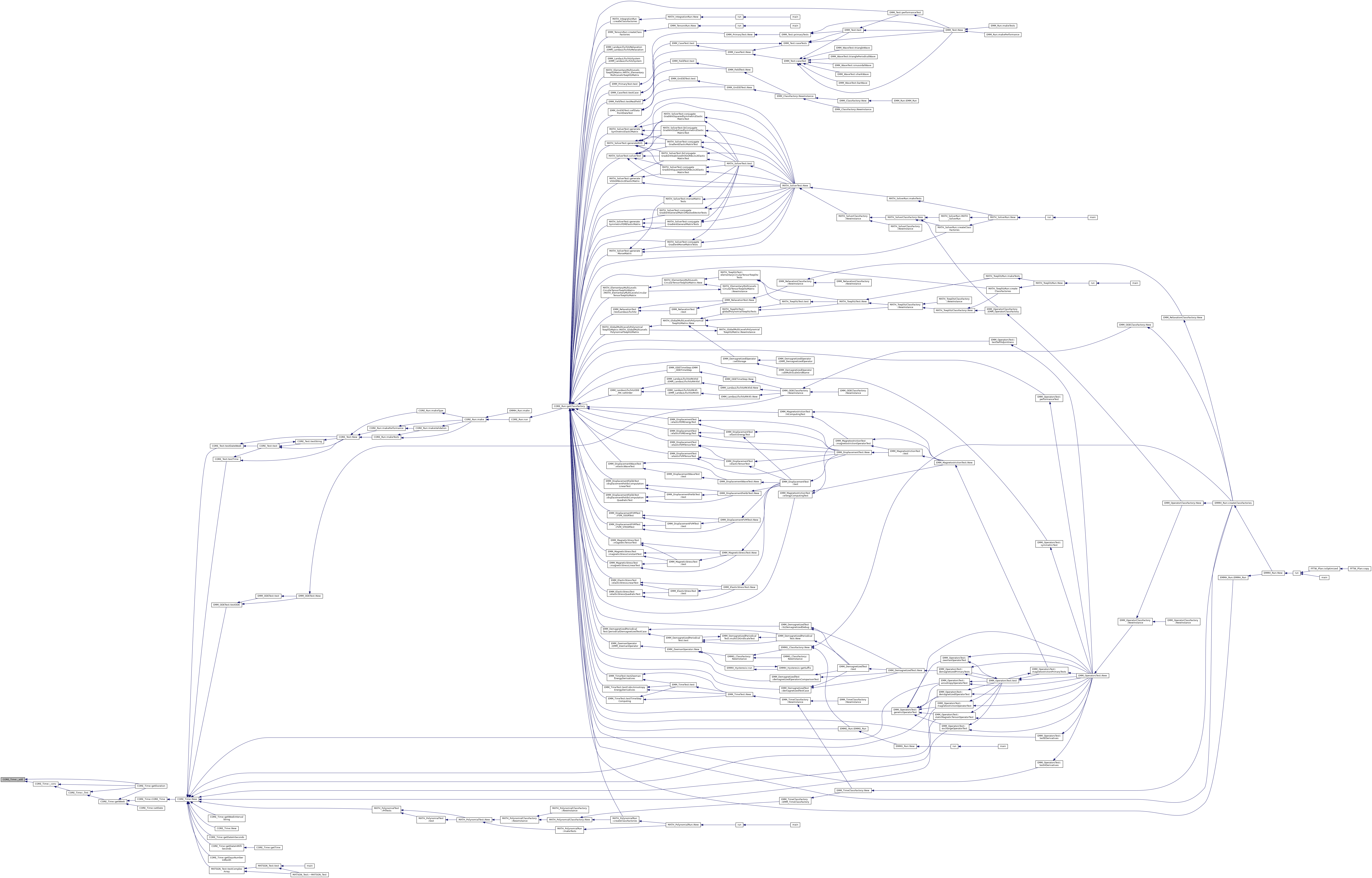









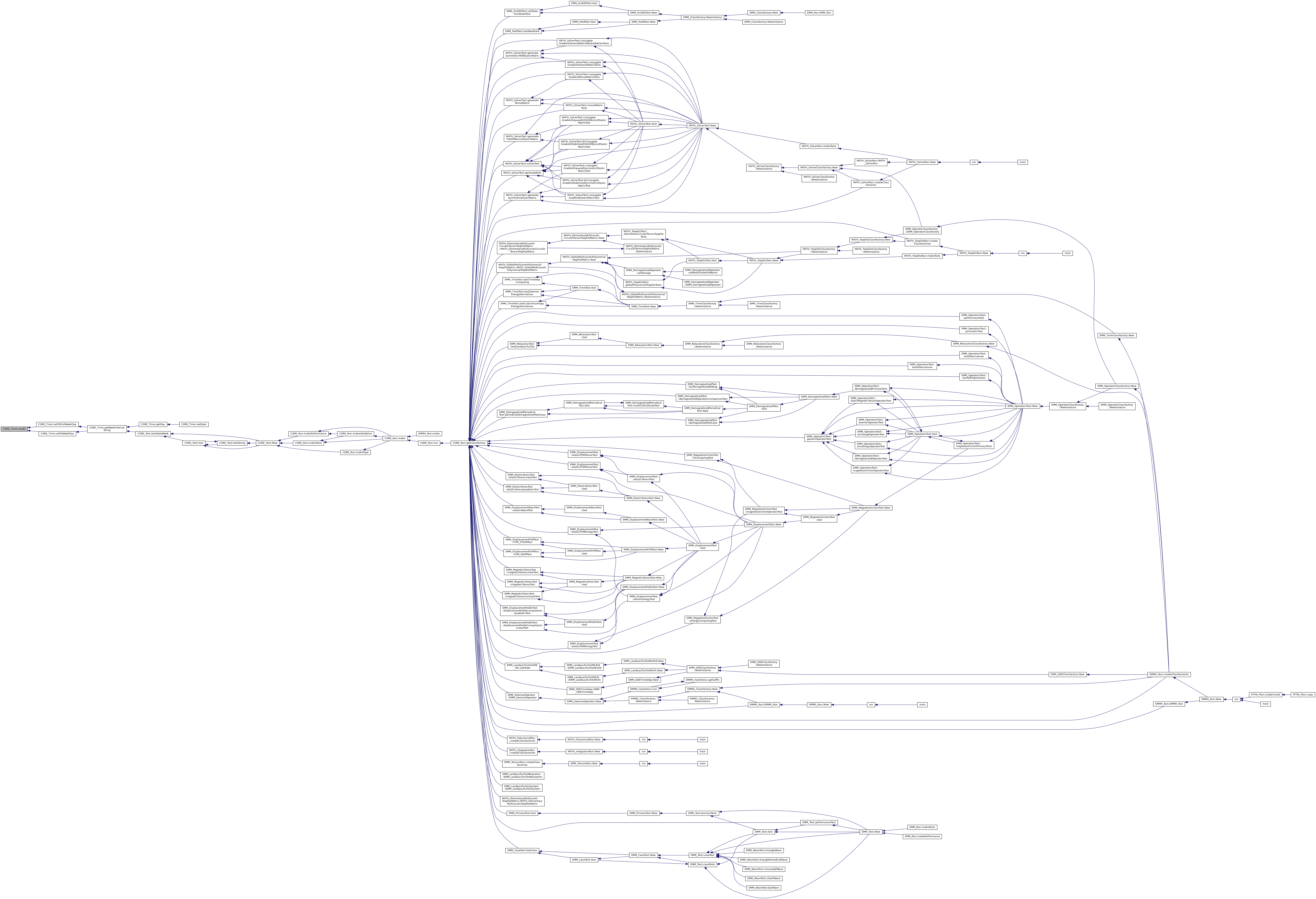












 1.8.13
1.8.13